The Buoys’ Club: In Conversation with Zoe Caterall by Joseph Hathaway-Wilson

Falling Prey to the Pitfalls of Pseudoscience by Rosa Gharibi

The Buoys’ Club: In Conversation with Zoe Caterall by Joseph Hathaway-Wilson

Falling Prey to the Pitfalls of Pseudoscience by Rosa Gharibi

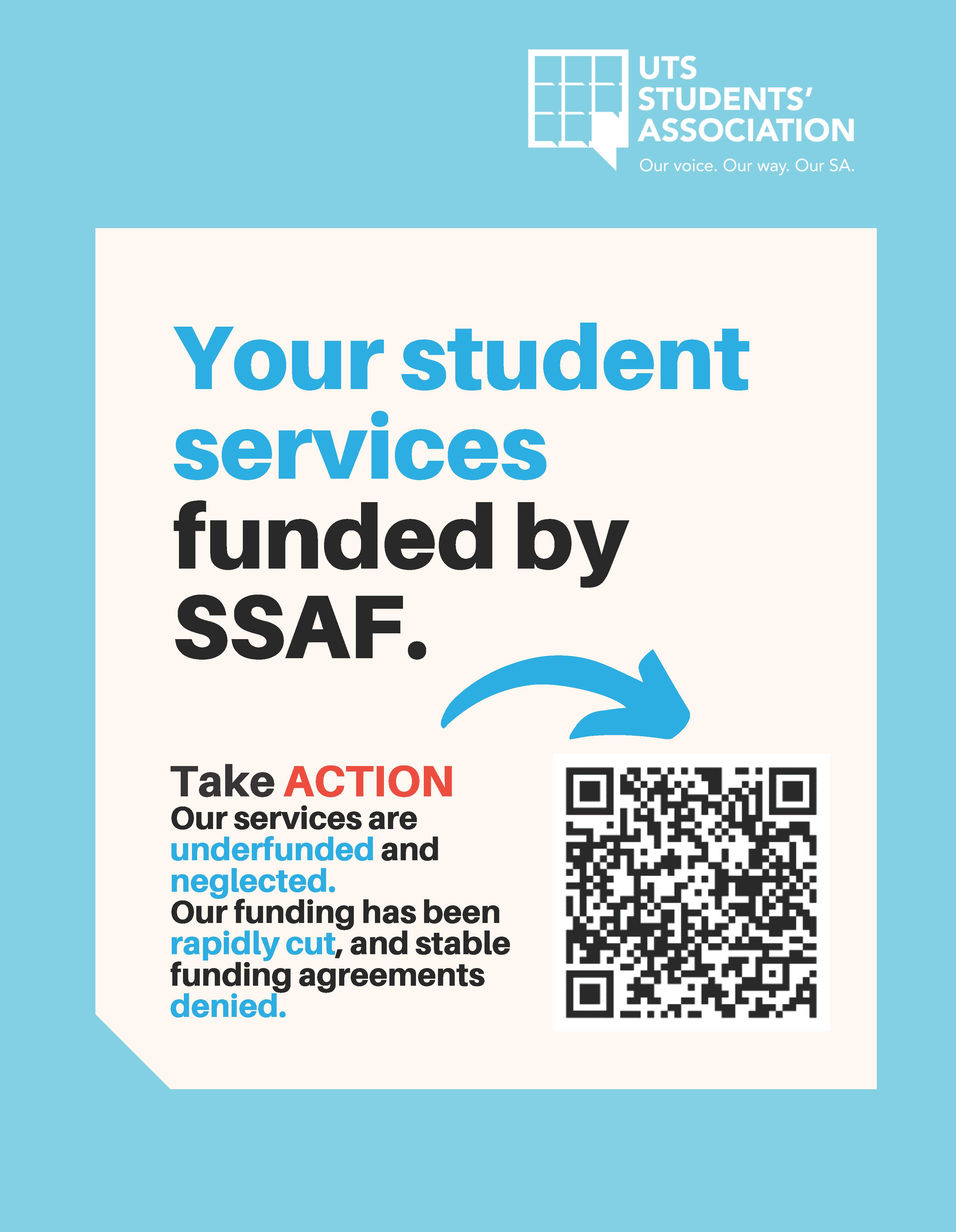

 Art
Art
The University of Technology Sydney would like to acknowledge the Gadigal people of the Eora Nation as the Traditional Custodians and Knowledge Keepers of the land on which UTS now stands, and pays respect to Elders past, present, and emerging. - Maree Graham Deputy Director, Students, and Community Engagement Jumbunna Institute for Indigenous Education & Re search
Vertigo would like to extend a personal acknowledge ment to the Traditional Custodians and Knowledge Keepers of the land on which we lived and worked as editors and designers during the creation of this magazine. We pay respect to Elders past, present, and emerging, and extend this respect to any First Nations’ people reading this volume.
As students, we must acknowledge the Indigenous con tributions to academia that have enriched our under standing of Australian history and culture. We exist on stolen land, and recognise that sovereignty has never been ceded.
Jess Prowse would like to acknowledge the Gundungur ra and Dharug people of the Ngurra Nation. ✅ Alexander Kingsford would like to acknowledge the Cammeraygal people of the Eora Nation.
Andy Lee, Clara Atkin, and Joey Chalita would like to acknowledge the Dharug people of the Eora Nation.
Ashley Sullivan would like to acknowledge the Bur ramattagal and Darug people of the Eora Nation. ✅ Sophia Ramos would like to acknowledge the Bool bainora clan of the Dharug peoples.
Siena Zadro and Joseph Hathaway-Wilson would like to acknowledge the Gadigal people of the Eora Na tion. ✅
If it is within your means, please consider donating to an Indigenous organisation such as:
• BLAK BUSINESS — “Bringing together information, knowledge and resources to facilitate broader learning and discussion about Aboriginal and Torres Strait Islander topics.” — blakbusiness. com.au
• INDIGENOUSX — Indigenous media organisation — Indigenousx.com.au
• SEED — Fighting for climate justice — Seedmob. org.au
• BLACK RAINBOW — Aboriginal and Torres Strait Islander Lesbian, Gay, Bisexual, Transgender, Intersex, Queer, Sistergirl and Brotherboy (LG BQTI+SB) Organisation — blackrainbow.org.au
• ANTAR — An advocacy organisation dedicated to justice, rights and respect for Australia’s First Peoples — antar.org.au
More organisations can be found here: thelatch.com. au/indigenous-organisations-to-donate-to
Have you ever felt like an individual swimming in a sea of same-ness? Maybe you’ve felt alienated by how you dressed or the way you spoke?
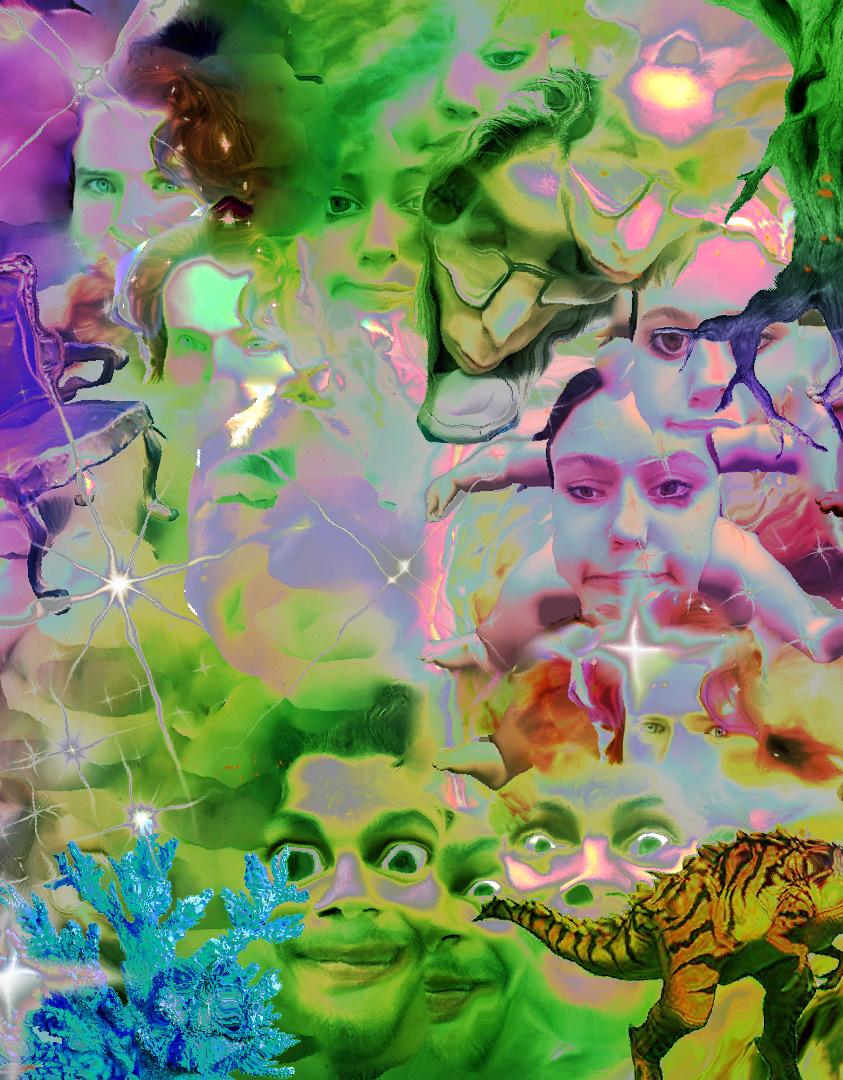
This issue in itself can be considered an ‘Anomaly’ –something against the norm. Now that the normalities of printing Vertigo for 2022 have been officially canned for the rest of the year, we turn to the anomalous digital format which you don’t hold in your hands today.
Art by Siena ZadroDespite this, we would like to extend our gratitude and thanks to all of those who have supported us this year.
To those who have been collecting physical copies, we are sorry your collections are now seemingly unfinished.
This issue explores the weirder side of reality. We’re talking “have-you-ever-seen-me-without-this stupid-hat-on?-I’m-weird weird.” The things that deviate from the typical trends, standards, and thoughts.
Yes, in ‘Anomaly’ we are talking about the digital landscape, the afterlife, and jade eggs being placed where?!? We want you take a step into another world and reconsider the conventions that confine your reality.
(Psst! This is also the election issue!)
So dive in, read the weird, and welcome a new perspective.
Lots of love, Vertigo 2022















Vertigo readers should be advised that there are content warnings before relevant pieces.
Some articles and images contain themes or references to trauma, diet culture, sexual assault, violence, war, blood, racism, homophobia, marginalisation, discrimination, and death. Please keep this in mind as you enjoy our maga zine; your health and safety are important to us.
If you or someone you know is struggling with mental health, please consider speaking to your local GP, a healthcare professional, or calling one of the numbers below. Lifeline — 13 11 14
Beyond Blue — 1300 22 4636


If you or someone you know is experiencing or has experienced sexual abuse, you can call or refer to the following confidential hotlines. General — 1800 737 732 Counselling — 1800
Crisis Centre — 1800 424
If you or someone you know is experiencing do mestic violence or child abuse, call or refer to the following 24/7 confidential free hotlines. Domestic Violence Line — 1800 656 463 NSW Child Protection Helpline — 13
11
If you are struggling with self-injurious behaviour, such as self-harming or an eating disorder, please reach out to the following: Butterfly Foundation — (02) 9412 4499
If you, or someone you know, is struggling with or has struggled with drug or alcohol abuse, please consider speaking to your local GP, a healthcare professional, or calling the numbers below.
Alcohol and Other Drugs Information Service (ADIS) — 1800 250 015 NSW Quitline — 13 7848 (13 QUIT)
LIFE
CW: Racism, marginalisation
As people of color, we are pushed away, we are frowned upon, we are marginalized.
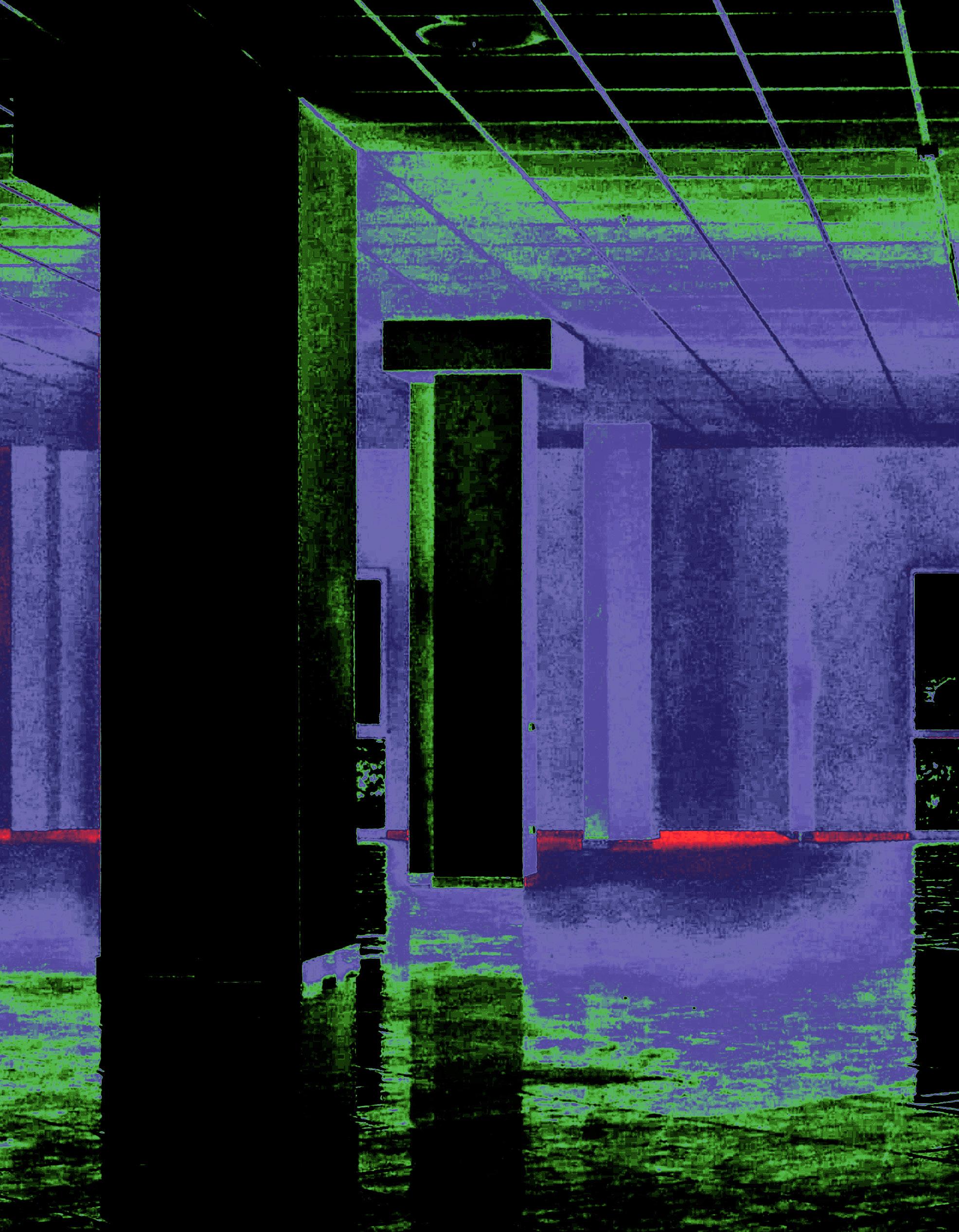
As international students, outsiders, aliens, we are silenced, we are ignored, we are non-existent.
We bury ourselves. We keep our heads below the water, drown ourselves in the mono-culture that is Australia.
We hold our tongues, put on a front.
We were plucked off of the stem. Plunged into colonized soil, for the hope and the dream of a better life. Emptied our pockets to stay, to grow, to prosper.
Yet there is no space for people like us. There is no safe space for anyone like me.
For anyone who can relate to me, understand me.
For anyone who can empathize with my pain.
For anyone whose skin is stained the same color as mine. For anyone who lives my truth.
“Racism asks for your silence. Anti-racism asks for your voice.” UTS said.1 So where? So how?
If we can’t get an autonomous space to form a thought, how will we cultivate the strength to speak our truth?
When will every action that UTS takes stop becoming reactionary? When will you lift your feet and cut off your racist roots? One that was ingrained deep into colonized ground.
Why is it so hard to spare us four walls?

Is it because the pain that we repressed can’t be boxed in? Is it because the campus that you milked us dried to build is too polished to be stained by the scum that is us?
LIFE
1 Email sent to all students from the previous VC, Atilla Brungs. 8/6/20.
Few rock bands have ascended the rungs of Sydney’s live music scene like The Buoys. After cutting their craft in the local pub circuit, the all-female rock outfit are set to reach new heights when they support the Arctic Monkeys at their Sydney show this coming January. But what did the road to Harbour-City-stardom look like? Joseph Hathaway-Wilson of Vertigo sits down with front-woman Zoe Catterall to find out.
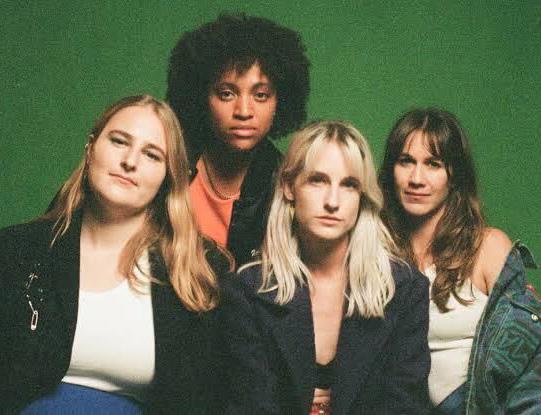
ZC: Well, I’m Zoe. I sing and play rhythm guitar in The Buoys. The band came about really randomly after I grad uated uni and wanted to start focusing more on music. I was always around the live music scene in the Shire and never seemed to get anything to work. One day my friend posted something saying, “We need more women on stage in the Shire”, and I sent him a message in response saying, “No shit, I’ve been trying to do this for years,” — I didn’t know that many women who played instruments. I’m from a science background, so my friends were doing different things with their lives.
He essentially set me up on a blind date with two girls I’d never met. I went to their house, we played some songs together, and then we were playing shows within a month. After a few weeks, the friend who organised for us to meet called us up and said, “Hey you’re playing next week; what are you called?” so we called ourselves The Boys — the whole incentive being that there weren’t enough women playing in the Shire and it felt a bit like a boy’s club. We weren’t intending for it to be spelt ‘Buoys’, but when we got to the gig and saw that the poster was spelt that way, we thought, ‘That is genius, we’ll take it’.
ZC: It was so random how it happened, and all of us have been together for two years now. We met Courtney and Hillary, the other two members, through mutual friends. We’d seen Courtney play in other bands around the in ner-west doing drums, guitar, and bass, so she was like an icon to me. I was going to three gigs a week, and she was playing at all of them.
ZC: Nah, we played together for a year and a half, then we all went travelling. When I got back to Australia, our drummer, Sophie, was still in Japan and we kind of lost touch. Soon after that I met Tess, our current drummer, and it was a similar situation — I’d never met her before, I had gone on a date with her cousin, and I wouldn’t shut up about how I needed a drummer, so he set us up on a blind coffee date. It turns out she was a scientist as well, so we bonded over that, then a couple of weeks later, we played a gig as a two-piece in Newcastle. The rest of the band just built out from there.
ZC: It’s funny because we’ve gone through waves. When I first started The Buoys, it was very garage-punk/surf-rock, but with the new members coming in we wanted to avoid that style a bit. Even now, the music we play and listen to is so different, but that just means that we can mould the stuff that I used to write and give it a new face that every one can get behind.
ZC: Growing up, I listened to The Beatles, Queen, Pink Floyd, Led Zeppelin — I really, really loved Queen, especially when I was learning to sing. It’s similar to Pink Floyd; I really enjoyed how dramatic and theatrical they were. In terms of sound, when I first started The Buoys, there were these two venues right next to each other: Space 44 and El Sol. Space 44 is now a label who manage Ruby Fields (who I also grew up with), Skegss, and Pist Idiots. As those bands were always in Cronulla at the time, they very much influenced what I was doing. That’s why we started with that very simple punk sound. I was also very limited by my skills and had only started playing electric guitar when I started The Buoys.
V: Who are The Buoys and how did you form?
V: Were you all aligned with the garage-rock vision or were there some musical differences that you needed to overcome?
V: So, who were your musical influences?
V: That is iNCReDIblY roCk 'N' Roll .
V: Are those other two members still in the band?
ZC: It was just a passion project, and even now the goal is just to write music and play it. Obviously there are dreams which would be so cool to fulfil, but at the root of it, our main goal is just to write music and play together.

ZC: I still have a science career! So does Tess. I graduated from UTS actually.
ZC: It’s very different every time. I was always one of those “if it’s not working straight away, then it’s not meant to be” kind of people, which has changed dramatically over the past two years. I’ve learnt that putting in that extra effort can make a lot of difference. Usually, I’ll sit down with my guitar, find a riff or some chords that I really like, then just start singing and see what comes out. If it doesn’t come out easily, I’ll put it away and maybe revisit it. I like to write fast. I don’t like to overthink.
V: When you started the band, did you have any big ambitions for what you wanted it to become or was it just a passion project?
V: We love to hear it . Now, you said that you’ve been writing songs since long before The Buoys formed What does your process of songwriting look like?
V: What about your science background? Do you ever feel like going back to that?
ZC: (Laughs) No — we thought about it, but Linda sounded so much better than anything else.
ZC: Not too much. The closest I ever came to an awkward encounter was very wholesome. When we released the first couple of songs from our second EP, I met up with my ex, who I had been broken up with for years, got dinner, and said, “Look, a few of these songs are about you, and it’s pretty obvious.” But when I showed him the songs, his response was beautiful. He just said, “Yeah, I did do those things, so it makes sense that you would write about them. I was a dick.”
ZC: We were very lucky that we made all that effort to gig as much as possible before the Big C came to be. I was already a heavy punter — like, minimum three gigs a week — and had made a lot of friends around the scene, so when I told people that I was starting a band, they would pass it on, and gigs would pop up. We never had a problem finding gigs. Wollongong was a bit different because they already have such a strong scene down there, and not being from Wollongong made it a bit harder to tap into. But we ended up going down to support some other bands, and nowadays, we get to go down to North Gong quite a bit which is very nice.
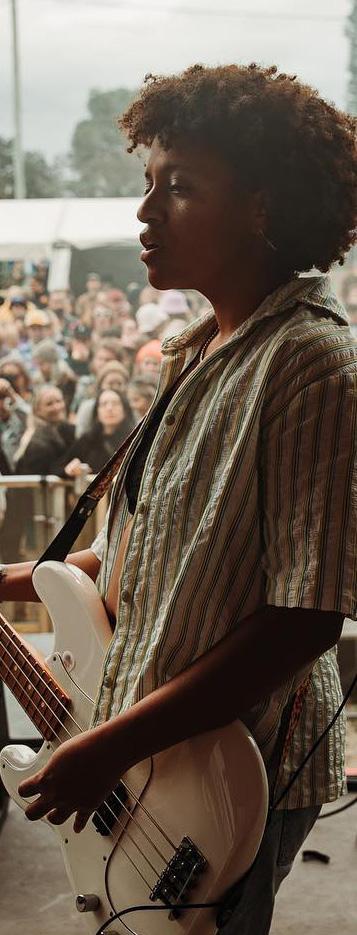
V: The track, 'Linda', is one example of a song written about a very specific person in your life, and I've heard you decided not to change the subject's name?
V: Has writing songs about people ever made for awkward encounters?
V: We hear a lot about Sydney's 'non-existent' music scene . What was your experience like trying to break through the pub rock scene in Sydney and Wollongong?
ZC: Ah, that’s so hard. I love playing at The Lansdowne. I think it's because it’s our hometown. Jeff, the main audio engineer there, is the coolest, nicest person ever. The staff are lovely, and it’s a little bit rough around the edges, but it’s always fun.
ZC: One thing I’ve been thinking about lately is, “What would it have been like if I was coming up now?” [New artists] have so much time to work on material and often can’t perform anywhere. Gigs are back, which is awesome, but the lack of international acts coming through is a big thing because that’s where smaller to medium-sized bands can reach a new audience of people who weren’t buying a ticket to their shows. Also, we’re still coming out of a slump of not having done much for two years and there’s a lot more social anxiety because people aren’t used to going to shows. That’s not true for everyone, but I have noticed that.
V: What do you look for in a support act when you're picking who to play with?
ZC: We always joke that we pick bands for very selfish reasons because we always choose bands that we really want to see. Maybe they’ll be bands that we haven’t seen before, but which we have heard are super fun. Usually, it’s someone we can dance to.
V: Who is your favourite support act to play with?
ZC: Greatest Hits! They’re like a pre-show warm-up. They’re also the kindest people ever.

V: What's your favourite venue to perform in?
V: What do you think are some of the issues within the scene for newer artists?
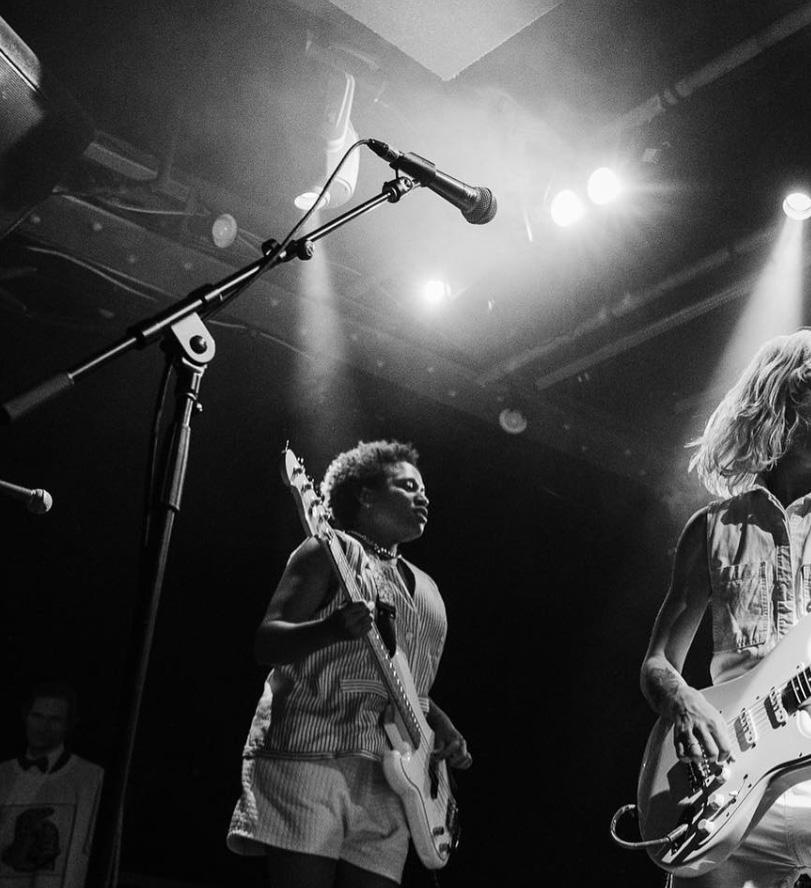

Capturing the dreaminess of memories and the camaraderie of community, Gabrielle Menezes’ photography and multimedia portfolio is a reflection of her passion for emotional connection. With work spanning from UNICEF to Untainted Magazine, Gabrielle’s storytelling explores subjects such as the plight of refugees, juvenile justice, Indigenous rights, and folk stories.
Vertigo had the chance to talk with Gabrielle about her experience of working in conflict zones, her photography journey, and her artistic aspirations.
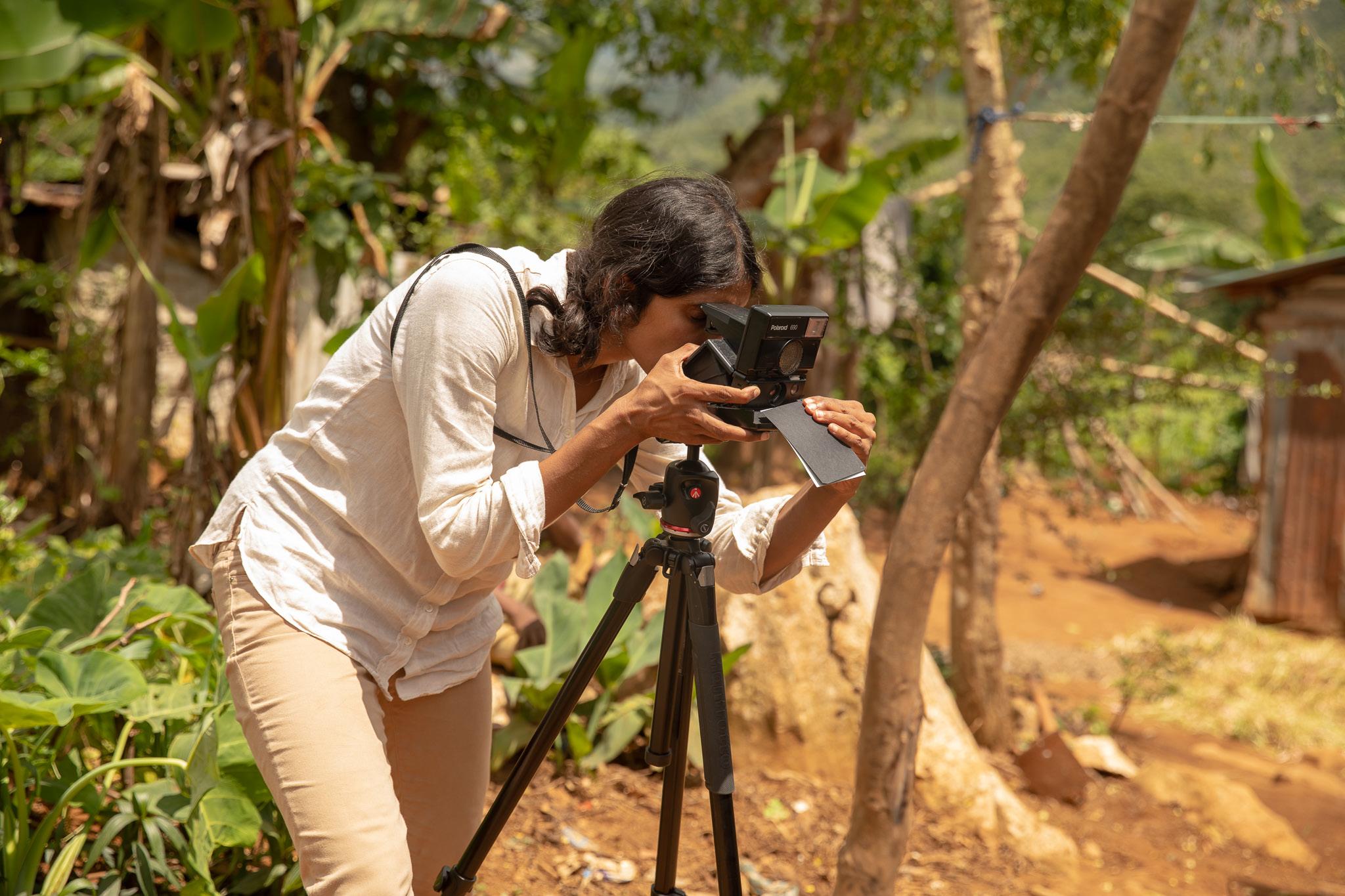
V: Could you tell our Vertigo readers a bit about yourself?
GM: I have quite a varied background from most people. I grew up in Zimbabwe, and I left at the age of 18. I went to study in London, and then I went to study television journalism in New York. I was doing an internship at Reuters and ended up working at the UN, and a few years later, I became the West Africa correspondent for Al Jazeera.
V: You’re a self-taught photographer. What influenced you to pursue photography, and how did you develop your style?
GM: For a few years, I didn’t delve into polaroids or film photography. I was on a very steep learning curve on how to shoot, and I learned a lot in Haiti, where I got a job making documentaries for UNICEF a year after the earthquake. I began exploring how to not just take constant images but create images with feeling. I think this is the difference between good images and bad images; you need to have an emotion provoked in you when you see something.
provided by MenezesI started to try out different cameras, and none of them really gelled until an old boyfriend had an SX70, and from the moment I saw it, I just wanted to use those cameras. I loved everything about it. I love the way we take photos with it, I love the look of it, and I love that polaroids are physical objects. What I really love is the element of surprise. I love how there’s sometimes something that you never intended to capture, and it’s sometimes the best thing about an image. With certain types of polaroids you can really distress them and push the light as far as it can go in comparison to taking images with a digital camera, which are much less interesting because it’s like shooting with a big computer — you know exactly what to expect.
V: You have a varied background in documentary and news journalism. How has your journalism career informed your photography?
GM: I think that because I have a background in journalism I was really interested in exploring visual storytelling in a way that wasn’t journalistic, and that wasn’t just related to the facts we see before us.
For me, there’s much more than the factual truth — there’s an emotional truth, and these aren’t necessarily the same thing. Our reality is made up of dreams and past and present and imagination, and that’s how we filter what we see and experience.
In my storytelling, I’m really interested in exploring that, so I think that’s where you see this dreaminess coming into my photos. I’m really interested in experimenting when I’m writing on polaroids as to how it can create depth or how you can tell a story that is completely different from the visual story that you’re seeing. This gap between reality and our internal emotions is something that I enjoy exploring.
V: You have an impressive photography portfolio, much of which involves work with United Nations agencies. How did you get involved with these agencies?
GM: After I left Al Jazeera, I was asked if I would be interested in doing a consultancy. This was at a time when the world was exploding, high food prices and protests worldwide. This was in 2009, so we went to Kenya as they wanted someone who knew Africa and the media very well so they could hit the ground running as a spokesperson organising field visits. I realised there was this huge gap in creating quality multimedia and working with the UN, and that’s what I’ve been trying to fill in my career.
V: You have extensive experience with working in conflict zones alongside refugees. What challenges do you encounter while photographing these projects?

GM: It’s always challenging working in a conflict zone or a place where your security is at risk. As a journalist, it’s much more dangerous because you don’t have this big organisation to rely on, so you create very strong, trusting relationships with your cameraman, with other journalists, and with your producer because they are the people who are going to help you. If you’re working for the UN, you have much more of a support network to rely on.
I think that one of the things that we all deal with is how to process all of these emotions. There is this feeling that I shouldn’t be so upset about things because I chose to be there. The reality is that sometimes I am traumatised by being in these places, and I think it’s really important to build emotional resilience and to recognise when you are getting a bit burnt out.
GM: I don’t really think that I have a creative process, but I am very inspired by dance, so this was why I did a series in Sri Lanka about devil dances. Devil dances are a type of exorcism dance, and in Sri Lanka, people believe that spirits are the cause of a lot of illnesses. We got a whole bunch of dancers to participate in the project, and we identified new demons that they felt were causing difficulties in Sri Lanken society, such as discrimination and the trauma of war. They each made an exorcism dance to chase away these demons, so I think that was a project where I was very interested in exploring aspects of a certain culture.
I’m also very inspired by light and exploring how far you can push cameras in different lights. Dusk is my favourite time of day. Everything starts to turn blue and time passes so quickly, and that’s when I like to get out my cameras and start exploring using different filters. I’m very interested in incorporating different textures into photographs so they can look more like drawings or paintings.
V: I love the blend of documentary and creative images in your HIV in Côte d’Ivoire project. Which style do you prefer, and how do these two modes of photography aid in telling a visual story?

GM: The reason I started doing more art photography was as a reaction to documentary journalism, which has a rigid storytelling format, and I often felt like we were taking something away from the people we were filming and objectifying them. I felt like there were better ways to tell stories.

Fiction, for me, is much more of an active empathy for people; they have to make an imaginative leap and put themselves into someone else’s shoes.
I feel art does that for us, whereas journalism, because it needs to try and remain objective and fact-based, doesn’t do the same thing. I think the best journalism tries to do that, but it doesn’t transport you in the same way, and I think that this feeling of empathy is what I’m trying to create most — it’s how I want people to experience what I do.
GM: My photography is about exploring what’s underneath the reality that we can all see and getting a sense of people’s emotions and dreams — how to make the internal external when capturing an image. It’s always human stories that I find interesting, and I very rarely take landscape photographs. During COVID-19, it was really difficult because I couldn’t photograph people, so I started doing still lifes, especially of flowers. Like so many artists, I’m inspired by their fragility and how something so beautiful dies very quickly; there is that sense of mortality. Even through these still lifes, I was continuing to make up stories and put emotion in them, like some of my fruit photographs looked like broken hearts.
Beyond that, when I do tell stories through my portraits, I show respect and try to tell them with honour for the people sharing these very deep things with me.
GM: I think all of my creative projects mean something to me. I did a project when I was really getting into the start of working with polaroids called Journal of Imperfect Dreams, and that was really special because it was part of processing being a correspondent. Working in conflict, I was trying to explore the disconnect between working in these places and then going home, going to photo festivals, going to parties, and feeling like people didn’t understand what I was going through. I felt like I was an alien, and I think this is the project that I tried to express that in, and so it was a very personal project, almost like a diary of memories, dreams, and thoughts that I had.

GM: It’s something that you need to explore, but it’s also something that happens to you. As soon as I saw polaroid cameras, I knew that I wanted to use them. There’s something that really spoke to me about the process; how they’re not sharp and you don’t get a lot of details in them.
To a certain extent, I think your style finds you, but I also think that you need to push it in the direction that speaks to you and you need to be fearless when creating work.
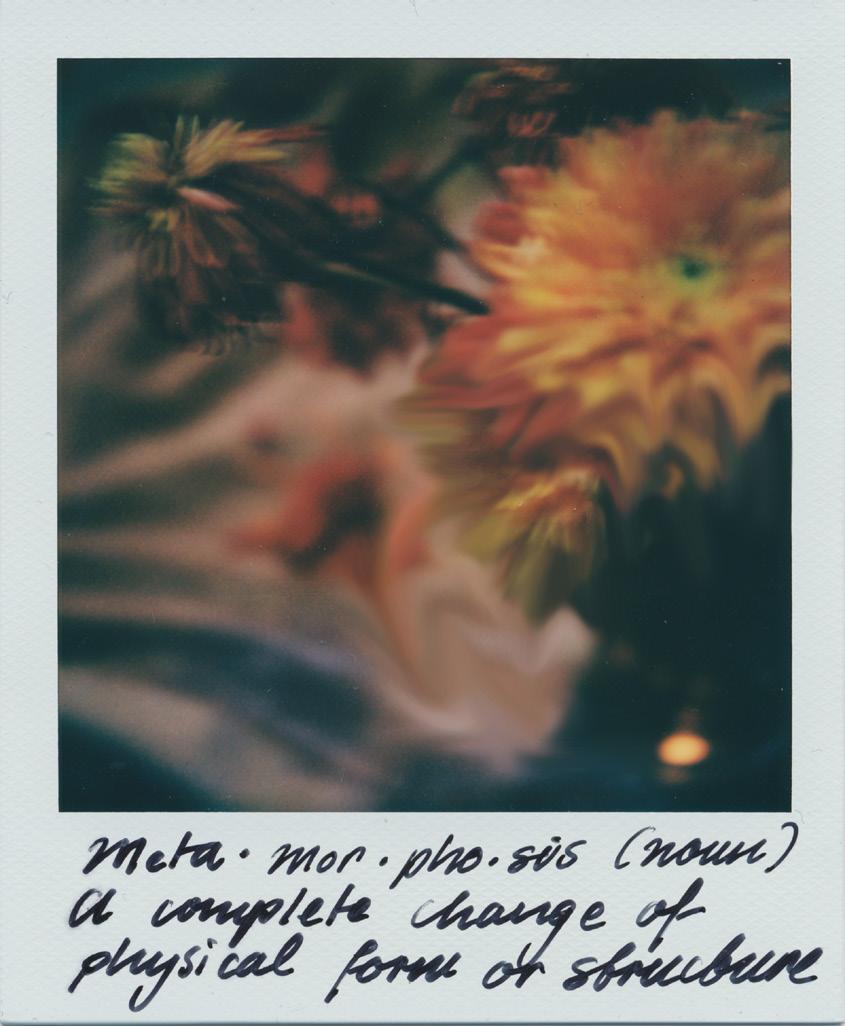
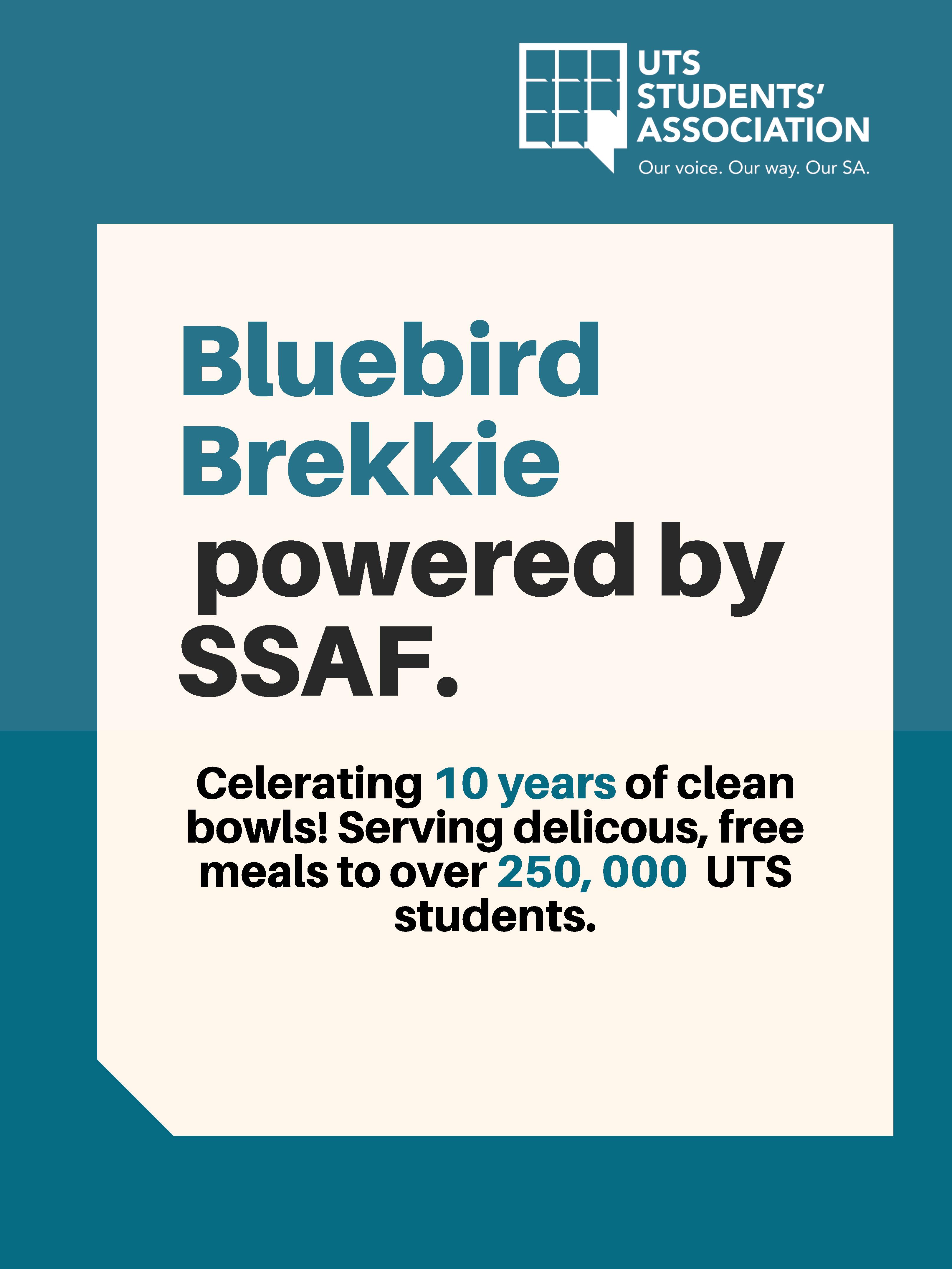
CW: Diet culture, weight loss
Asking people about their pet peeves has become my go-to icebreaker. What better way to strike up a discussion than by sharing mutual annoyances? It’s in our nature to complain, rant, and moan about anything and everything. This includes online pet peeves because co-existing with millions of people in a crowded environment is always bound to become claustrophobic. When that environment is the bustling online infosphere we call the internet, there are bound to be peeves — Instagram’s shitty algorithm, six sunset pics in a row, and couples who insist on proclaiming their love via Facebook comments are among the most common replies I’ve received. I hadn’t even considered my online pet peeve until a friend asked me, but after a little thinking, it finally dawned on me: wellness influencers.
You know who I’m talking about. Recently, it seems like a large number of online content producers have taken it upon themselves to provide consumers with a variety of health, dietary, and exercise recommendations, even though they lack the necessary credentials to do so.
by Rosa Gharibi by Rosa Gharibi by Rosa Gharibi by Rosa Gharibi by Rosa Gharibi by Rosa Gharibi
We seldom stop to think about what is meant by online posts that indiscriminately throw around words like ‘detoxify your kidney’, ’balance your gut’, or ‘repair your hormones’.
These are some of the deceptive buzzwords that lure individuals in with the promise of resolving their health problems — and they serve their purpose well! You’ll watch the brief 30-second TikTok on “how I cured my gut”, and you’ll stick around for the vegan, gluten-free, dairy-free, carb-free, joyless recipes, and monochromatic capsule wardrobe. Even now, a simple search for ‘juice detox’ produces an endless stream of slender, blonde twentysomethings explaining how they lost weight simply by realising they’re either a) lactose intolerant, b) not drinking enough celery juice or c) promoting a diet made for epileptic children (keto, anyone?).
And what’s more, people will believe it! Now that you’ve liked the video and followed the creator, the brainwashing is officially underway. All cults have an initiation ritual. In this case, it’s being conditioned into buying the cutest sage-green activewear set that you ever saw. Don’t forget to use INFLUENCED20 at checkout for $$ off your first purchase!
There is a special term used to refer to false and misleading claims that hide under the guise of science but lack sufficient evidence to hold up in court: pseudoscience. The promotion of seemingly harmless diet fads and nutritional advice that seems to be the latest craze right now is just the tip of the iceberg. Instead, what interests me is the culture that has allowed the persistence of unsupported scientific evidence and facilitated its widespread acceptance. Diving down and exploring the rest of this iceberg concealed by murky waters reveals the extent of the issue, most of which can be narrowed down to one notion: trust in communication.
We start learning how to communicate at a young age. Babies are aware of the precise pitch and frequency of screams and whines that will best get their parents’ attention. In fact, it’s believed that modern humans’ ability to advance so far, defeating our distant ancestors and taking control of the planet during the Anthropocene, is the result of this very evolutionary advantage. 1 To a certain extent, all social species have mastered communication; and while birds and insects have stuck with their song and dance, we’ve somehow arrived at Tinder dates. But the diversity of our languages and the development of social media have taken communication to a level incomparable to any other social animal. We talk, read, listen, and write. Not only that, but we also have cognitive development that allows us to avoid misinformation and deceit.2 However, communication itself is not enough to avoid falling victim to lies and misinformation. Only when communication is accurate and sincere does it have any real value. That’s where trust comes in: a protective mechanism that allows us to take full benefit of communication and learning, safeguarding us from deception and manipulation.
Authority is a big part of trust. Studies demonstrate that we have a propensity to believe people’s communication based on how much we trust them as early as infancy.3 Fame also has a significant advantage of giving you authority, which explains the widespread prevalence of influencers, celebrity endorsements, and product placements. The problem is that the authority of these celebrities is a weak form of evidence to support the claims they’re making, the practices they’re encouraging, or the products they’re advertising. I think this is best illustrated by everyone’s favourite wellness guru: Gwyneth Paltrow. I can still clearly recall the momentous day in 2018 when I came across the infamous ELLE piece, which first opened my eyes to how much bullshit celebrities can get away with when promoting to their evergrowing cult of health and wellness. If you’re not familiar (and it’s a good thing if you aren’t), the saga started when Paltrow’s ‘health’ and beauty brand, GOOP, released an egg-shaped “wellness” jade stone that was made specifically for vaginal insertion to help you “experience the connection with your body”. 4 At least, this is how their website currently describes it after the lawsuit that forced them to retract their claims that the egg could help balance hormones, which is, quite plainly, not biologically possible.

It should go without saying that it is not a good idea to place a porous stone in a body cavity that is prone to infection, but that is not the point of this. The key point is that celebrities have no trouble using their influence to make wealthy groups of people even wealthier. The true health and wellness of impressionable consumers is rarely treated as little more than an afterthought and is only considered when facing a costly lawsuit.
By this point, you might be thinking that you’re immune to such information because you believe in science, you’re up to date with your vaccinations, and you’ve practised social distancing ever since March 2020.

You would believe that avoiding misinformation is simple — after all, if there isn’t any scientific evidence, it must be untrue, right? However, those who believe in science are susceptible to falling for false claims, given that their source has an equally false scientific reason they’ve conjured to support their claim.5 This is deception “pretending to be scientific”, according to Dolores Albarracin, a professor at the University of Pennsylvania’s Annenberg School for Communication. This means that “those who are educated to accept science and generally do trust science can be tricked as well”.6
Dissecting the manufactured evidence behind dodgy claims or recognising the lack of evidence is not easy. It takes skill, vigilance, and practise to ensure mindful consumption of media. When you throw scientific misinformation into a fiery cauldron and add in a sprinkle of 21st century media access, online communities become echo chambers of mirrored ideologies that are difficult to penetrate with logic or reason.
I have bad news: ironically, ‘believing in science’ isn’t enough to save you from the pitfalls of pseudoscience. Those who believe in science are more likely to be fooled.
Unlike Gwyneth, real scientists and clinicians can’t pull claims out of thin air and reap the benefits because the truth is: even scientists don’t trust science. It is an ever-changing field, and that’s why in science academia, claims are discounted unless backed by observations, experiments, and other forms of evidence, and even then, they are subjected to rigorous and harsh critical appraisal of their research by their peers. What’s more is, they welcome it! Epidemiologist Ben Goldacre accurately denotes this as a “consenting, intellectual S&M activity”.7 In contrast, pseudoscientific claims are webs of dodgy claims posing as real science, woven to trap and draw you in.
Want to avoid becoming the bait stuck in this web? Next time you’re reading an article, watching a video or scrolling through your feed and an infographic pops up, stop and consider who the author is, what their accreditations are, and what they stand to gain by communicating this information with you. If that doesn’t pan out and you’re still having doubts, just ask yourself, do they look like the type of person to purchase a jade egg?
1. On The Evolutionary Origin of Symbolic Communication
Goop Wellness Jade Egg
Epistemic Vigilance in Early Ontogeny: Children’s Use of Nonverbal Behavior to Detect Deception
Infants’ understanding of false labeling events: the referential roles of words and the speakers who use them
Misplaced trust: When trust in science
belief in pseudoscience and the
of

evaluation
Misplaced Trust: When Trust in Science Fosters Pseudoscience
Ben Goldacre: Battling bad science
I recently had a revelation that shattered my queertinted glasses: most of society has little exposure with the LGBTQIA+ community. Frequently correcting people about harmful homphobic and transphobic remarks is a reminder that society is still predominantly dictated by hetero-normative values. Consequently, I have realised that my existence as a fully-accepted queer person is merely a reflection of my digital echo chamber. So, are these spaces fostering a state of delusion, or do they facilitate a useful space for conversation around social issues?


To define an echo chamber simply, social media has the ability to pick up on one's personal views by monitoring what content they follow, like, and share, limiting them to exposure with those sharing similar ideologies. This process enables users to exist within their own social media bubbles that echo the same ideas they share. Groups that are marginalised within mainstream society, such as the LGBTQIA+ community, can connect with like-minded individuals online and explore their identity within safe circles that may offer more acceptance and support. In turn, the negative implications of these echo chambers forming is a heightened sense of distrust and resistance against those with different opinions, leading to a decreased willingness to engage in open discussion and debate. This phenomenon is known as online polarisation and it occurs when users actively choose to only see content that they believe backs their belief, regardless of whether this information is factual or objective. A 2020 study on echo chambers finds that, ‘when polarisation is high, misinformation quickly proliferates’.
For a lot of people, lockdown proved to be a time of self-reflection and exploration of our identities. In my case, the extended time at home led me to realise that those girls who I saw as really good friends in high school were actually crushes, and I was in fact more than just a strong LGBT+ ally. Curious to learn about this space, I started searching up queer influencers and creators and soon saw my social media pick up on these changes. It quickly became a lifeline of information, transforming my worldview into an existence dictated by opinions on queerness. I picked up on how to dress in more queercoded styles, and I was able to learn insights on social
Clouding our vision of reality piece of the internet?
It quickly became a lifeline of information, transforming my worldview into an existence dictated by opinions on queerness.
issues that I had been less sensitive to previously. My interactions with friends were injected with discussions on sexuality and gender expression, which, to my luck, was appreciated and respected without question. My queered echo chamber led to meeting many other likeminded friends and discovering that some of my own friends were a little more fruity than expected.
However, the issue with echo chambers is that they are spaces you don’t want to leave, making existence within a heteronormative reality a lot more challenging than before. Being met with less open opinions on gender identities was frustrating, and I felt offended when reminded to ‘tone down’ my appearance for interviews. This whiplash is a harsh reminder of just how much the digital world was tinting my vision of reality. I was getting more emotional and worked up over opinions that called my appearance ‘feminine’ and arguing over why ‘they/them’ can be used to describe a singular person. Encountering often confused or annoyed responses, I recognised that my strong opinions were coming off as a little too aggressive, and that learning how to navigate existence in my echo chamber and reality was a skill of balance. My digital world is its own paradise; however, I must tread the fine line of remembering it is not reality — otherwise, I will lose my mind spiralling down a rabbit hole of content incongruous with my daily life.


Despite these issues, it’s not all terrible to exist within your own social media bubbles. The space I cultivated makes me feel safe and helped to build my self-confidence in my identity. Instead of trying to fight my thoughts, I have come to embrace them and find comfort in my identity within this circle of companionship. It’s a space that iterates the understanding that there is nothing wrong with being queer, welcoming liberation and visibility in the face of societal suppression. Falling down a rabbit hole isn’t all too bad if at the end of the fall there are gorgeous enbies in faerie cosplay, right?
At the end of the day, it is all a matter of balance. An understanding of how social media confines you within certain communities is essential for your selfawareness. No one wants to leave their echo chambers (I sure don’t), but you can’t let it completely cloud your perception of reality. Remembering that not everything within these spaces will be factual or true is essential in ensuring you do not fall into the trap of narrowing your worldview and cultivating beliefs that are too extreme.
Dystopia. Ah yes, remember that phase you went through?
Reading The Hunger Games, Divergent, and Maze Runner. You might have been like me — a small pre-teen excited for the upcoming films! Maybe you even read Fahrenheit 451, Animal Farm or 1984 in high school as part of your English curriculum.
If so, you pretty much know all the tell-tale signs of what a dystopian society looks like, right? Crazy futuristic worlds with totalitarian powers and insane surveillance laws? It may seem wild to consider, but ideas of “dystopia” are more connected to the present than we may think.
This short article will not go into how personalised social media advertising works or how ruling powers and mega corporations often buy and store your information. I’m pretty sure you are aware of this, and I’m also sure that it doesn’t stop you from using the technology.
Instead, I’m going to discuss the fact that recently one country has been found to be using face-tracking technology while customers are in stores
Yes. One country is actually scanning people’s “face print”

as they walk into stores.
But which country is using these “services”? Maybe the elusive North Korea, a country currently living under a brutal dictatorship? Or perhaps it's a tech-savvy European nation like Germany, the majority of whose exports are technology -based? Surely it must be somewhere like China where the government monitors and moderates practically all online activity?
Great guesses! But you’re completely wrong.
It’s Australia.
Good ol’, laid back, fun-loving Australia is the first and only country (currently) to be using face-tracking technology. Let’s quickly discuss the way these face tracking activities have been used...
In Western Australia, if a person contracts COVID-19, they have to stay at home for seven days (similar to NSW). The Western Australian Police check up on patients’ whereabouts by sending periodic text messages that require a selfie to be sent back within 15 minutes. In this situation, the police use facial recognition and GPS tracking to confirm that the selfie was taken at home.1
Some people might see this as an acceptable use of face tracking for the good of public health and safety. Others may think this level of security crosses the boundary between wellbeing and unwanted exposure. I will leave that up to you. The reason the discourse on face tracking has come about, however, is because Bunnings and Kmart are currently under review for using this technology in their stores.
A few months ago, the two retail giants were exposed for using technology that captures and tracks people’s faces, saving them to databases shared with other stores.2 The companies declared they wereare using this technology to “protect customers and staff and reduce theft in select stores”.2
Theoretically, collecting “face prints” could extend to tracking eye-sight and eye movement to itemise what people are viewing. They could potentially track:
• What products you put back
• What products you look at
• When you come into the store
• How long you spend in aisles Accordingly, that data could be used to influence advertising, product placement, and in-
store services, bringing up all sorts of privacy concerns — especially as we have no idea what this data may be used for, only that it can be collected.
An issue we see all the time is that technology develops at a rapid pace, outracing the slow changes of the law.
In fact, Choice consumer data advocate, Kate Bower, shared that these businesses were rushing to use this technology before Australians were even given a chance to have a say or understand its use. Kate highlights how this type of data is “similar to taking your fingerprints or DNA every time you shop”.3
Sorry for possibly ruining your shopping experience, but aren’t you glad you know! Next time you go to the shops, consider how much information you are giving…or more accurately: how much information they are taking.
1 The nation where your 'faceprint' is al ready being tracked
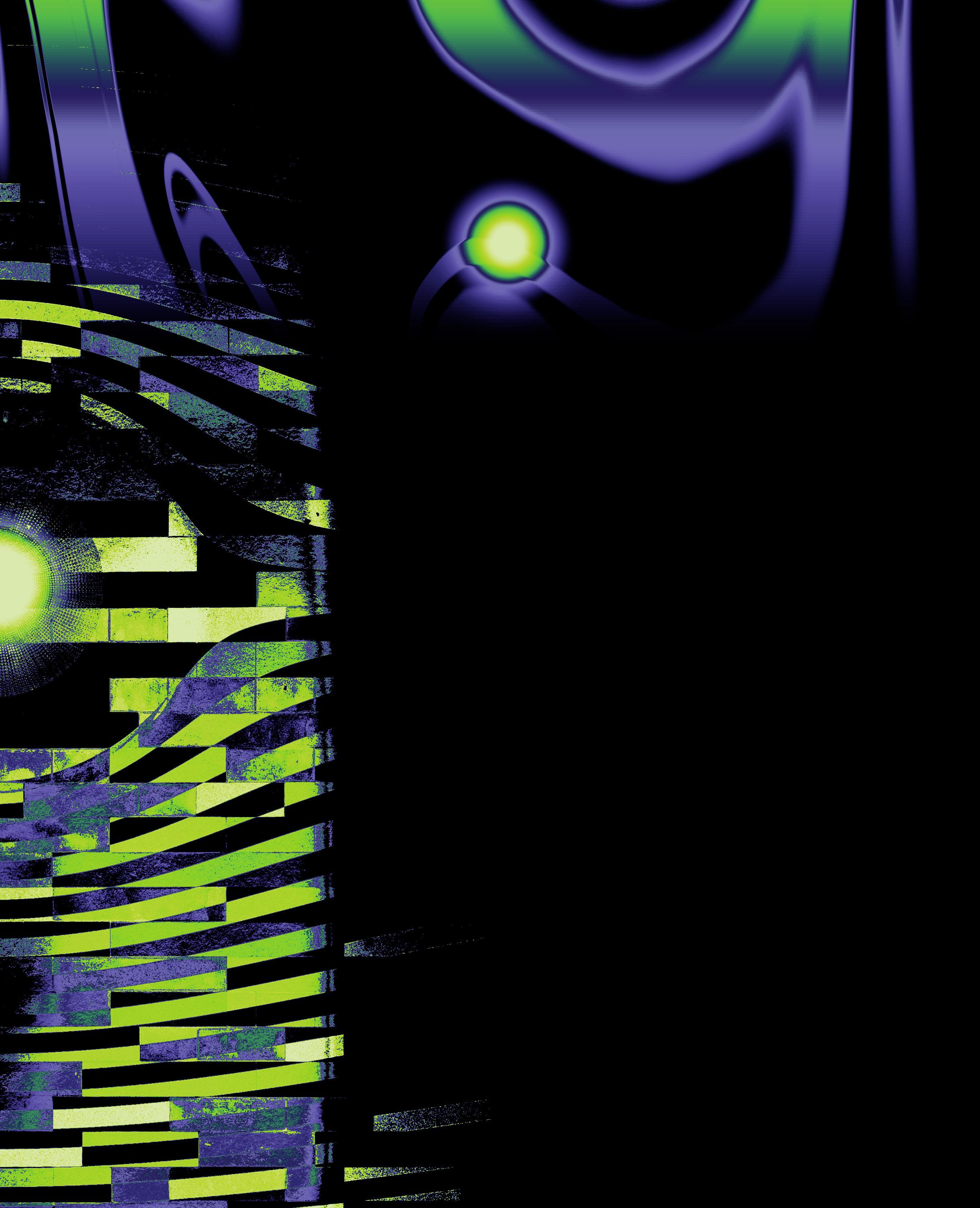
2 Privacy watchdog to investigate Bunnings and Kmart over use of facial recognition technology
3 Aussie retailers using facial recognition tech nology on unsuspect ing customers


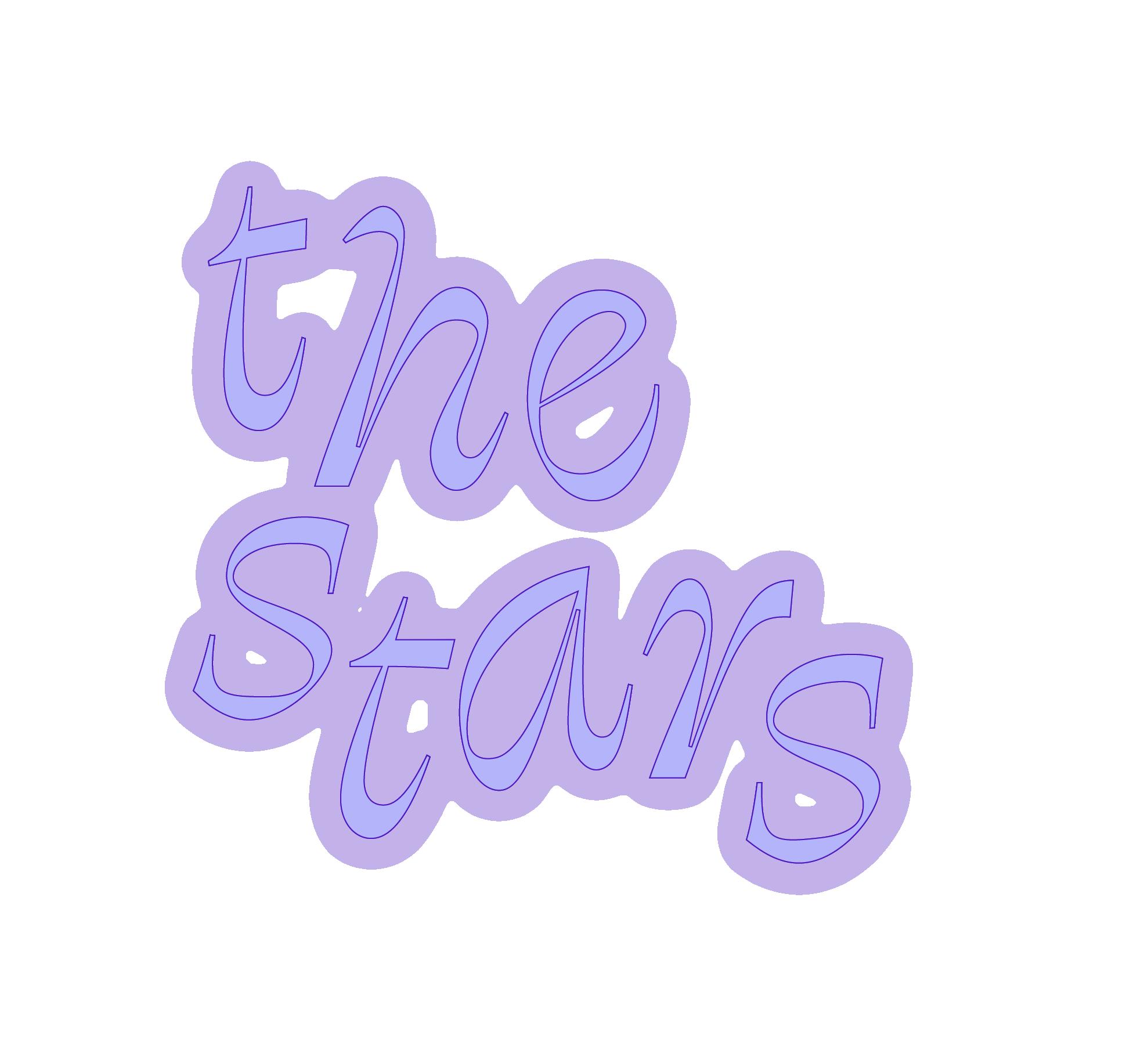
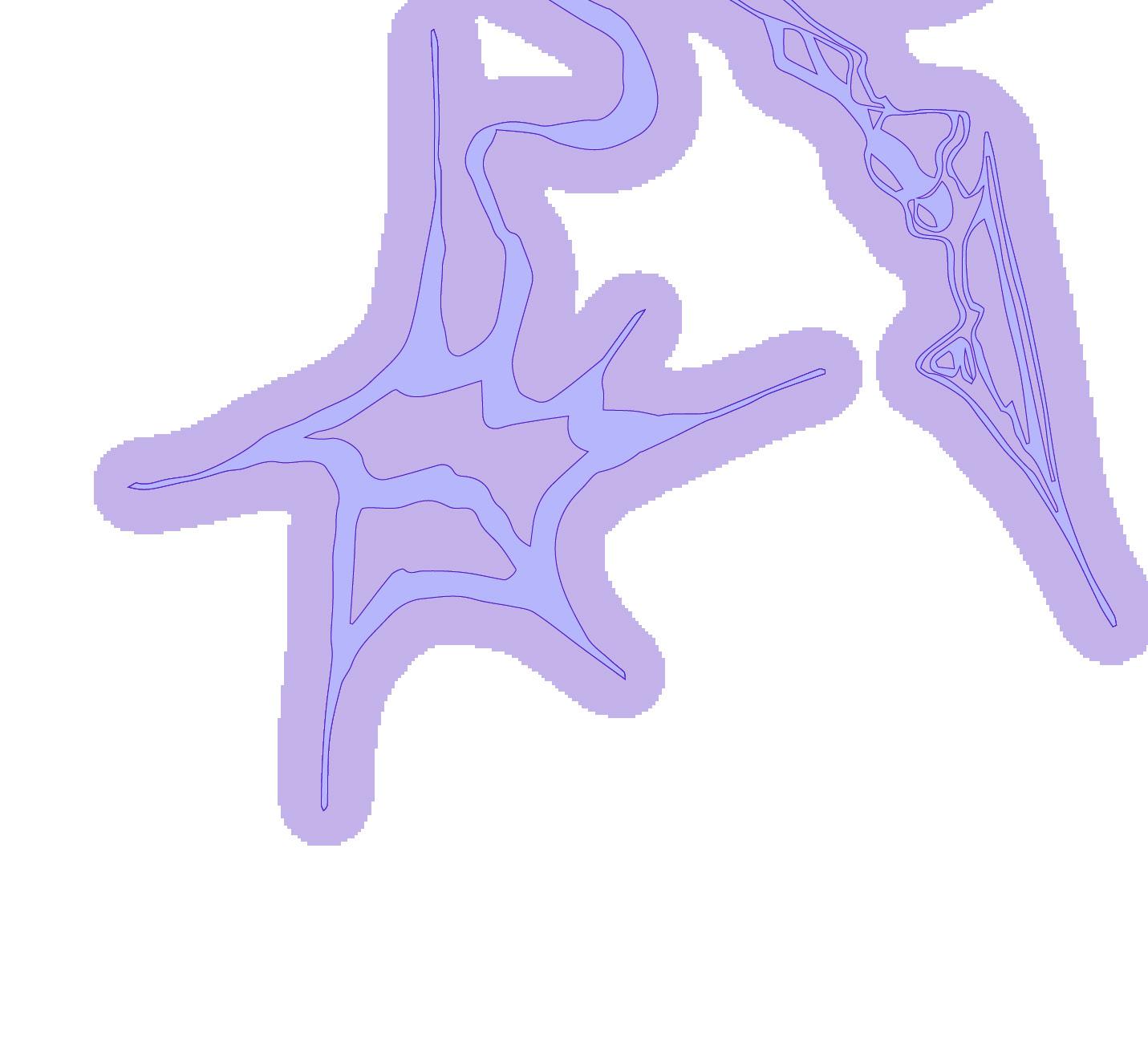




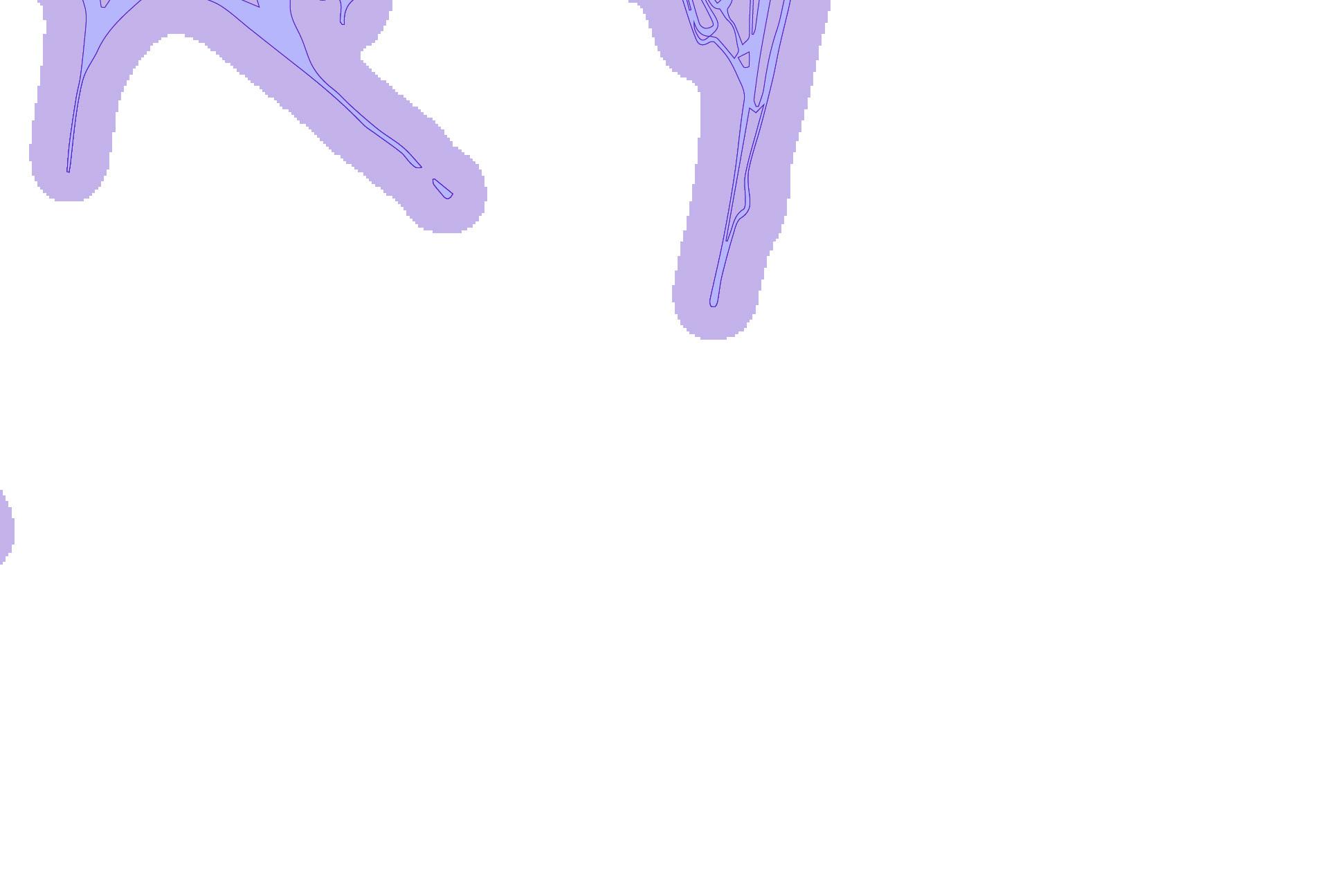

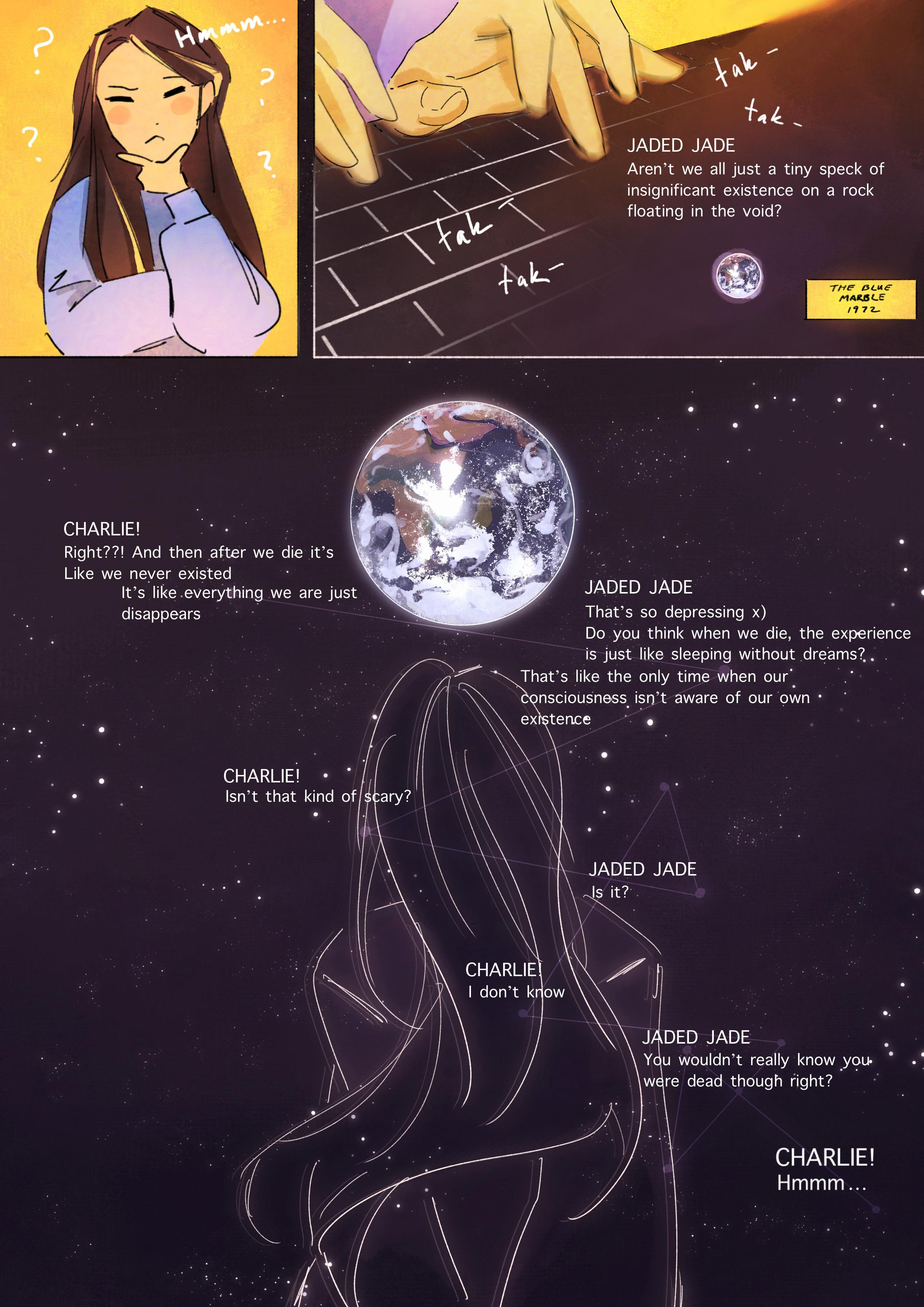

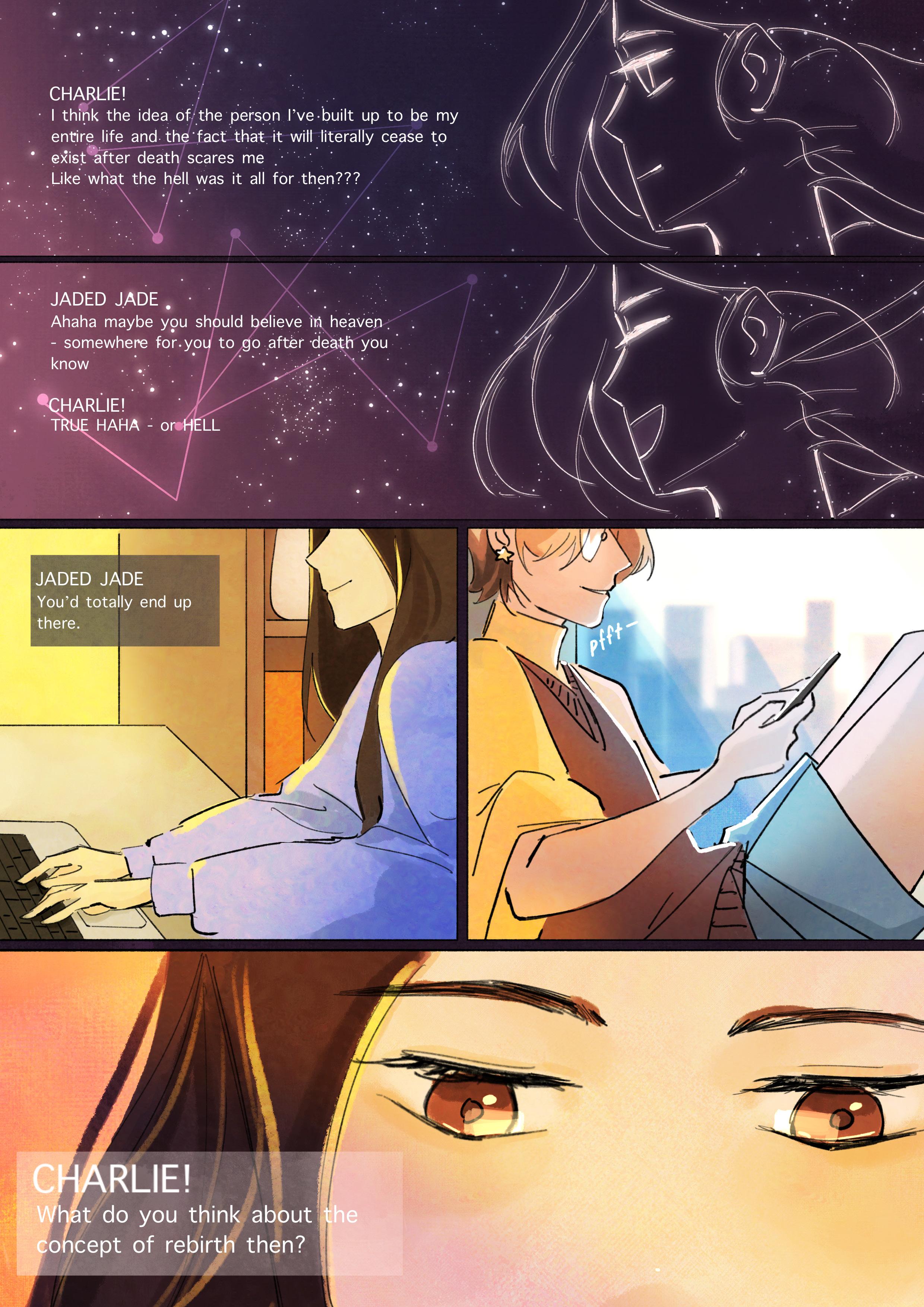



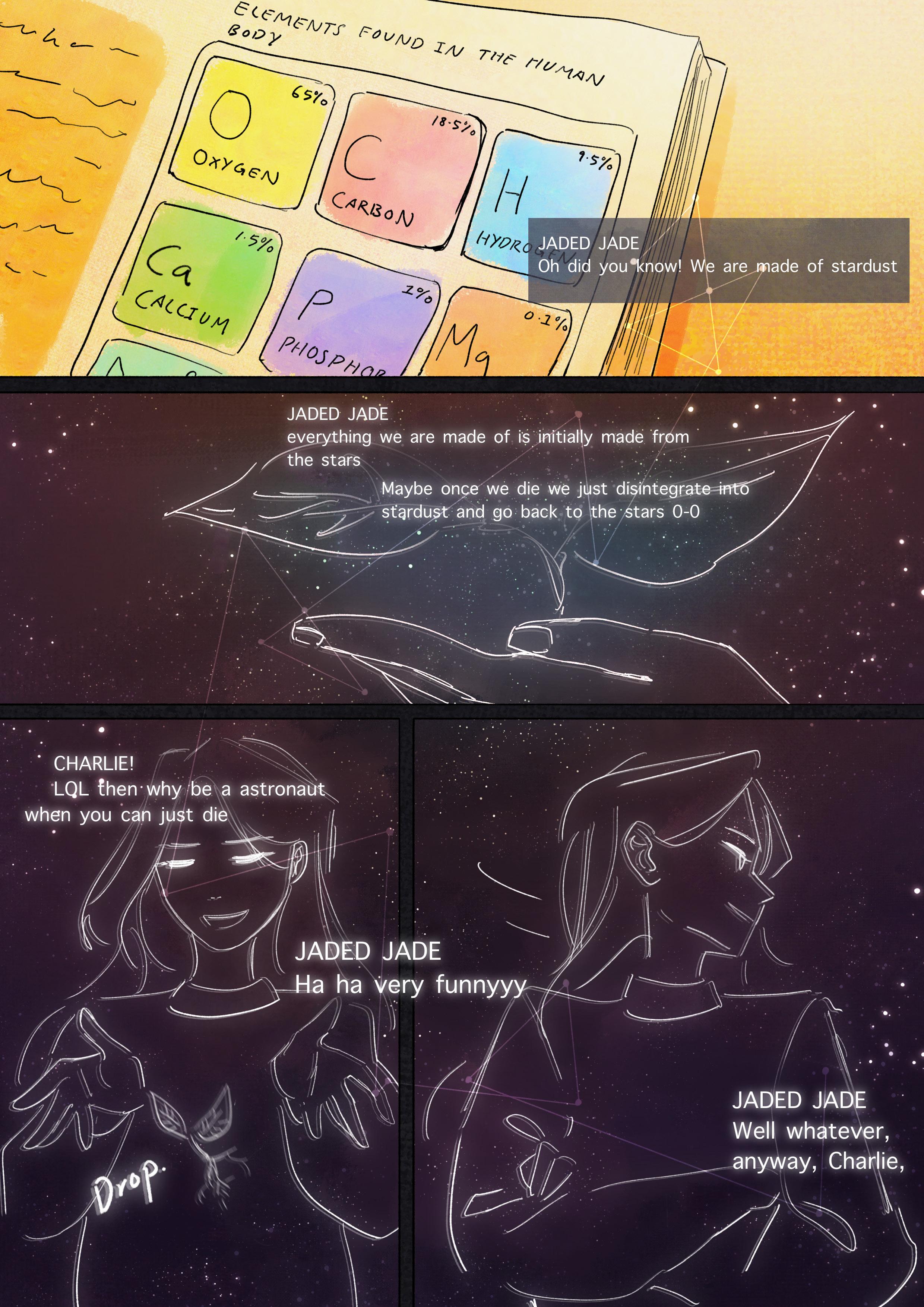

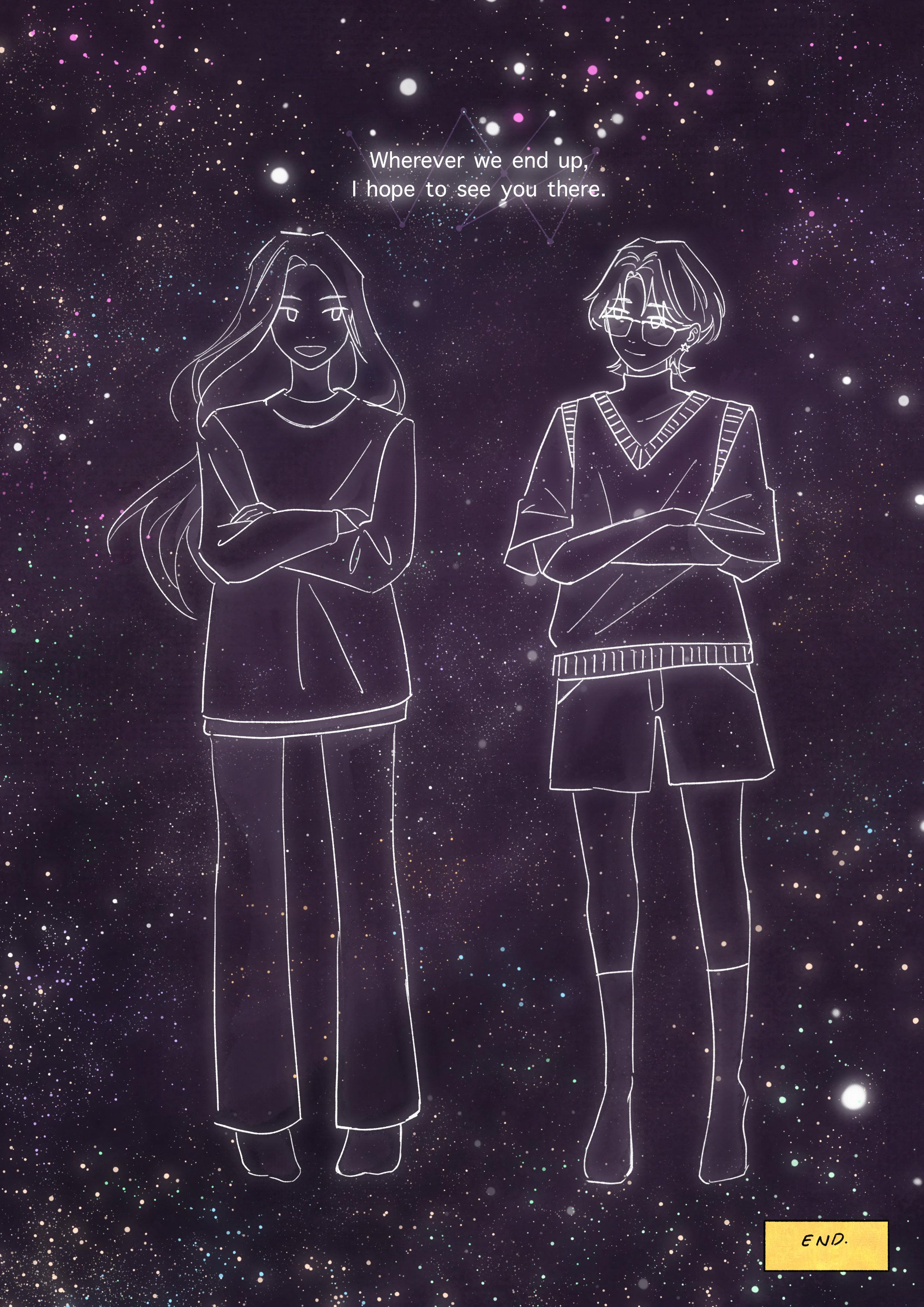
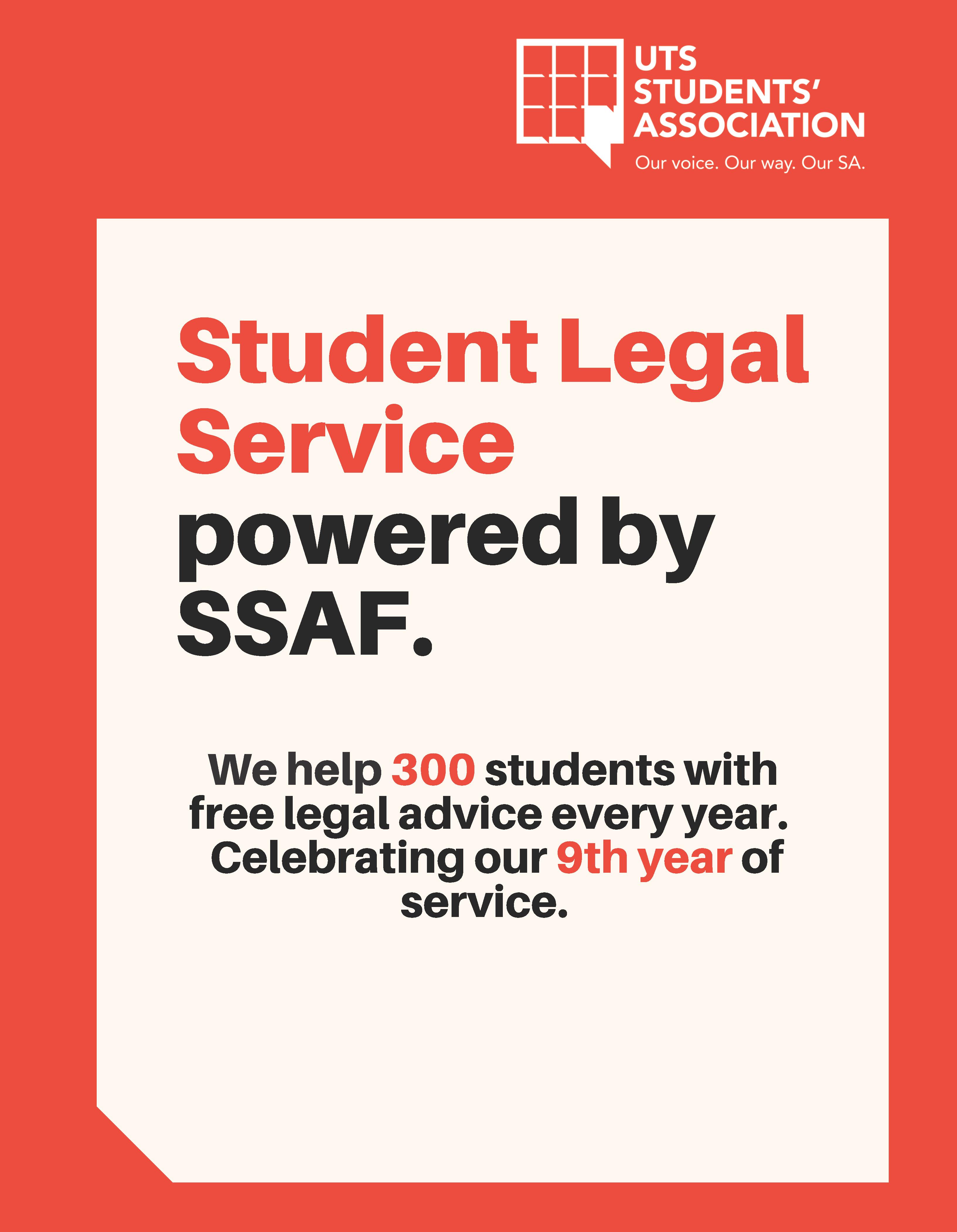



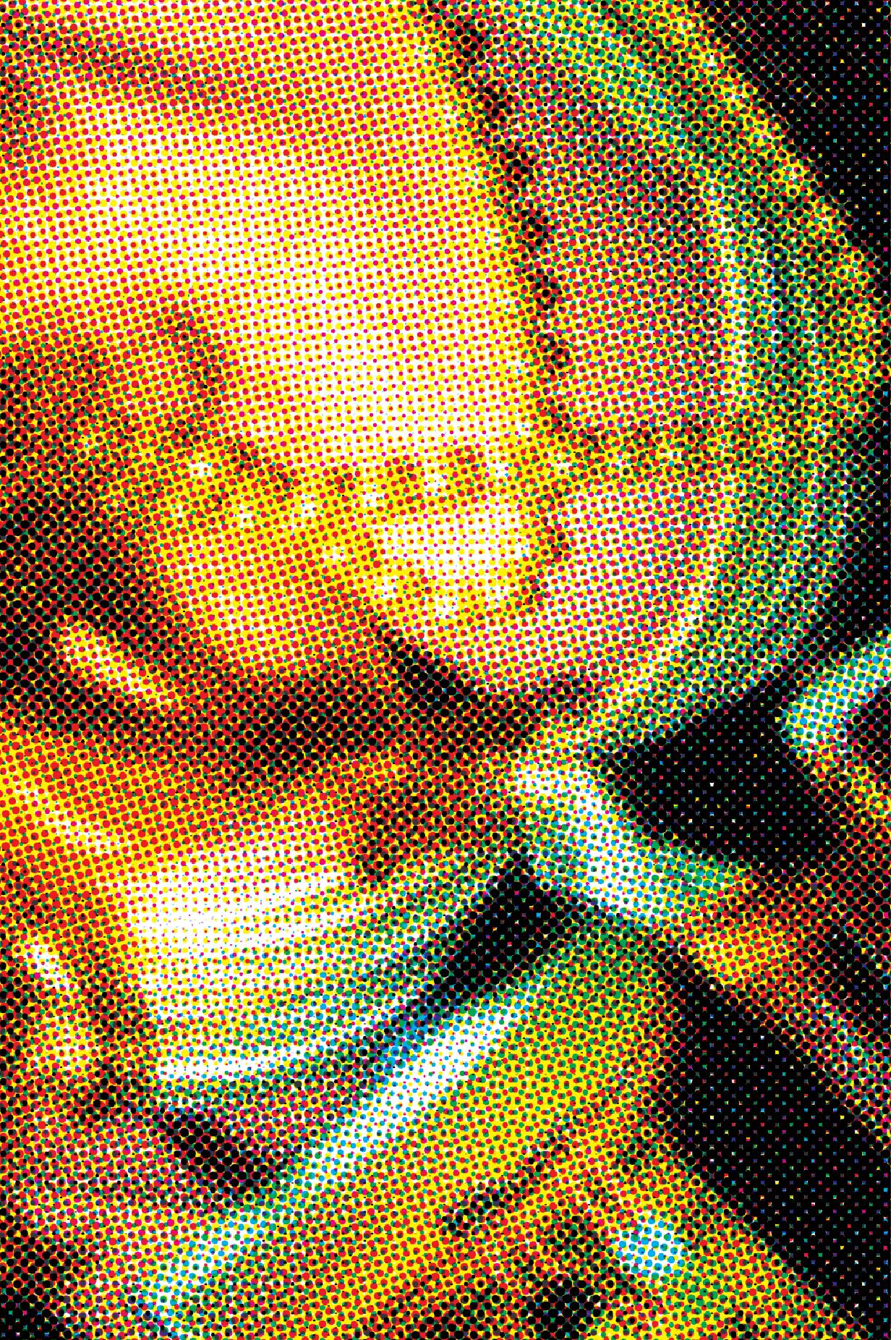

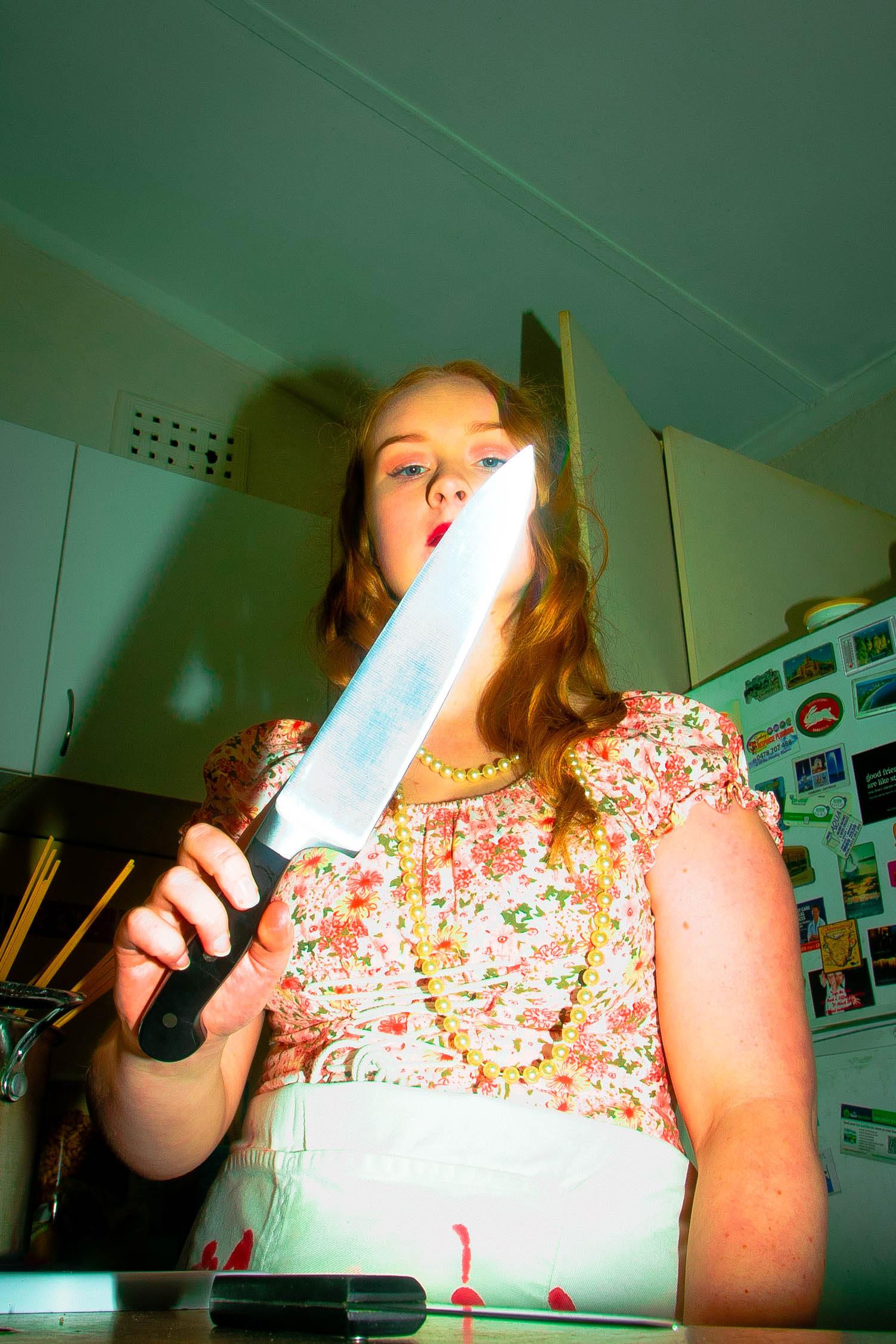



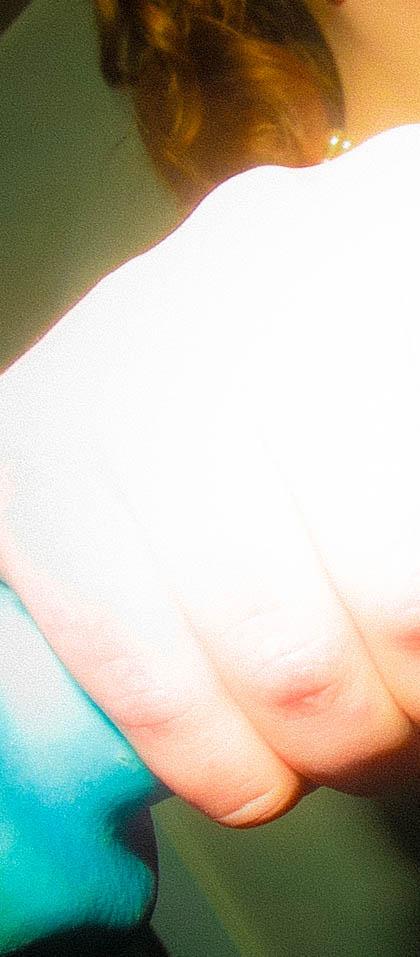



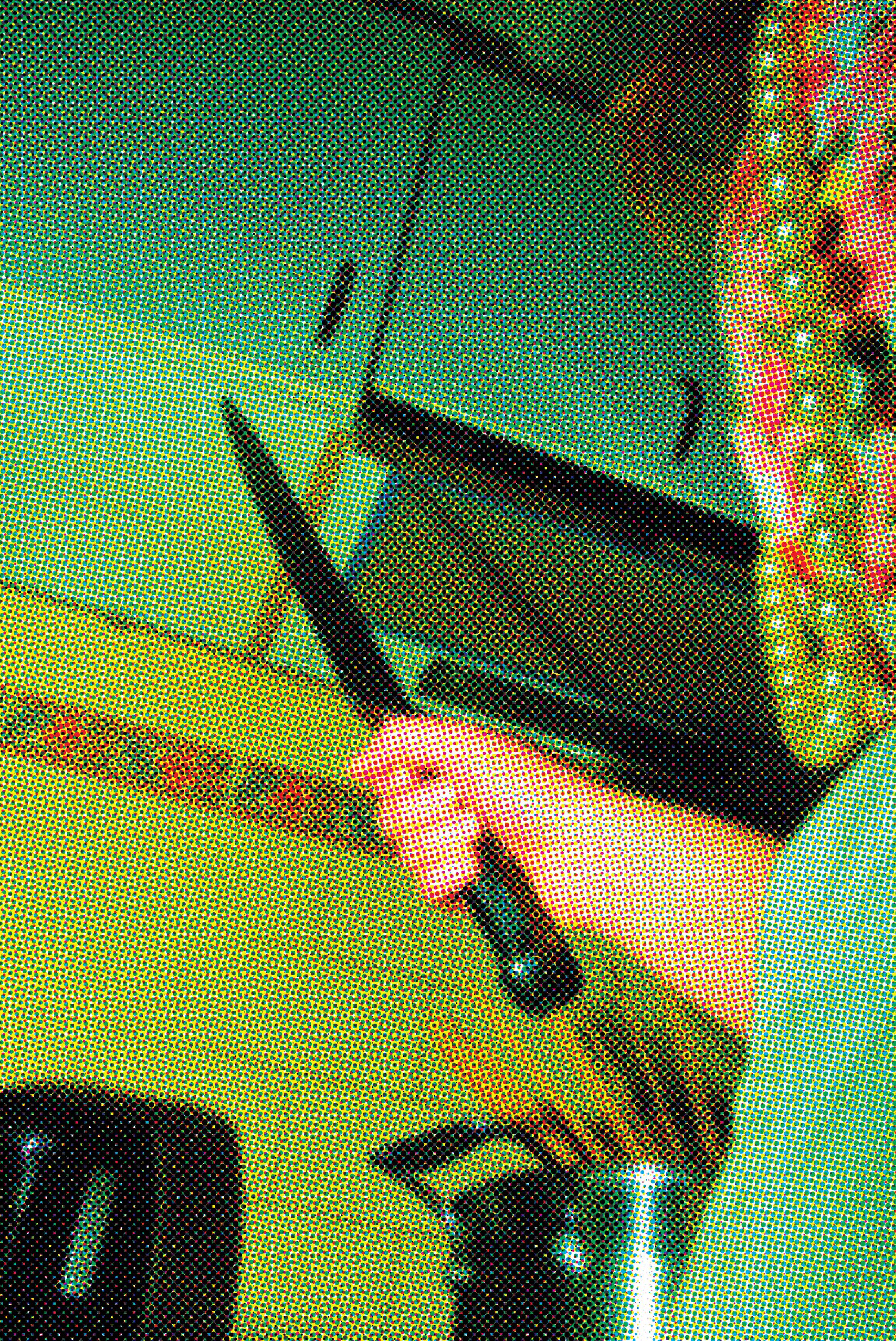



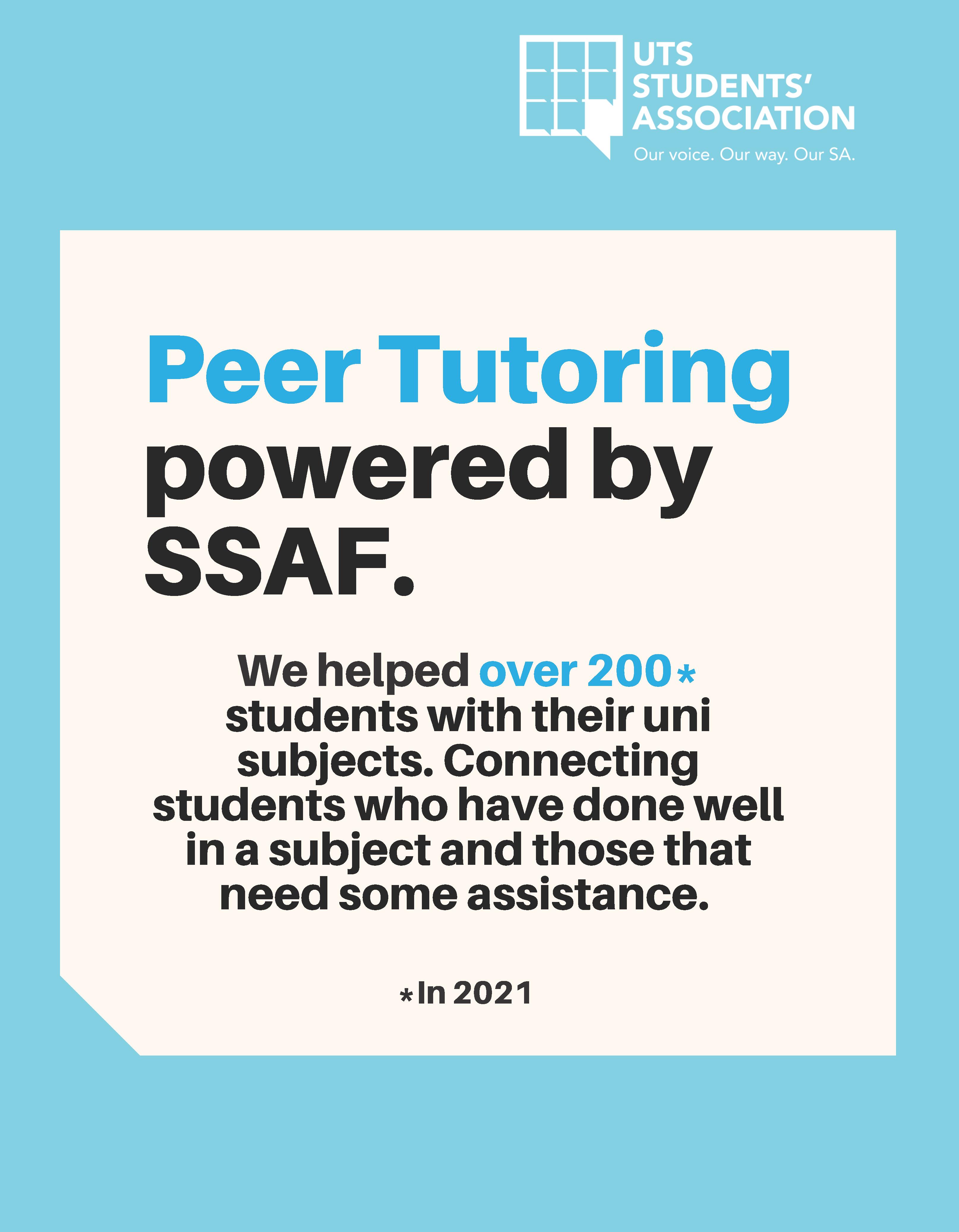
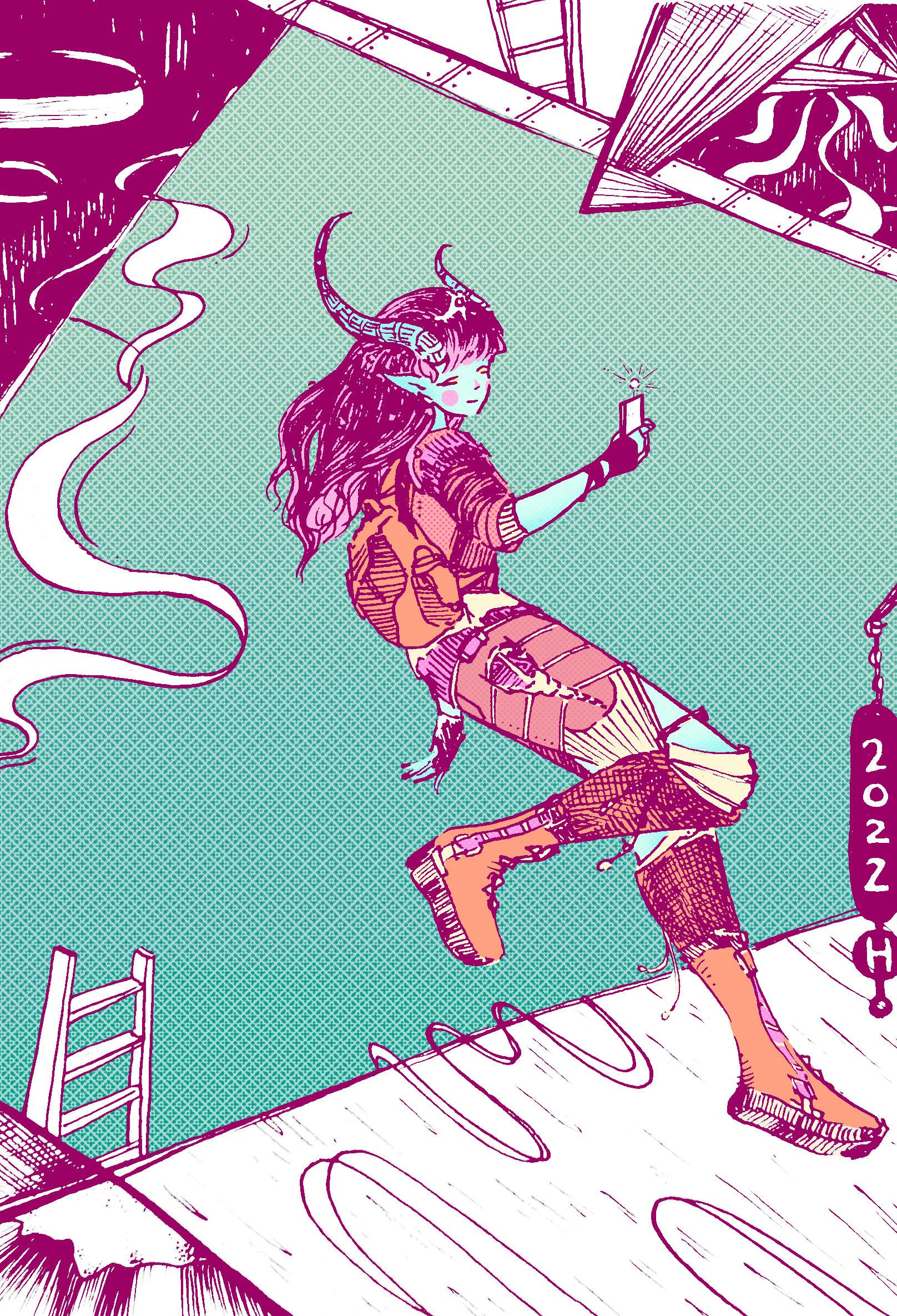

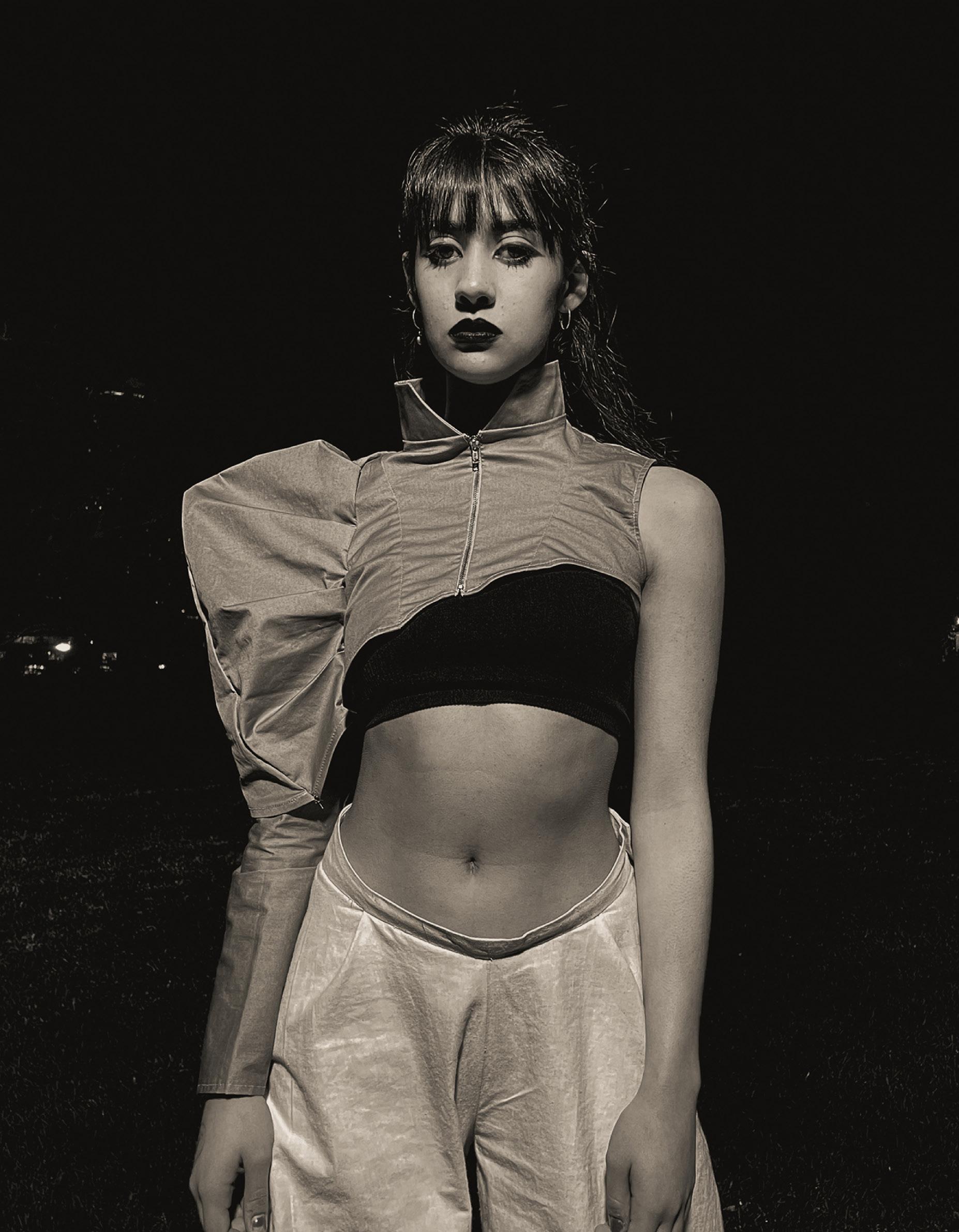 by Giovanna De Pontes
by Giovanna De Pontes
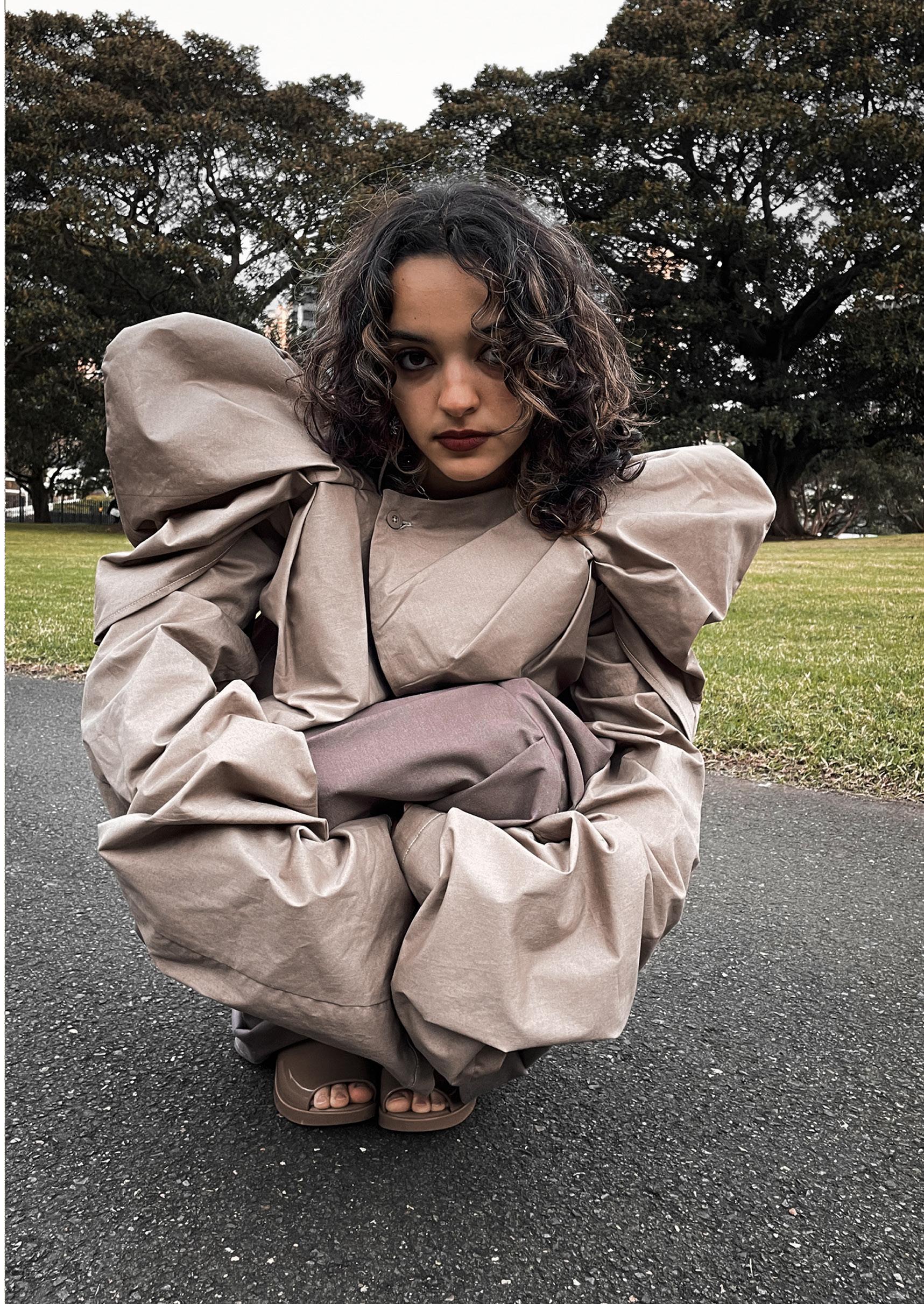
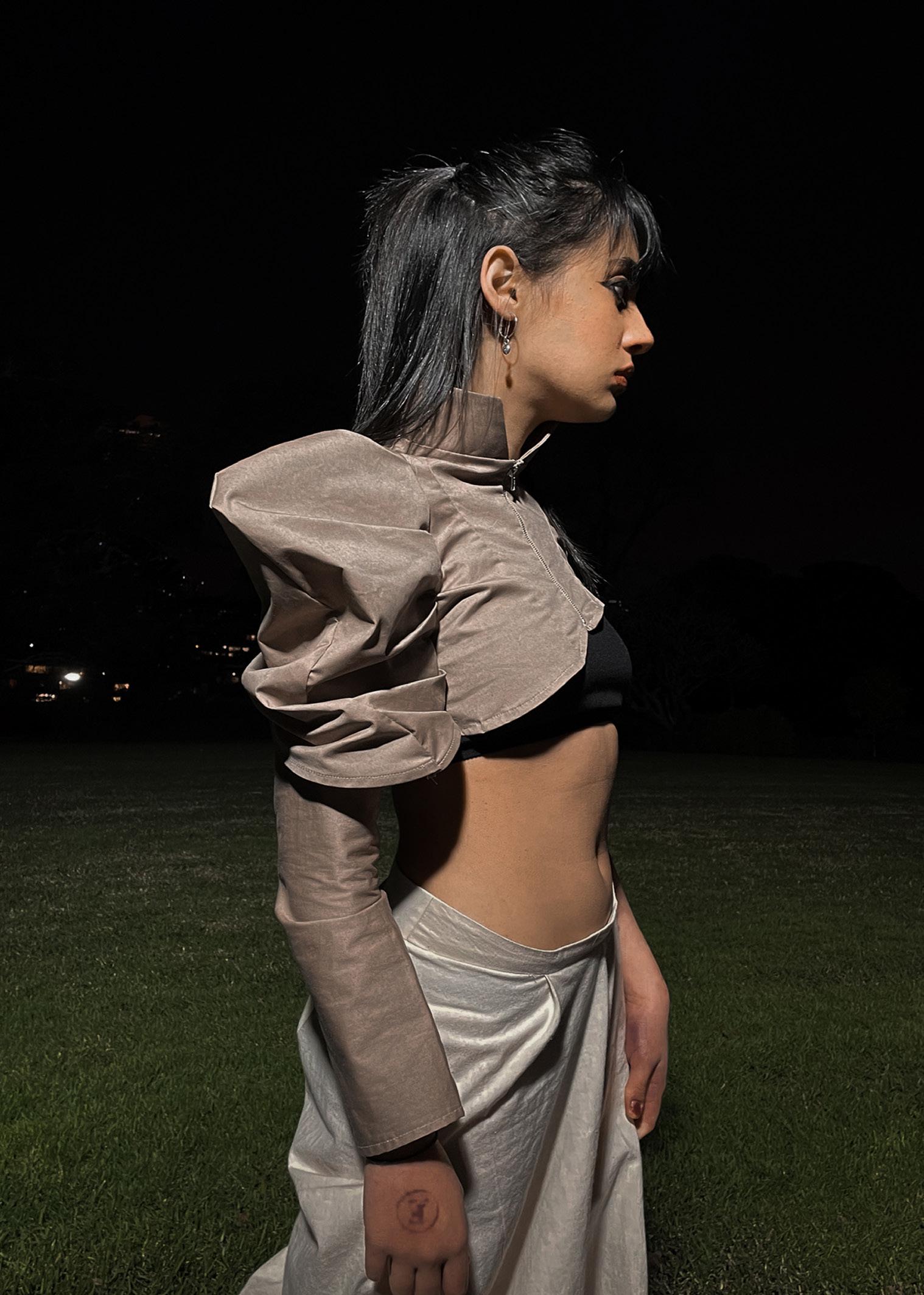
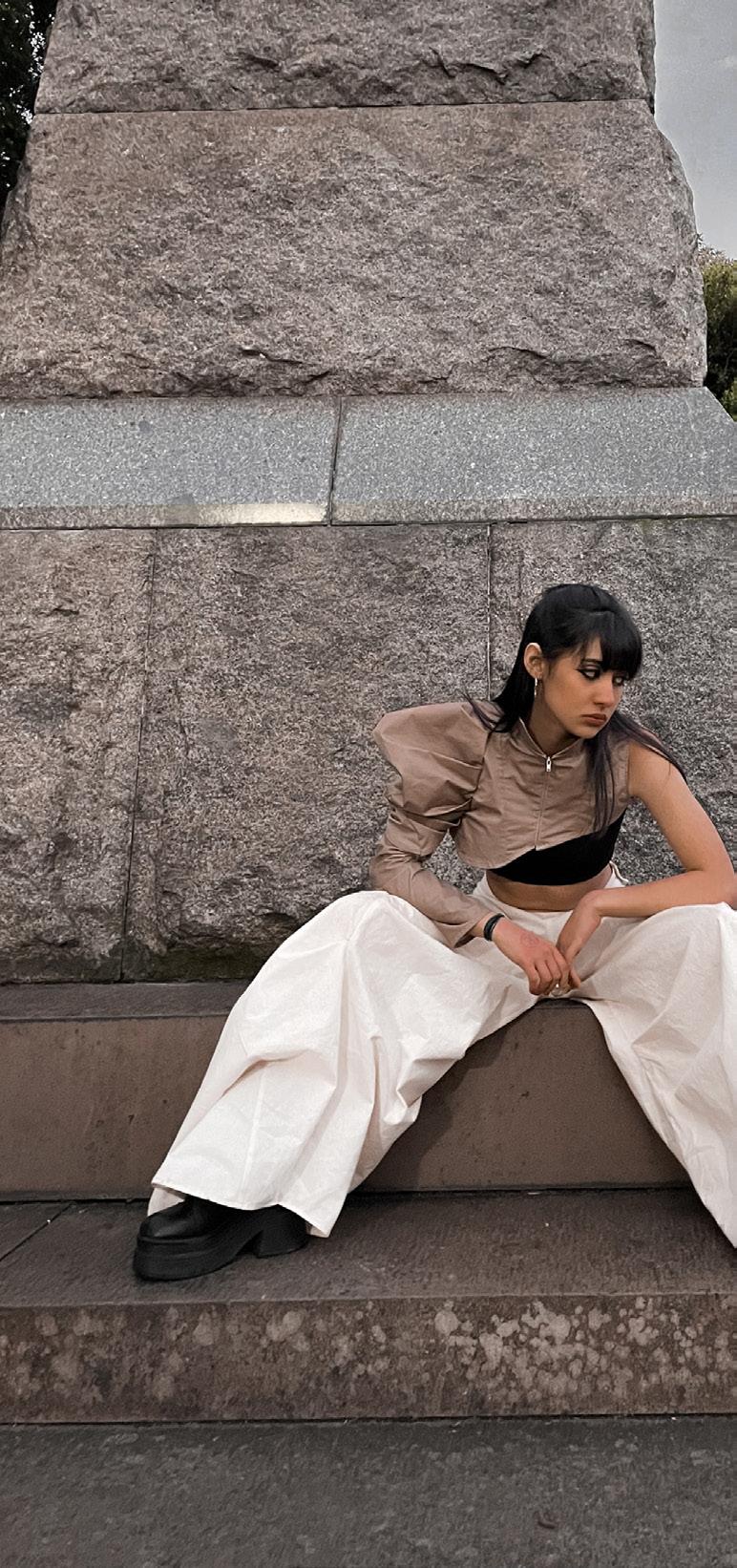
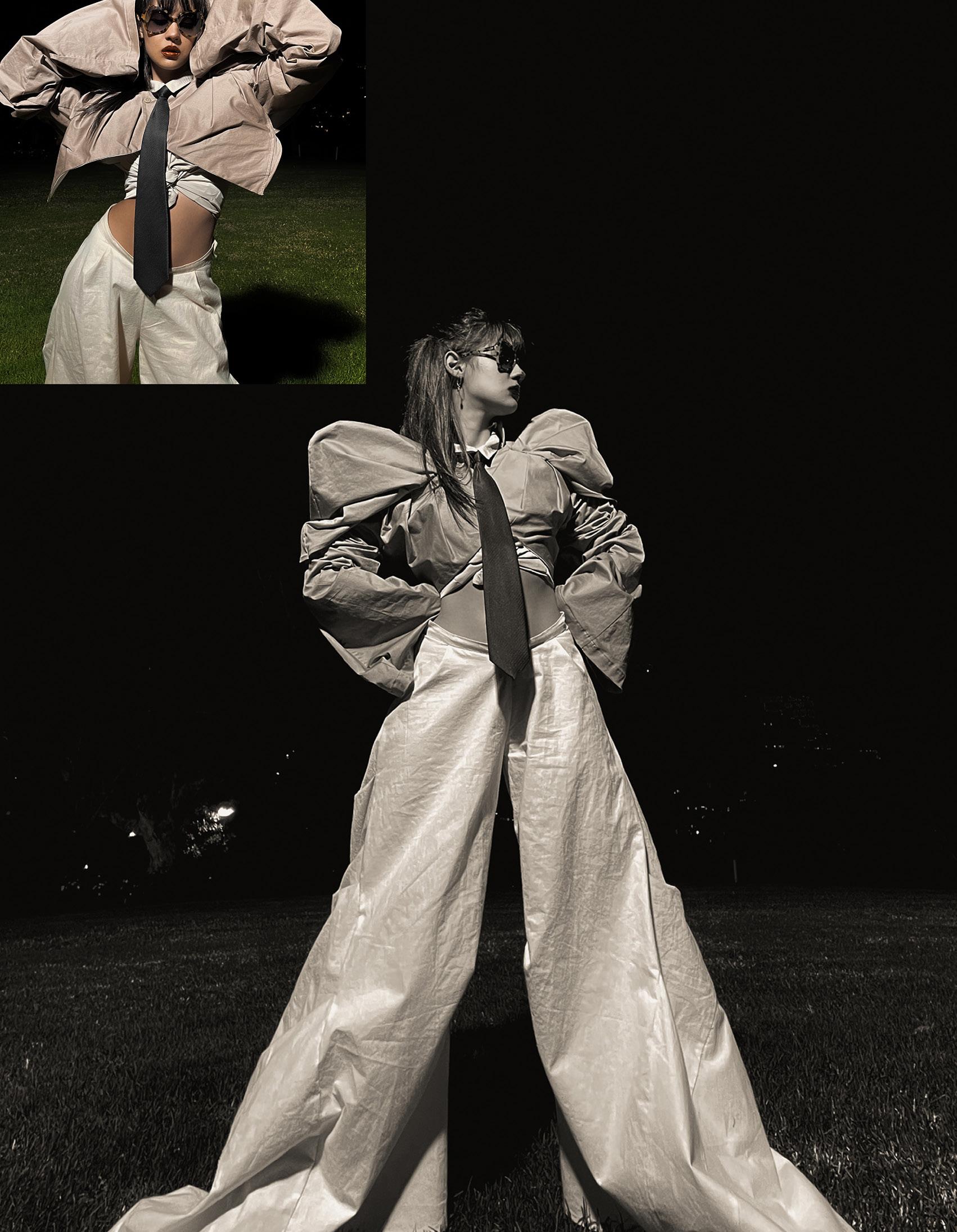

Buoyancy and gravity are two entirely opposing forces which coexist with one an other. Similarly, so do natural environments with urban structures. In this collection, I have explored buoyancy and its strong ties to gravity through the juxtaposition of organic, voluminous shapes with dragging forces. In the dress, which was the first realised design of the collection, I have focused primarily on buoyancy and soft, feminine silhouettes.
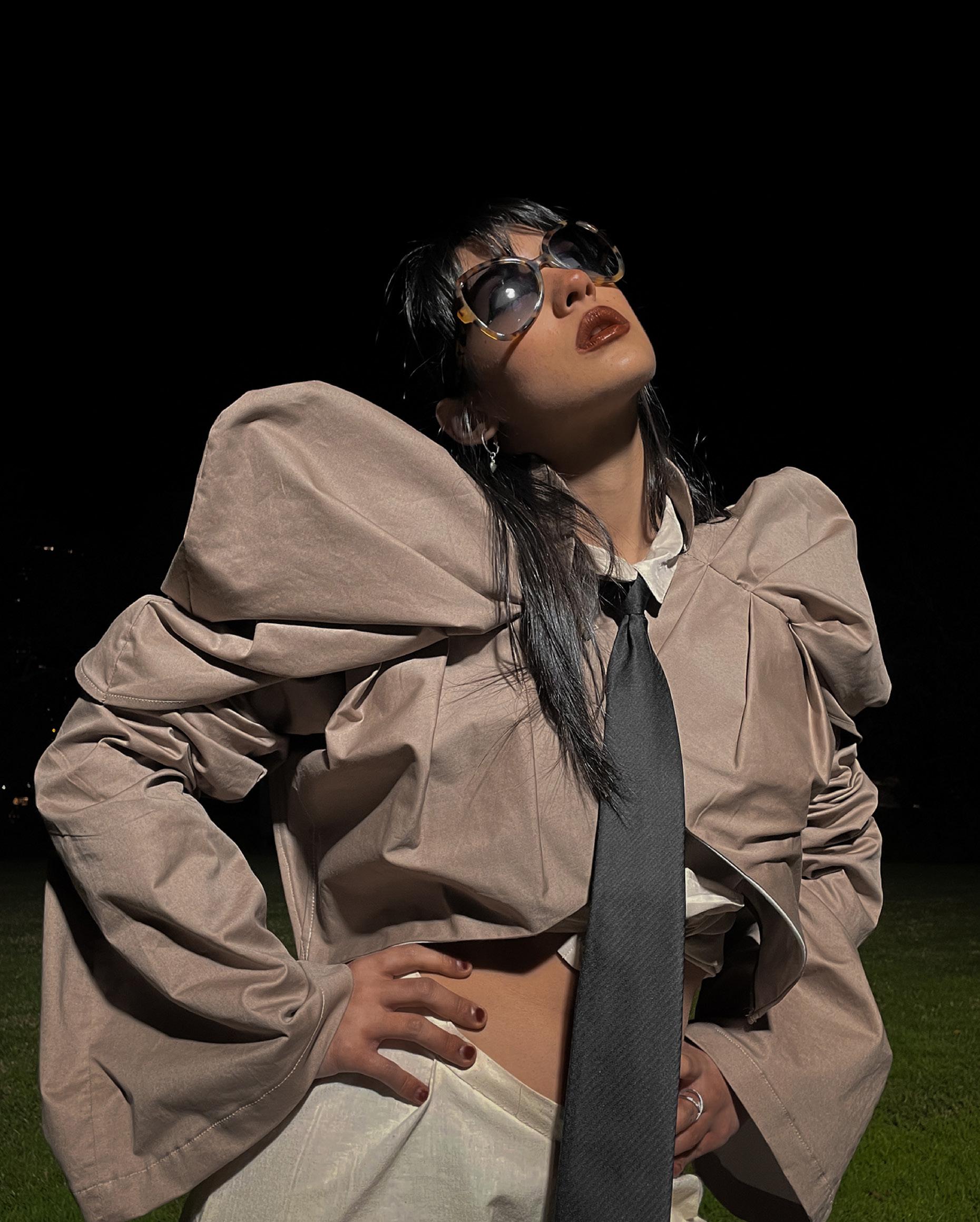
However, as the design process progressed, I began to take influence in brutalism and the down ward-pulling of gravity. The designs in the collection begin to transition into organised repetition and more structured modes of volume. The collection’s neutral colour palette further ties it back to both brutalism and nature.


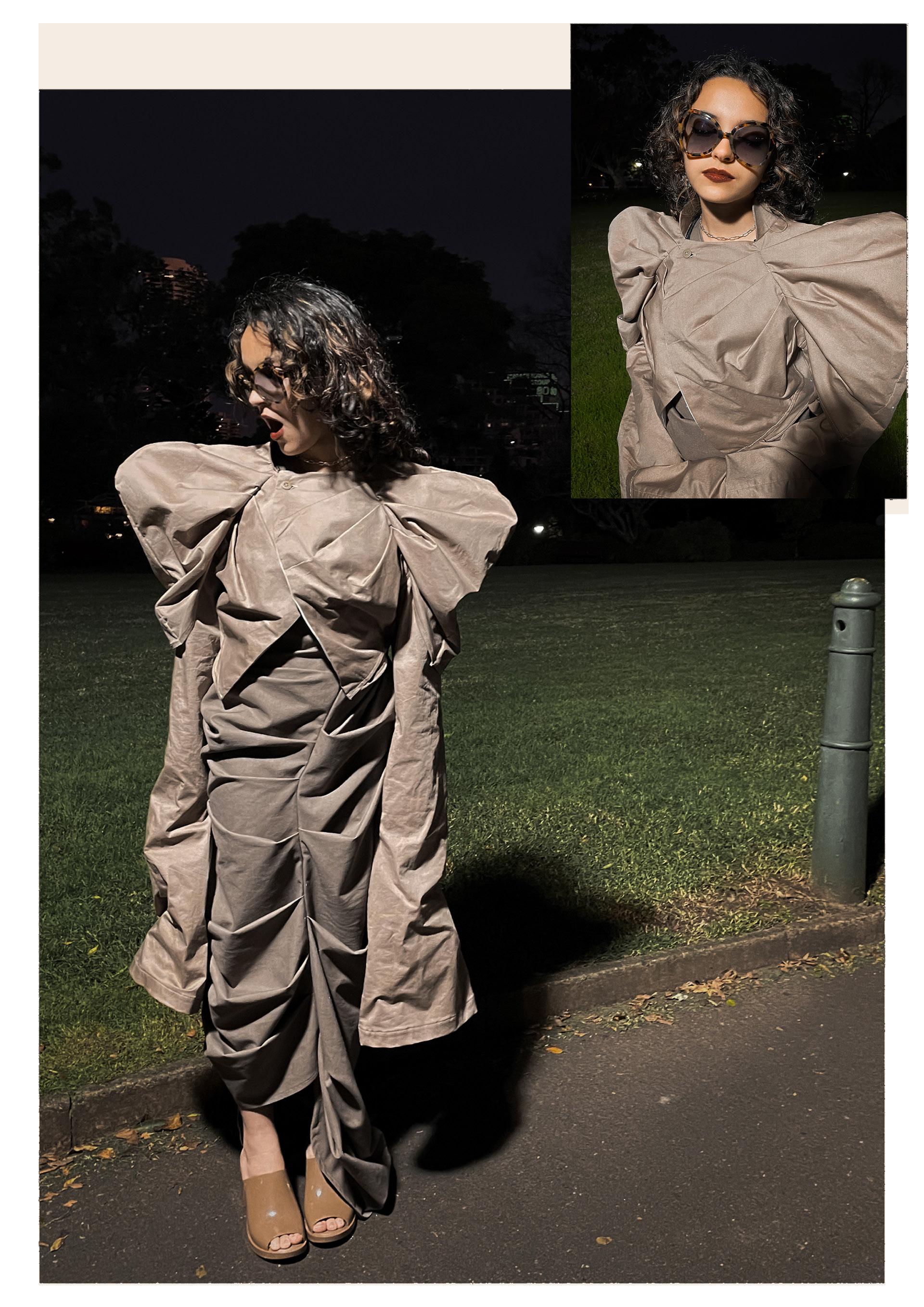
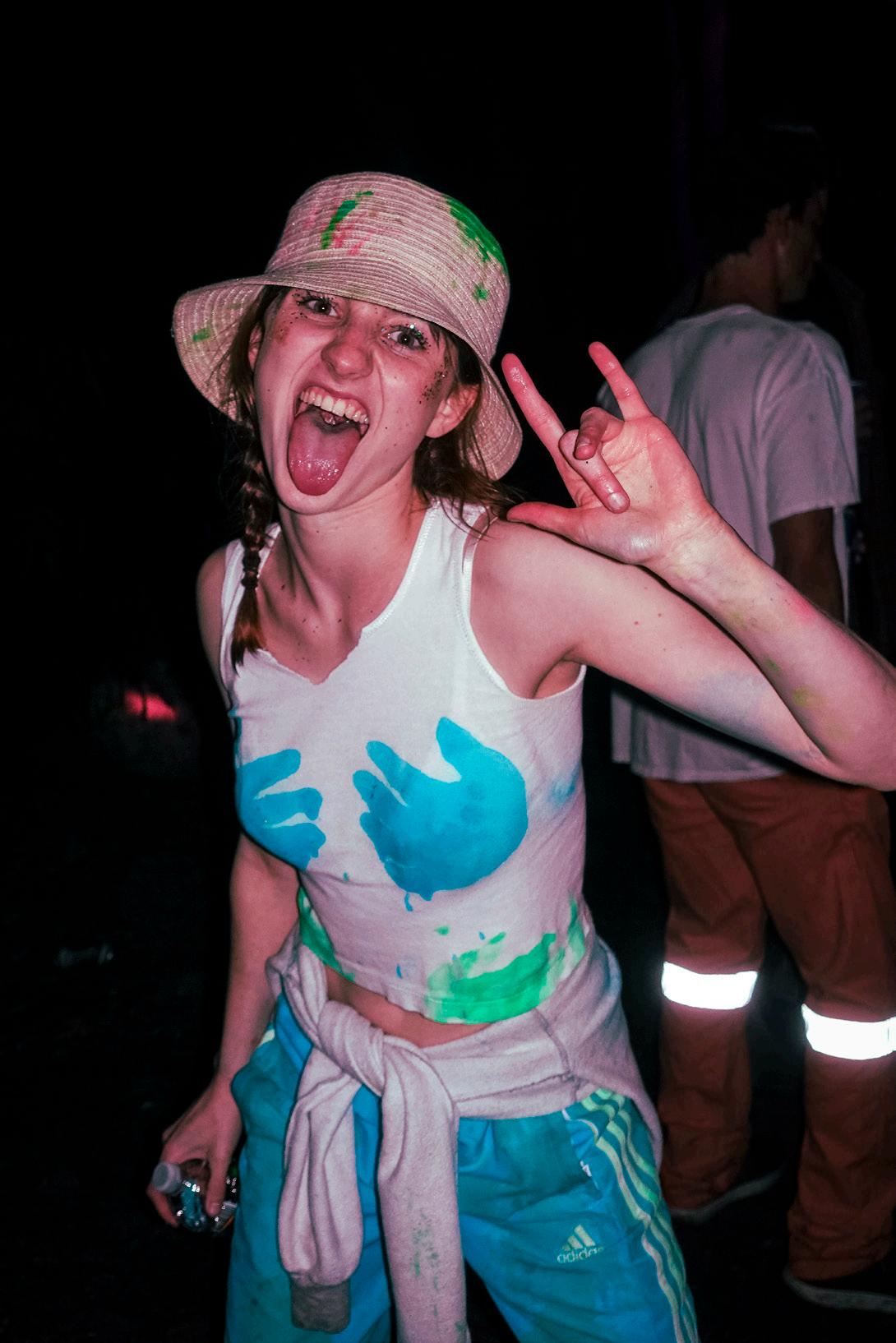

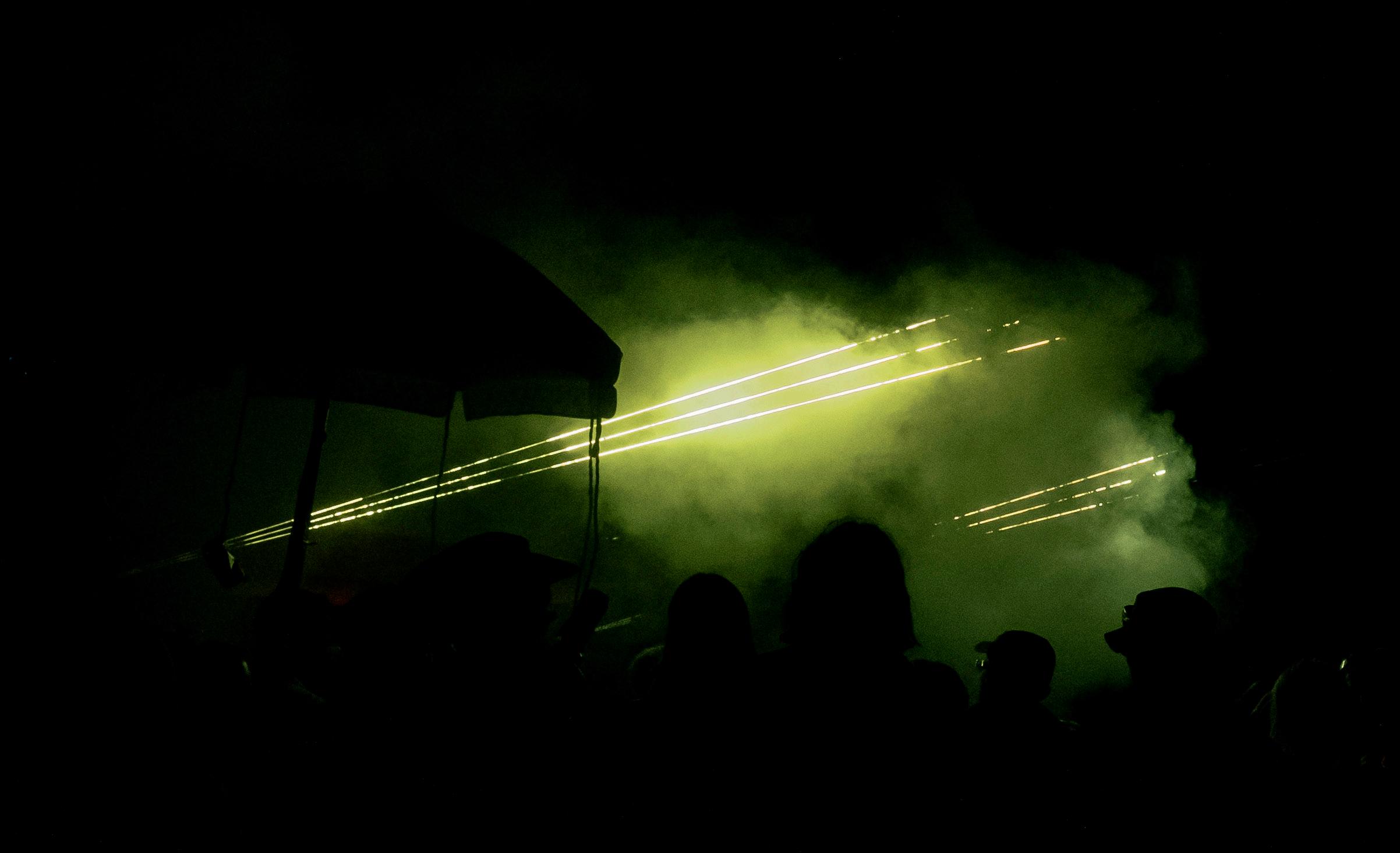


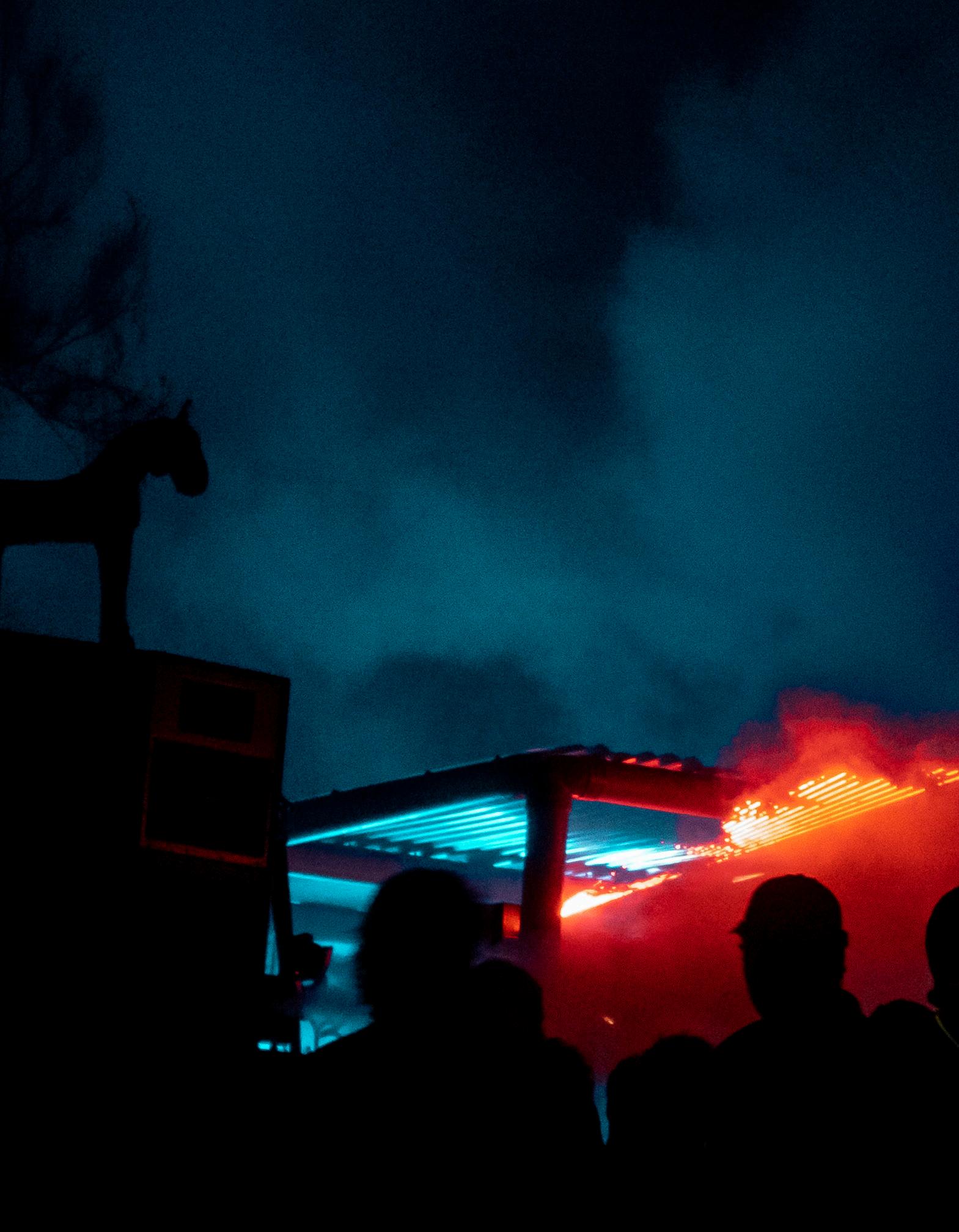

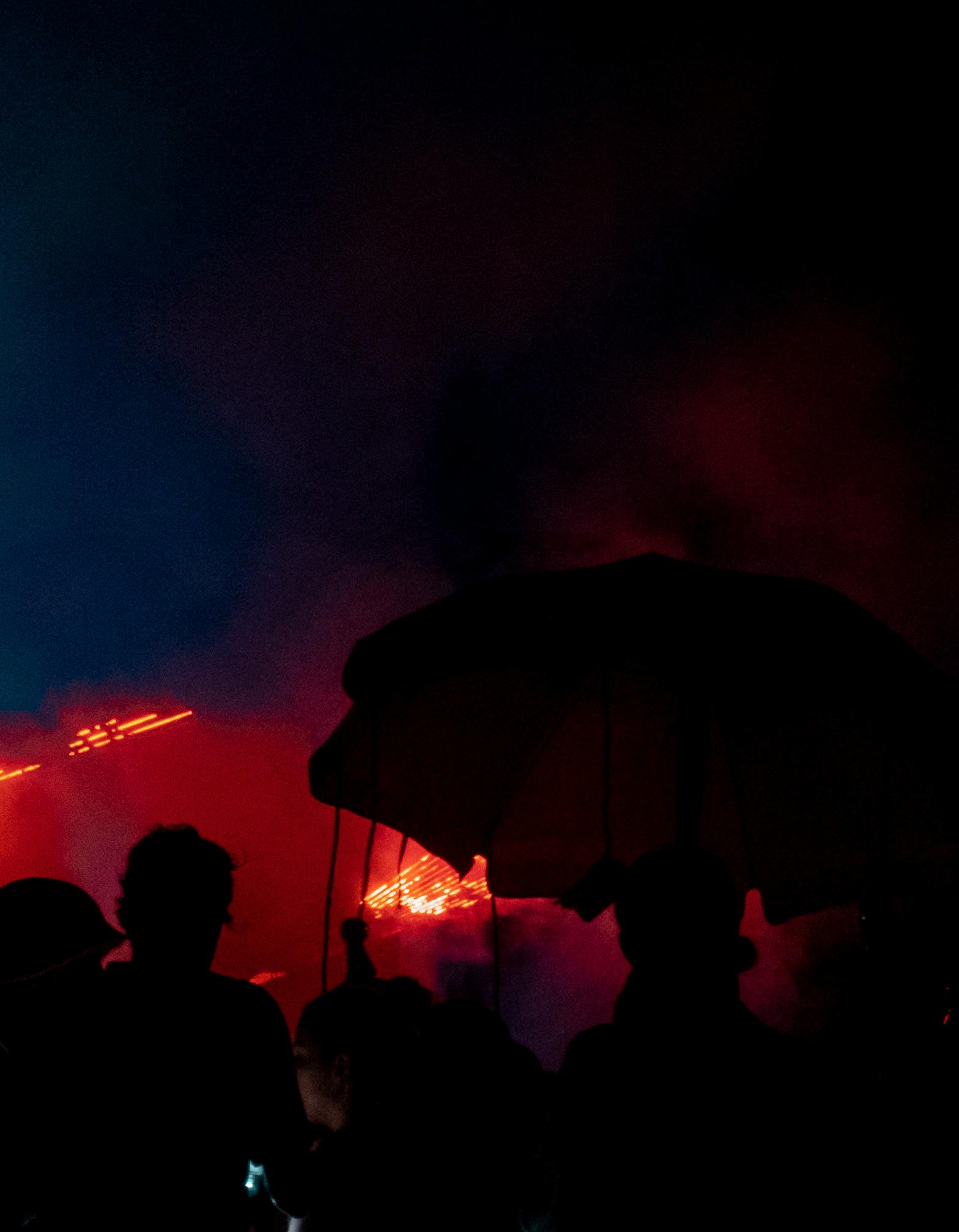

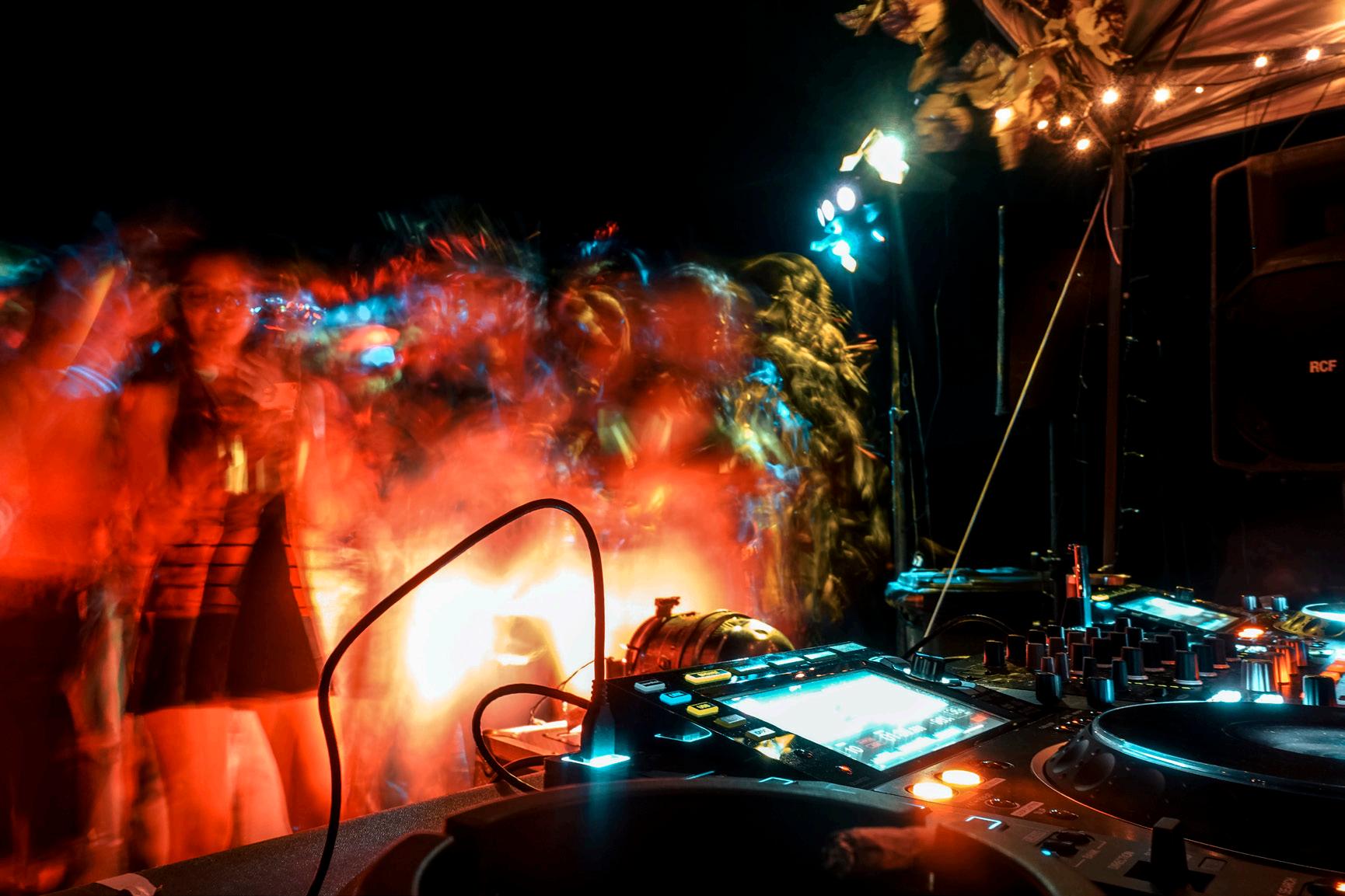
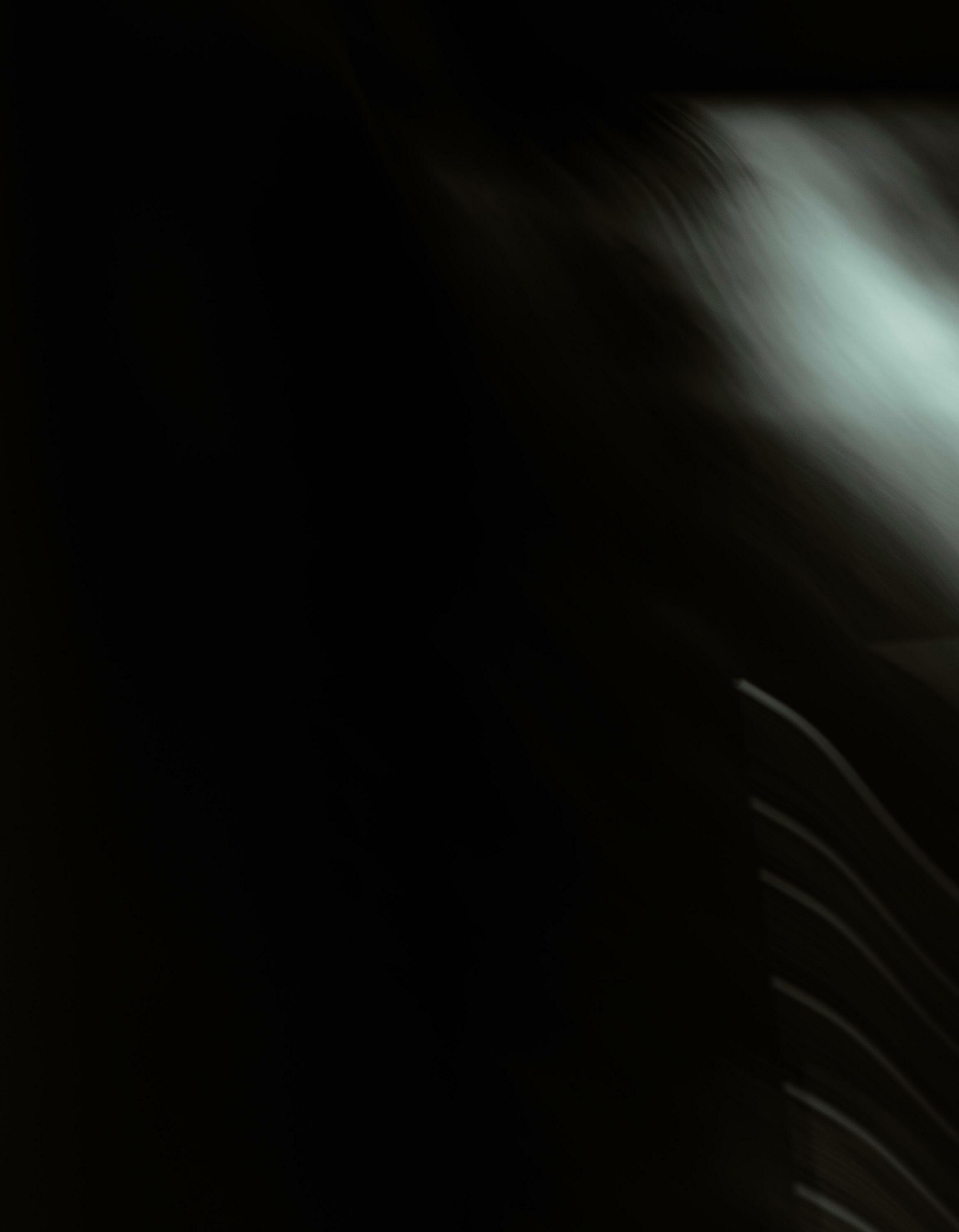
when the bleeding started, she was twelve white sheets stained an odd sort of ruddy brown the girl stared for a few minutes making out the shape of a rabbit in the blotches


she gingerly reached beneath her nightie until she could feel it the blood seeping underneath her fingernails it was dark red and thin, like paint water she let it run down her skin where it pooled in her soft palm a perverse curiosity overcame her she touched the rouge to her lips it was metallic and warm and marked each cheek with the same finger rubbing the blood into her skin with a child’s hands in the mirror, she saw the image of her mother dark lips and blushing cheeks beautiful she whispered she pressed her lips to the glass the red blotch distorting her mirrored image blood dripping down her thighs





we grow into the image of our mothers if we aren’t careful we slice ourselves open and pour out our love just to feel empty but we wanted this for it


The blinds shielding my bedroom window have been bent backwards by the paws of my cat, Who chats with the magpies that hop on the other side of the glass.
Every morning I wake to the Sun blinding me with its brilliance.
Today is no exception. Except it’s not the Sun. Yet it’s just as bright. The accretion disk of a black hole.

My stomach immediately turns,
As if its contents are being drawn to the singularity itself.
The consuming image of the black hole plasters itself to the back of my eyelids.
In a haze of spirals and lights, I somehow return to sleep.
Saturn shrinks into a glass marble, Warp drives to Arrakis and veiled figures humming, Asteroid impacts foretold but unavoidable, A giant jellyfish who speaks in sonar shocks me awake. I lie, Eyes closed, Feeling myself being pulled again.
When I startle awake again a few hours later, My phone screen flashes: 07:00.
I push my head out of my comforter cave.
The black hole has evaporated back into the Sun, And my cat scratches at my door for breakfast.
you’ve ended up at the local chinese place for dinner.
you know that you won’t know how to find your way back here tomorrow — when you realise that the fried rice is actually really good (they don’t use that horrible diced ham, it’s got real pork).
the server there, she doesn’t have a face. the air is balmy and the tables are set for people who will never arrive. you’re leaning on a chair and you’re watching her move deftly, from checking the register to organising the plastic flowers. some part of your subconscious notices the rigidity of her movements. you’ve been here before, you’re sure she’s changed. you just don’t know what has taken her place.
you notice a basket of fortune cookies in front of the till. you meet the not-servers not-eyes and she beckons you to take one, while you wait. you feel your memory of what her eyes looked like slough away from your consciousness like rotten meat as you reach your hand into the basket.
it’s an odd thing, fate and fortune telling. part of it feels natural; a human behaviour that fills the void of purpose that lives inside of us all. you’ve never felt connected to the idea of having a purpose, you exist to exist in places like this. you are, at your foundations, liminal.
you are an adjoining piece of furniture, a stepping stone. and so, as you peel away the wrapper, crack open the sweet cookie, and pull out the slip of paper that is its nectar, you find comfort in the blood red, shifting, bold lettering that reads: “You are already dead”.


You said, that filthy touch of your predator made you blackout for a while.
I could relate to you. I had believed, being a fighter, you would act differently. I had assumed, being a woman warrior, you would battle him fiercely. I never knew predators’ approaches had similar impacts on victims
You reminded me of my own paralysed position I was once in your shoes
I thought my predator snatched away my purity With his unwanted touch and forced intimacies. For a while, I became vapour Only after, I regained my consciousness I realised I was right there, unadulterated and unshaken, Like a flame. My purity was spotless.

At that moment, I understood For generations, we were taught wrongly that we lose our value when penetrated. We lose our dignity when our body is violated But, now I know
BY PRAGYA PANERUFor the first time, I felt unburdened from my body. The same day, I owned my body.
That is when I declared that predators have no right to glare without my consent
Even if I wear invisible tattoos of suppression and op pression
I chose to disown them
And decide not to be a statue when attacked. Then only I felt my claws and mighty limbs along with my curves
And a voice that could tremble the world Like Kali, I felt, I could perform an annihilation dance to make their lives seem merely a chance.
Now, when those predators mock I snarl at them and make them choke. When violated, I gnaw them like my prey and slay them like I say. Beware, no more intimidation! No more botheration!
For many years, 7-Eleven, the service and convenience store franchise, has been well-known for its reasonably priced ‘Slurpee’ line. Over the weekend, the Inflation Council of Austra lia (ICA) has demanded that the frozen drink be sold at $1.12, offsetting 7-Eleven’s iconic $1 price tag for a large-sized cup.


During the ICA judgement proceedings, which were nationally televised this morning, 7-Eleven’s CEO, Joseph DePinto, was sum moned and ordered to change the company’s Slurpee prices. While DePinto made a strong case for the price being one of the most successful loss leaders in the industry, the ICA deemed his nonco operation unjustified. Following his sentencing, the official ICA You Tube channel’s uncensored live stream showed DePinto being sub merged into a tank of raspberry Slurpee until he stopped breathing.
Richard E. Allison Jr., CEO of Domino’s Pizza, is set to face his tri al next week after ignoring cautions that a $5 price-tag for value range pizzas is a criminal offence in today’s financial climate.
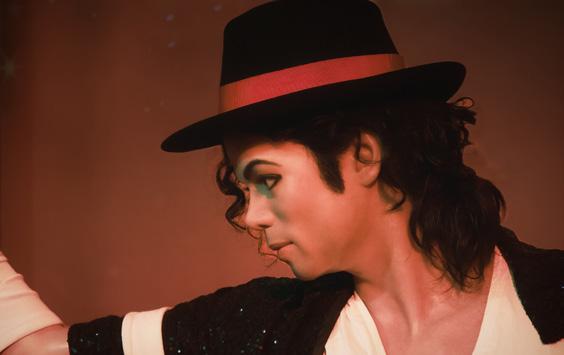
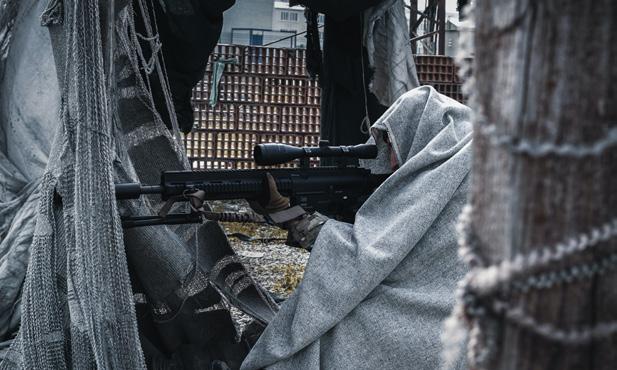
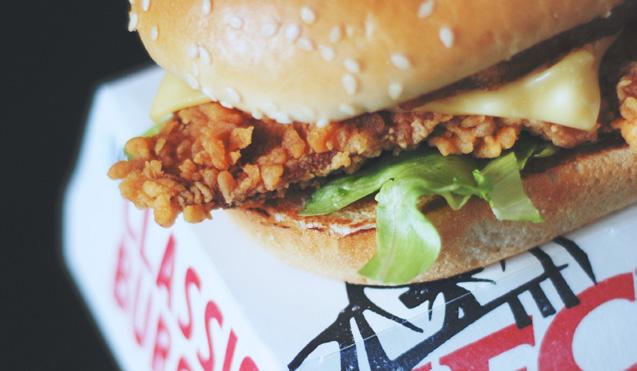






Andy is a third-year Media Arts & Production and Cre ative Intelligence & Innovation student. He loves to make all sorts of things and is continuously winging his way through life. You can find him on Instagram @andaelee.
Amelia is a creative from Sydney who is a lover of birds, colourful clothing, and graphic design. They love to eat to matoes whole, similar to the way people eat apples. They also love to offer their criticism about what they think is good visual design on literally everything they walk past. You can find them on Instagram @guiffregraphics.
Ashley is a third-year Journalism and Law student. She spends way too much time on Pinterest and gives unsolicited film recommendations every chance she gets. You can find her on Instagram @ashleys.xo.
Aston is a second-year Media Arts & Production and Jour nalism student. He also studies Spanish and hopes to go on exchange to Chile. You can find him on Instagram @astonr brown.
Art by Siena ZadroClara is a third-year Digital & Social Media and Creative Intelligence & In novation student. She loves painting her nails and laughing. You can find her on Instagram @claraatkin.
Damien is a third-year Strategic Commu nication student. He enjoys hoarding lan yards and never using them. You can find him on Instagram @demyunn
Montserrat Isabella Brown Montserrat is a third-year Design (Photography)
student. She is a photographic artist based in Sydney who has a love for bright punchy images and photographing the body. She adores warm tones and the sunshine, and constantly aims to create images that impact. You can find her on Instagram @ montserratisabellaphoto.
Eleanor is a first-year Journalism and Writ ing & Publishing student. Last year, she won a poetry prize for the Blue Fringe Art & Liter ature Festival. You can find her on Instagram @eleanormaree.
Pragya Paneru
Pragya is a final year Masters by Research student. She is doing research on the gender context in year one textbook images and students’ responses. She likes to write poems, fiction, and critical articles.
Giovanna is a second-year Fashion and Textiles student. She is interested in unconventional movements and counterculture. You can find her on Instagram @giovannadpontes.
Rosa Gharibi
Rosa is a third-year Pre-Medicine student. She made her authorial debut in 2016 when her embarrassing story was featured in Girlfriend Magazine’s May issue. When she’s not stressing about anti-vaxxers, she enjoys streaming Lana Del Rey’s discography to maintain her position within the top 0.001% of her listeners. You can find her on Instagram @rxosa.
Heidi is a second-year Visual Communication student. She was born in Finland and has lived in three different continents. You can find her on Ins tagram @hakaladesigns.
Joseph Hathaway-Wilson
Joseph is a second-year Journalism, Writing & Pub lishing, and Creative Intelligence & Innovation stu dent. Last night he had a dream that Dave Grohl won the Australian Federal Election. You can find him on Instagram @joehwilson.
Sandy Yi Sandy is a first-year Media Arts & Production and Interna tional Studies student. She loves cats and drawing, and she is trying to get into the Bachelor of Animation Production next year. You can find her on Instagram @y.uublu.
Zeynep Nevzat Zeynep is a third-year Engineering (Honours) and Diploma of Professional Engineering Practice in Software student. He is passionate about creative arts, science, and theology, and loves to search for the intersections between these areas of interest whenever possible. He also has three cats who make wonderful daydreaming companions. You can find him on Instagram @zeynu__.


Hey, It’s Anna.




I have been serving as your president for nearly a year now, and I am so so proud of all the work the UTSSA has done during this time. From opening the Food Pantry to organising Rad Ed week and supporting collectives in strikes, education, and community events. It’s truly been a great year that’s still going strong.
If you have not yet checked out the BlueBird Pantry, I thoroughly suggest you pop down to level 3A of Building 2 and do so. It’s best to do this from 12 – 3 p.m. on a Tuesday, Wednesday or Thursday so that you catch it when it’s open. The pantry provides students with free essentials like canned foods, hygiene items, rice, and of course, (on the odd occasion) whole watermelons. We thank everyone for their patience with us. This pro gram is still in its infancy, so there have been a few technical issues to overcome; however, it is getting better by the day. It has been awesome to have the volunteer support of students completing the SOUL award. If you want to get involved volunteering at the pantry, please fill out the form below:
The UTS Students Association will hold Rad Ed week from October 24 – 28. You heard that right — a whole week of collective-run radical educational events, including Life Drawing with the Women’s Collective, workshops on navigating welfare services, and panels on climate change in Western Sydney. Stay tuned on the UTSSA FB page for more information in the coming weeks.
With the UTSSA elections on our doorstep, I encourage you all to actively participate in the democracy of this union and take the time to consider your options and vote. I know as well as you that student politics can seem frustrating and pointless. However, voting for students whose values align with your own and who are campaigning to change your university for the bet ter has a big impact. I hope to see you at the polling booth from October 18 – 20.





Thanks for a great year.

 Anna Thieben
Anna Thieben
The Ethnocultural Collective have been working tire lessly in efforts to materialise the requests set out by our Safe Space Campaign. In the first semester of the year, discussions with the then Vice-Chancellor, Shirley Alexander, were not fruitful. After an exten sive amount of research and justification was pre sented, Alexander’s response implied that there was no physical room on campus for such a space and that UTS already had a plethora of anti-racism initiatives existent.
As a collective, we find these implications dismis sive; the anti-racism initiatives that currently exist (which are mainly marketing campaigns and the odd ed ucational seminar) offer no measurable indication on their impacts on the plight against racism on campus. This is not to say these initiatives and campaigns are not important, but that without material action or resources for BIPOC students on campus, the impact of these initiatives and events will be limited. We have been informed that a physical space on campus will no longer be considered.








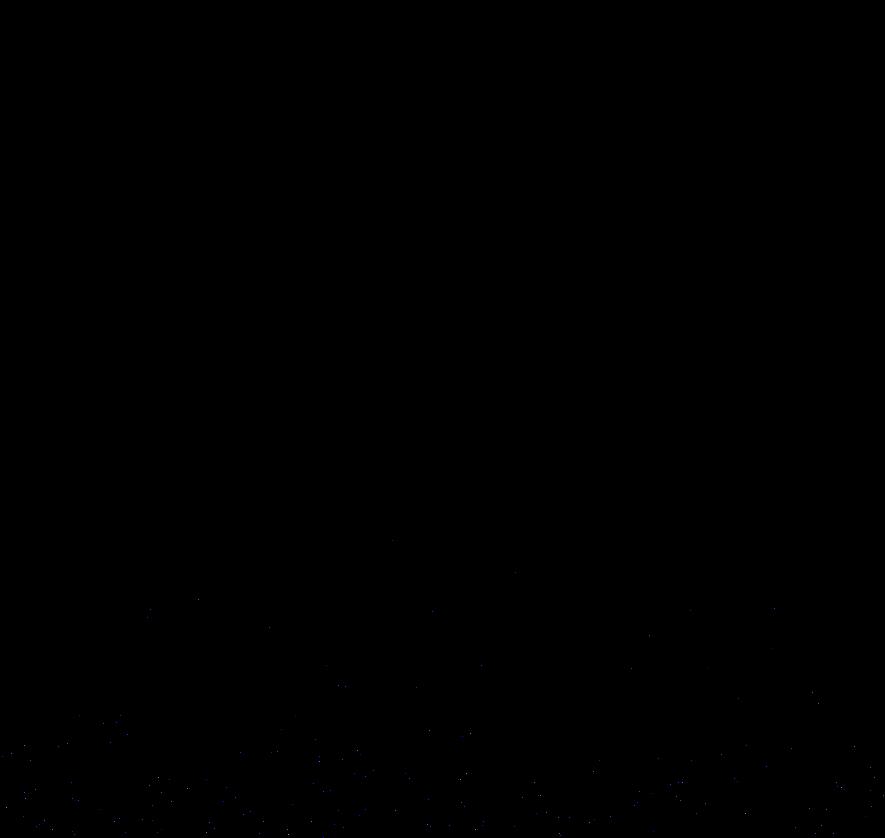
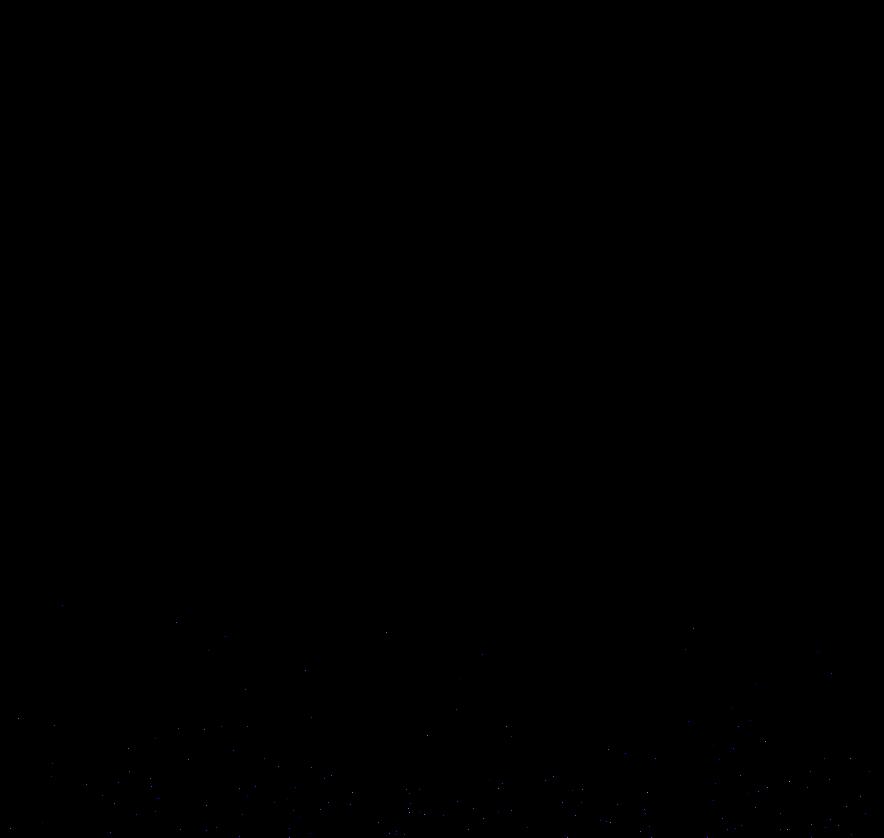
As disheartening as this is, we are aware that the Safe Space Campaign has one other demand that the universi ty seemed more willing to support; the introduction of an effective grievance system on campus. This system would allow for students and staff to be able to file complaints about experiences of racism and collate data that would allow us to properly understand racism on campus. It is with frustration, but not defeat, that we have decided as a collective to turn our efforts to seeing the establishment of such a system at UTS. We have been working alongside the Centre of Social Jus tice and Inclusion to start negotiations as to how to introduce an effective grievance system and surveys to help better the campus’ understanding of this issue.
Other initiatives that the Ethnocultural Collective have been a part of in the past few months include Deep Dive; a series of videos aimed at highlighting experi ences of racism amongst young people, discussion with UTS Multicultural Women’s Network regarding collabo rative events, and discussions with broader cultural clubs and Activate regarding collaboration. As the year progresses, we’ve had an influx of new members and are excited to continue to work in this space together.
The Disabilities Collective has been very active in the past few months, and we are proud of what we have been able to achieve this year so far. We have been in touch with Nikhil, a Disabled student from the Uni versity of Western Sydney who is working on a project called Access Maps. This project aims to create a ‘Google Maps of Accessibility’, where people can make submissions about various accessibility features of the world around them, so other users can more easily navigate the often inaccessible world. Nikhil came to one of our recent meetings to discuss this project with the collective, and we plan to work with him in mapping out the accessibility of our campus in the near future. We have also been in touch with a UTS student who works for an organisation that specialises in helping Disabled people get access to and navigate the NDIS. They ran a workshop for our collective that gave information, tips, and tricks on dealing with the NDIS system, which many students found very helpful.



One of our long-term goals this year has been to work on a campaign to address some of the ableism and inac cessibility experienced by students at UTS.
The first part of this campaign involved reaching out to students about their main inaccessibility chal lenges. We set up an anonymous form so that students can report any problems they face, ranging from physical barriers on campus, difficulties navigating the Accessibility service, and problems dealing with ableist teachers and classmates. If you would like to submit anything for us to consider for our campaign, feel free to fill in our form: https://forms. gle/ M1QowFCVVC9BQiWBA.
The Disabilities Collective has also been active in preparing a workshop for Rad Ed Week, which the Stu dents Association has been working hard on running this year. We plan to have a workshop about Radical Disabil ity Justice, where we discuss ways in which it differs from mainstream disability activism. As always, if any students are interested in getting involved with the Disabilities Collective, please email accessibility@ utsstudentsassociation.org and we will get in touch with how to come along to meetings and events!
Education activism is heating up at UTS! From partici pating in the recent strikes at USYD to protesting the Australian Financial Review’s Higher Education summit (in which students were met with violence from po lice), the UTS EAG has been busy. In exciting news, the UTS NTEU unanimously voted to take industrial action on 21 September. This will be a 2-hour stop meeting between 9 a.m – 11 a.m, where striking staff will be rallying outside of UTS tower to demand better working conditions.
As students, it is important we stand in solidarity with our staff, as the conditions they work in dictate our quality of learning (that we are paying $1000s for). We should support all future strikes they take — don’t go to class on the strike day and be at the picket lines to support those rallying! The EAG will continue campaigning with staff to mobilise student support. We are in this together in the fight against management! If you’re interested in getting involved, our socials are:











FB: UTS Education Action Group IG: @uts.ed.action.group

This month has been both hectic and exciting, with the NTEU unanimously voting to take industrial action on 21 September from 9 – 11 a.m in the form of a stop work meeting. This action has been called in response to the lack of progress made in bargaining efforts between the NTEU and UTS management. UTS has refused to meet demands on fair pay in line with inflation, reasonable workloads with no uncompensated overtime, and more job stability for staff, with UTS having a casualisation rate of 70%.

The terms set within this enterprise bargaining peri od will be staff pay and work conditions for the next four years. Due to harsh strike laws, workers can only strike and demand better conditions within an enter prise bargaining period. This makes student support so vital. While staff risk their pay and positions to strike, we’ve got to show out. By the time my report is published, the action will have passed, hopefully successfully shutting down the university for a few hours. There will be more strike actions throughout the year leading into 2023. Show your tutors solidari ty by not turning up to uni or coming through on the pickets.
Melissa SukkariehSince my last report it’s been incredibly busy with a range of continuous and important initiatives/un dertakings that have developed to produce results for our union and students but I’m so proud of the work we continue to do.
Firstly, UTS is drafting a standalone Sexual Violence and Harassment Prevention and Response policy that will be applied university wide, going through all the official channels. Described as:
‘Enabling UTS to learn from its existing approach to inform improvements and changes to the way in which we work to prevent sexual violence and ha rassment and respond to incidents of sexual vio lence and harassment.’
Part of the new actions for implementation have taken recommendations directly from our contributions to the SPA, such as having a central point of contact, ex panding cultural and linguistic services and creating a new reporting form for sexual harassment/assault as the old one was shockingly insufficient and outdated. It’s ultimately so rewarding to see our efforts and representative voice directly affecting outcomes for UTS students!!
At the time of writing this report, we have staff strikes coming up this week where (as I’m sure every student in this meeting should know) not to come to class Wednesday 9-11am and stand in solidarity with staff and support them in their bargaining agreements for better working conditions. Handing out flyers to students has shown me the level of support that stu dents just generally have for staff as they fight for a better teaching environment, as one of the biggest is sues has just been the lack of awareness from students which we have been trying to mitigate with consistent on-the ground building and awareness efforts.
We also have the first Ethnocultural conference be ing hosted after a couple of covid years. It’s being hosted by NUS and UNSW with our very own Ethno col lective and council members holding workshops. If you aren’t already, I encourage everyone to attend this week and look forward to bringing a strong UTS contin gent. Should be a great couple of days where we discuss how we bring a diverse array of issues experienced by ethnically diverse students to the front of people’s minds, and what the student union movement can do mov ing forward to continue building towards meaningful change.
Finally, RadEd week organising is continuing, which will hopefully be super successful and filled with a lot of union education, collective events and work shops and our very own funded party at the end.







• The Food Pantry is going great with many volunteers willing to help out and due to its popularity, we’ve created an established system of being able to take 5 items at a time has helped in maintain ing stock.
• There’s been a lot of logistical organising with Phillip (RO) as this is our first in person elec tion in a couple of years. This is also why we are amending our elections regulations to include building 2 (which didn’t exist last in person elec tions) and remove building 5 (which sadly is no longer available).
• Finally, I am personally very keen to be paying our International, Postgrad, Disability, Ethno, Queer and Enviro Officers. This is something we discussed at Handover at the very beginning of the year and even with all our funding negations ups and downs, glad to see we’re made this happen (speaking prematurely aha)!!





 Sabrine Yassine
Sabrine Yassine

Nominations closed at 2.00pm on Tuesday 20 September and the following Schedule details the nominations received and the current status of each nomination. Final checking is underway and there may be further changes.
Following the nomination schedule is presented the information supplied by the candidates and their photos (where supplied).
Voting for the contested positions will be held on Tuesday 18 October, Wednesday 19 October and Thursday 20 October 2022.
Polling Places will open from 10.30am to 1.30pm, and from 3.30pm to 6.30pm
Polling Places are located across the campus at the fol lowing locations Building 1, level 3 The Concourse Building 2, level 4 Building 6, level 4 Building 10, level 2 Building 11, level 2
The Campaigning Period begins at 5.00pm Monday 3 October. and continues until the close of voting. Students must not campaign outside this period.
Applications have closed, and no applications were received
Philip Binns Returning Officer 20 September 2022
returning.officer@ozemail.com.au
President
General Secretary
General Secretary
Assistant General Secretary
Assistant General Secretary Education Officer Education Officer
Welfare Officer Welfare Officer
Indigenous Students’ Officer
Postgraduate Officer
Women’s Officer
Women’s Officer
Women’s Officer
Women’s Officer
Women’s Officer
International Student’ Officer
14 Student Representative Councillors
14 Student Representative Councillors
14 Student Representative Councillors
14 Student Representative Councillors
14 Student Representative Councillors
14 Student Representative Councillors
14 Student Representative Councillors
14 Student Representative Councillors
14 Student Representative Councillors
14 Student Representative Councillors
14 Student Representative Councillors
14 Student Representative Councillors
14 Student Representative Councillors
14 Student Representative Councillors
14 Student Representative Councillors
14 Student Representative Councillors
14 Student Representative Councillors
14 Student Representative Councillors
14 Student Representative Councillors
14 Student Representative Councillors
14 Student Representative Councillors
14 Student Representative Councillors
14 Student Representative Councillors
14 Student Representative Councillors
Nour AL HAMMOURI
Keegan LIM Will SIMMONS
Zebadiah CRUICKSHANK
Aaryan RAMESH
Anna THIEBEN
Aidan O’ROURKE
Mia CAMPBELL
Sai MUTHUKUMAR Bailey RILEY
Laura CURRIE
Aylin CIHAN Tiana PLYWASKI Khushi DAKSHIN Zakiah TAHIR Amelia WILSON-WILLIAMS Joy XU
Elected Unopposed Accepted Accepted Accepted Accepted
Elected Unopposed Withdrawn Accepted
Accepted
FIREUP FIREUP FIREUP FIREUP FIREUP FIREUP FIREUP FIREUP FIREUP FIREUP FIREUP FIREUP FIREUP FIREUP
Left Action Left Action Left Action
Left Action REVIVE REVIVE REVIVE REVIVE REVIVE REVIVE
Jacqui BODILL Saihej BHANGU Mariam YASSINE Harry RYAN
Bridie O’KELLY Paniora NUKUNUKU Rose MORES
Rufus DADD-DAIGLE Jay BEATTY
Aylin CIHAN
Adam LEVETT
Stephanie KAYE
Sandra YOUSSIF Sabrine YASSINE
Joseph NAFFAH Jean-Paul YEGENIAN Alec HENDERSON Mia CAMPBELL
Sara CHATURVEDI Georgia POND Boris TAM Areejz SLAMANG Sophie SERAFIM
Jane PROSSER
Elected Unopposed Elected Unopposed Accepted Accepted Accepted Accepted Accepted Elected Unopposed Accepted Accepted Accepted Accepted Accepted Accepted Accepted Accepted Accepted Accepted Accepted Accepted Accepted Accepted Accepted Accepted Accepted Accepted Accepted Accepted Accepted Accepted Accepted Accepted
Student
Student
Student
Team
Team
Editorial Team
Editorial Team
Editorial Team
Team
Editorial Team
Editorial Team
First Students
Students
Students
FIREUP
FIREUP FIREUP FIREUP
First Students First Students First Students First Students First Students First Left Action
Action Left Action Left Action REVIVE
REVIVE
REVIVE
VERTI-NOT-GONE
VERTI-NOT-GONE VERTI-NOT-GONE VERTI-NOT-GONE VERTI-NOT-GONE VERTI-NOT-GONE
VERTI-NOT-GONE VERTI-NOT-GONE VERTI-NOT-GONE VERTI-NOT-GONE
VERTI-NOT-GONE
VERTI-NOT-GONE
Tiana PLYWASKI
Lauren COOLEY
Moira CRUZ
Nikhil PRASAD
Cal MCKINLEY
Adrian LOZANCIC
Ali SOBH
Zakiah TAHIR
Keegan LIM
Rodman DATHAM Aaryan RAMESH
Sai MUTHUKUMAR
Talha RAHMAN
Amelia WILSON-WILLIAMS Bailey RILEY
Sabrine Yassine Aidan O’Rourke Adam Levett
Jacob Ayres Will Simmons Melodie Grafton Adrian Lozancic Ali Sobh Zakiah Tahir Keegan LIM Rodman Datham Aaryan Ramesh
Mia Campbell Alec Henderson Harry Ryan Aylin Cihan
Melissa Sukkarieh
Holly Hayne
Anna Thieben
Mackenzie Baran Eshna Gupta
Sara Chaturvedi
Joseph Hathaway-Wilson
Siena ZADRO
Mary MORRISH
Yvonne HONG
Claire MATTHEWS
Fiona WANG
Arshmah JAMAL
Bronte SKINNER
Gokce CALISKAN Angelique BIRRELL
Axel CONNELL
Sapphire GOLDBERG
Accepted
Accepted
Accepted
Accepted
Accepted
Accepted
Accepted
Accepted
Accepted
Accepted
Accepted
Accepted
Accepted
Accepted Accepted Accepted Accepted Accepted Accepted Accepted Accepted Accepted Accepted Accepted Accepted Accepted Accepted Accepted Accepted Accepted Accepted Accepted Accepted Accepted Accepted Accepted
Accepted Elected Unopposed Elected Unopposed Elected Unopposed Elected Unopposed Elected Unopposed Elected Unopposed Elected Unopposed Elected Unopposed Elected Unopposed Elected Unopposed Elected Unopposed
Elected Unopposed
Stop the games. #VoteLim and STUDENTS FIRST for real action.
I’m Keegan Lim, a business student running to be your General Secretary with Students First. These are my three principles:
REFORM: As a reform candidate, I will fight to change our src - that needs to do better.
COMMON SENSE: let’s focus on real solutions, not drama and photo shoots.
SUPPORTING YOU: - I will not protest or get in the way of your goals and aspirations. I’ll help you. Here’s my plan.
Your student union (the SRC) should campaign against cuts to courses, increasing costs and a university executive that is prioritising profits over their students.
But, as a business student, and a member of a diverse team that includes engineers and IT students, I know how import ant internships are to students.
Our SRC should not protest UTS working with business lead ers. You go to uni to find work. I support more engagement with corporations, firms and business leaders.
An SRC that encourages new opportunities (scholarships, in ternships, jobs) rather than protesting them is an SRC that puts Students First.
I will actively listen to the concerns of UTS Students through out my term if elected. I will fight for you and negotiate a better deal. It’s time students got something, not nothing.
The SRC should be relaying your concerns about recycled content, a broken student services centre and terrible exams/ feedback/lectures to management - in combination with ac tivism. Passive pressure, negotiation and teamwork works. Hostile arguing does not.
Left, right, up, down - students don’t care. Let’s focus on issues that matter to UTS students today.
(C) Transparency. Now. (Who are you really voting for?
Transparency is key to holding our university, and our student representatives accountable.
1. Hold the Factions Accountable. Inform the Students. Factions and political parties exert unfair influence in SRC’s across the country. The actions of these factions and political groups and movements impact student life. You deserve to know who you are voting for, and where their loyalties truly lie. Candidates and representatives should declare political affiliation, and I’ll do my best to make that happen with Stu dents First.
2. Know where your money(SSAF) is going!
Information about where your money is being spent by the SRC should be displayed on the website, with regular updates. It’s your money, not student politicians’.
Left, right, up, down - students don’t care. Let’s focus on is sues that matter to UTS students today.
[Candidate Transparency:]
Keegan Lim is a member of the Australian Democrats

My name is Will Simmons, I am a third year Communications Political Science Student, and this year I am excited to be running to be your General Secretary of the UTS Stu dents’ Association.

My first three of University were marred with lockdowns, technical difficulties, university fee hikes, and mid-degree course restructuring. I’ve seen staff laid off and student conditions worsened. This is why I have spent these three years heavily in volved in the UTSSA. I’ve served on SRC, the UTSSA Fi nance and Policy Committees. Moreover, I’ve served as NSW Education Vice-President and UTS representative with the National Union of Students. I’ve dedicated my time at University to student welfare, representation, and activism.
I am driven by the urge to serve and protect our union. Over the last few years the UTSSA has been under threat. We’ve seen Management shrink our budget smaller and smaller – making it harder to be able to provide services like Blue Bird Brekkie and Night Owl Noodle. These services provide thousands of students a valuable benefit each semester. It is no surprise to anyone that being a student is tough, juggling studies, work, rent, and bills. This is why a free and accessible warm meal goes a long way no matter who you are. Pro tecting these services ought to be a high priority. I aim not only to secure more funding for these services, but to expand them throughout the week.
But these aren’t the only things on the chopping block. Our amazing student run magazine, Vertigo, which has been threatened by management over the past year, is forced to produce less issues, and run on a re duced budget. As the General Secretary is principally responsible for the maintenance of Vertigo, I will work tirelessly so that we can keep producing a high quality magazine that is able to report on student culture and highlight the creativity of our student body.
To ensure this, we need greater transparency and ac countability within the Students’ Association itself - as many students don’t get to see the invaluable work un dertaken nor have an opportunity to have their say. I will ensure that key policies and motions are made public on our Social Media and mailing list after ev ery meeting, that the minutes of the SRC are readily available and accessible, and all members of the SRC are held to a high level of professionalism.
UTS deserves a strong Student Union, one that will lis ten to all students, from post-graduates to internation al students, to first years. One that will fight for stu dents of all backgrounds and identities.
I am optimistic that 2023 will be a year of real change for Students and the UTSSA.
No statement provided.
Hi! I’m Aaryan Ramesh, a fourth-year mechatronics en gineering student hoping to be your SRC member and Assistant General Secretary for 2022! As an Assistant General Secretary, I will hold myself to a high standard ethically and professionally to ensure your and your fellow students’ interests are put forward to the board in the best manner. With my experience in represen tation positions, I will work to change the SRC for the better and promote greener initiatives, as well as back students in their aspirations.

I openly support greater initiatives that help students get jobs both during their studies and after they grad uate. It’s a tough world out there and UTS needs to do better at aiding students in finding real, meaningful work that they can learn from. With so many students struggling to find internships across industry, I’ll push for a higher degree of community and corporate en gagement to assist students in their search for jobs, and work with fellow members to collectively reach our goals, no matter whether they lean left or right.
Our university needs to be better at tackling real is sues, like the lack of transparency on SRC funding – its important that students and faculty know and can un derstand where and why money is being spent.
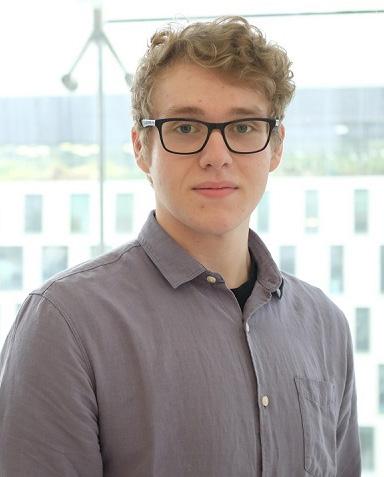
I am more than will ing to push for a more open atmo sphere so that stu dents can place their trust in the SRC to perform well. Any stu dents who aspire to have their voices heard will be proudly backed by myself.
Students have raised many issues that I’m sure all of us have heard about, such as the lack of constructive feedback received from assignments, reports, lab experiments. I’ll strive to push for a more student-fo cused learning environment where we all have the chance to properly learn from our mistakes. Throughout my four years at UTS, I’ve had the privilege of meeting and working with some fantastic and diverse people, and hence I believe fostering a learning atmosphere that promotes diversity is key, and having a diverse student such as myself will be a great aid to all students!
-=-Vote Aaryan for Assistant General Secretary and Students First-=Vote [1] Aaryan Ramesh for Assistant General Secretary
Hey, I’m Mia, a second-year student at UTS I am running for welfare officer with Fire Up!
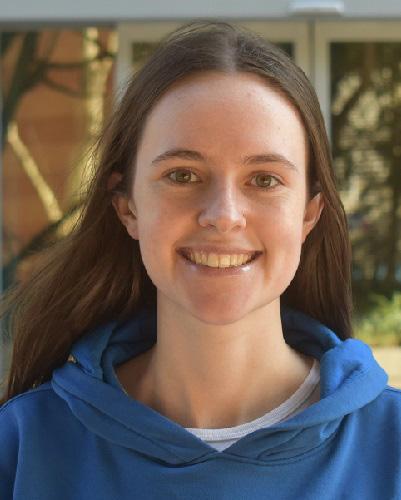
Being on the UTS SRC this year I’ve already been witness to the extraordinary feats and achievements of the Student’s Asso ciation however I aspire to use my voice and determination for positive change to improve and build on the services that the UTS welfare collective has to offer. Not only by inciting change but by bringing greater energy and vitality to the collective so that our services can continue to be en joyed by more students at UTS.
Fortunately, I’ve always been confident in voicing my beliefs, one of them being my active desire for positive development in student life as seen through my in volvement in social justice projects, collectives and law panels throughout my time at UTS. As welfare officer I aim to use this asset to provide visible and impactful change. Entering University though the era of Covid-19 has only heightened my awareness of student needs as well as the challenges that are associated with being a student online.
A valuable tool I beileve in is empathy – a must for any potential Welfare Officer. Empathy and a desire for positive change is what drives me to fight harder to empower the students of UTS, by supporting them in their needs. Students should be fully aware what ser vices, initiatives and facilities are available to them. I will be unwavering in my pursuit to increase UTS’s abil ity to cater to the needs of students who are looking for further support. Whether it be financial, economic or mental health related, this collective should be able to deliver services that the student-body can trust and rely on.
Actions speak louder than words and as a member of the executive team I fully intend to live by this state ment. I welcome any students who share my desire for positive change. UTS should be a place where individ uals from all walks of life can collectively enjoy the benefits of University while knowing their needs are supported and looked after by people – especially those who are willing to do everything they can to provide them with the best.
Under these values I aspire to build a strong and unified collective that supports students in their pursuit of higher education.
I am Sai Muthukumar, a Students First candidate, and nominated for the UTS Welfare Officer for 2023. As a current ActivateUTS wellbeing representative, I have a deep passion for student wellbeing and mental health. In my capacity as the Wellbeing Officer, I strive to achieve the following goals.
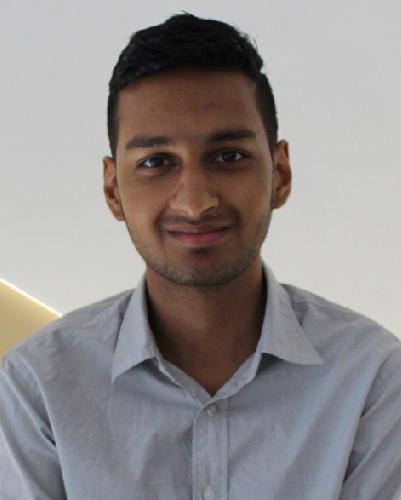
I strive to promote an increase in funding for the currently existing internal and external student wellbeing and mental health services at UTS. This will include UTS Counselling and Financial Assis tance Service. For external services linked to UTS, I will look to focus on Batyr and Headspace.
I aim to improve accessibility to student wellbeing ser vices by pushing to make UTS internal services open to offshore international students. For domestic and on-shore international students, I seek to expand the portfolio of services currently offered by UTS. This will include creating an internal Batyr and Headspace ser vice to accompany the existing internal services sur rounding counselling and financial support.
If positive student wellbeing and high quality support services is something you want to see at UTS, Vote [1] Sai Muthukumar for Welfare Officer.
-=-Vote Sai for Welfare and Students First-=-
Vote [1] Sai Muthukumar for Welfare Officer
[Candidate Transparency: Sai Muthukumar is an independent and is unaffiliated with any political movement.]
Hello UTS, my name is Aylin Cihan, and I am running for the 2023 Women’s Officer Position with the FIRE UP ticket for the UTS Students Association (UTSSA).
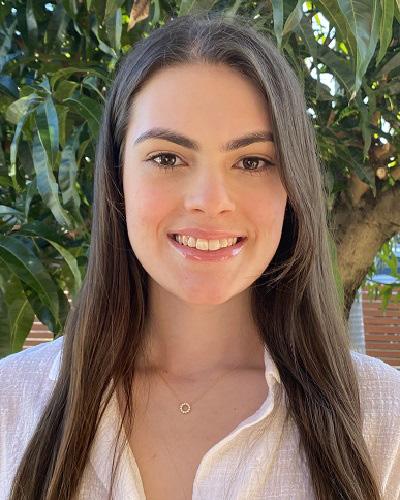
As a passionate and determined student, I am motivated to create a safer and more encourag ing space for women on campus. After witness ing the astonishing achievements of the previ ous UTSSA team, I am committed to reducing gender disparities and aim to provide greater services for women. It is my goal to strengthen the Women’s Collective by creating an energising and educational environment powered by women and for women!
Having been the Welfare Collective’s convenor at UTS throughout 2022, I am confident in expressing my be liefs to ensure that I achieve a positive improvement in student life at UTS. As your Women’s Officer, I will use my experience and passion as an asset to listen and learn from women who have faced injustices so that I can provide a meaningful change and create a greater UTS for women!
I will push to conduct regular awareness-raising pro grams on the everyday sexism women face and pro mote initiatives focusing on the progress and success of women at UTS.
Under my leadership, I will ensure that all women on campus will have a member of the UTSSA that they can trust and rely on by bringing their issues to the forefront of SRC.
Under these values, I hope to build a resilient and unified Women’s Collective that provides a safe and judgement-free zone to support and assist women by making myself available to discuss your concerns. As Women’s Officer, it will be a privilege to advocate and fight for all women at UTS and am excited by the op portunity to work with the staff and student represen tatives to achieve a better future for women. For those who share my passions for such a positive change at UTS please consider to:
Hi! I’m Tiana, I’m a third-year primary education student, and I’m proud to be running for Women’s Officer with REVIVE. In 2023 I hope to continue the incredible legacy of activists I’ve been hon oured to work with while being heavily involved in the Women’s Collective for the past two years, affirming their work on intersectionality and creating a safe on-campus community for gen der minorities. I want to build resources for con sent and sex education, as well as improve path ways for reporting and support for assault survivors. These pathways must be easily understood and ac cessed by all students - specifically, queer, Indigenous, disabled and international students who are at higher risk of sexual violence but have less access to support and education services.
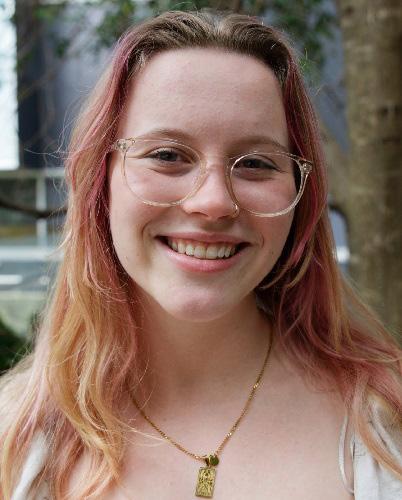
As Women’s Officer, I will continue REVIVE’s campaign for better consent education than fruit puns and innu endos. It has been made clear over the last year that Re spect.Now.Always’ performative consent initiatives will not be improved, despite the National Student Safety Survey making it clear that they are ineffective. Sexual assault should not be minimised or joked about, and I believe that UTS can do better. Additionally, the univer sity refuses to translate consent materials for interna tional students. Sexual assault on campus is most like ly to happen in the first month of university, so by the time incoming students have learned enough English to access UTS’s consent and sex education materials, it’s too late. Speaking English should not be a prereq uisite to basic support or respect from your university.
When sexual assault does occur, many survivors are unaware of UTS’s reporting or sup port services. These processes must be significantly more accessible, straightforward, and visible to students. Finding sup port and seeking justice after an assault shouldn’t be a wild goose chase.
Additionally, I believe that UTS should provide broad er sex education resources. With the majority of Aus tralian high schools providing subpar sex education, university students need supplementary education to engage in safe sexual practices. Sex education should address all communities and bodies - queer, trans, dis abled, Indigenous and international students deserve equitable resources and safety around sex. I will work towards ensuring widespread, comprehensive sex edu cation alongside leaders from the Queer, Disability, In digenous and International collectives.
I look forward to working with REVIVE to create a uni versity where students are informed, respected, and feel safe enough to engage with the thriving campus life we will rejuvenate in 2023.
The UTS Students Association is a great organisa tion for students to help other students. They are able to create opportunities for students, im prove student life and are passionate about the students. The Student’s Association has multiple initiatives which make uni life more enjoyable and rewarding. The Bluebird Pantry was my in troduction to the Students Association.
The initiative has helped many students and though I have not experienced this first hand, it im pacted me significantly. I started volunteering due to injustices happening in the world around us and want ed to be part of the change. In my time I have attend ed a homeless drive where we provide nutrition and necessities for everyone. This event reshaped my view and I could see the social impact of what we were do ing. I want to be able to contribute back to society and help those in need. I have also run a computer training course for refugee women. I created the course and the exercise done during the event. My leadership skills al lowed me to present the content in an easily under standable way for the women. I aspire to be an individ ual who other people are comfortable talking to and understand that I am reliable to create the change they need, just like I did for these women. The Student’s As sociation is able to help me highlight social injustices in uni and aid students in need.
Annually I manage and hold my community’s Clean Up Australia Day. Being a leader I am able to assist others who
want to help but don’t know how to or cannot individu ally. Bringing everyone together and creating a bonding experience for a team I can make relationships with many more like-minded people. I believe that social events such as volunteering or Society catch ups are an excellent way to bond with other people who have similar interests. My many hobbies and interests have let me meet so many new people and better my uni experience with people I can now reach out to for help and to talk to.
Though I am only in my first year I am very passionate about being involved in the uni lifestyle and am excit ed to be given the opportunity to join the Students As sociation and to help other students through this.
Hi! I’m Zakiah, running for SRC and hoping to be your Women’s Officer for 2022! I’m a law student in my second year. As your Women’s Officer, I aim to maintain and improve inclusivity for all. I’ve always been someone who promotes safety and support. This is both at university and online as well. We are entitled to seek support and I seek to implement better ways to do this. This support is extended to all students of any sexuality, race, religion and background. We all may face difficul ties while studying and it is important that we are given an opportunity to speak about it and receive help. The university must pursue action, rather than loosely promote change. An example is the consent matters module we have all viewed on UTS Canvas. We demand consistent consent training, more funding for counselling services and accessible methods of reporting.
In addition to this, the students have the duty to main tain the University honour and conduct rules. When students act contrary to this, the University should take proper action. This involves an inquest into the situation and proper help for the victims of the situ ation.
I also wish to promote a better learning environment for students of any race or background. We can expand this effort, by reinforcing learning communities that challenge students to interact with diverse peers, by supporting efforts like service learning that invite our students to engage with their communities, and by strengthening campus coordination among divisions so that we provide support for the whole student and not only the students on campus.
If we are to act on the arguments and evidence sup porting the value of making students active partici pants in their education, we need to understand that there is always room for improvement. This will always be supported by feedback from the students them selves. I am motivated by feedback and critique so I hope to hear from students and make improvements accordingly in order to help the students individually, rather than make minor improvements that are more general.
As your Women’s Officer, I would, as outlined above, make great efforts to listen and act on everyone’s in terests and wishes. I intend to make changes that are significant and constant.
Vote Zakiah for Womens Officer
Vote [1] Zakiah Tahir for Womens Officer
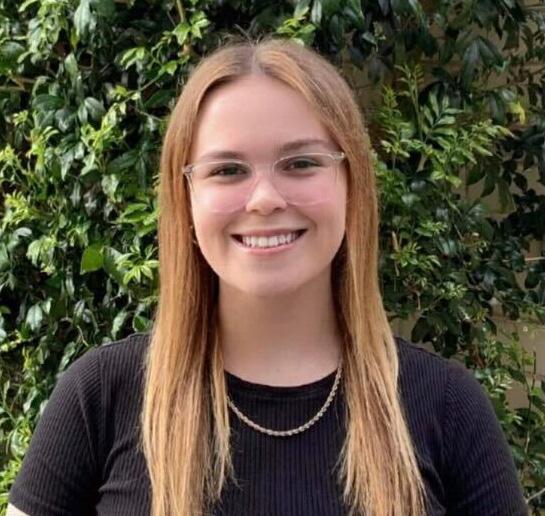
Hi! I’m Amelia and I wish to be your Wom*n’s Offi cer for 2023! I’m studying Law and International Studies. I transferred to UTS this year, from West ern Sydney University where I was involved with student clubs and societies in elected roles, in cluding President of the Western Sydney United Nations Society; General Officer for the Western Sydney Wom*n’s Collective; and Co-Competi tions/Marketing Director of the Western Sydney Law Students Association.
My vision is heavily based on diversity and inclusive ness, proactively seeking solutions as problems arise. Though not having been a student at UTS for long, I am well aware of the status of discussions surrounding sexual assault and harassment on campus. In 2021, 1151 UTS students completed the National Student Safety Survey. 14.3% of respondents stated that they had ex perienced sexual harassment since starting universi ty, and 7.2% within the previous year. Furthermore, 4% of respondents stated they experienced sexual assault since starting university, with 1.6% within the previous year.
Evidently the statistics reflected further issues in re porting and support channels, with 41% and 42.3% of broader Australian university students stating they knew little or nothing about how to complain about sexual harassment and assault, respectively. Data from these surveys affirmed that gender-diverse students are the most impacted by sexual assault and harass ment, with 13.7% and 22.4% of transgender and non-bi nary students admitting to having experienced sexual harassment since commencing university.
Enacting compulsory programs building upon the Consent Matters initiative throughout the university to effectively reduce these statistics is a matter of ur gency. Introducing accessible reporting, counselling and legal services in a variety of languages is essential for all students to receive justice. The dependence on online communication has increased, and so has on line sexual harassment. So, a focus on initiatives to re duce online sexual harassment is necessary. If elected, I would strive to implement initiatives to reduce these statistics and to make UTS a more secure and equita ble space for learning and career development.
I would consider it a privilege to serve as your Wom *n’s Officer, and I would strive to ensure UTS becomes an inclusive space for everyone. Inclusivity and safety should always be at the forefront of consideration. That university is made a safe space for those who identify as LGBTQIA+ and Indigenous, is critical - and conversa tions about the female experience often intersect with these minority groups.
Is a diverse ticket of experienced and passionate stu dents who want to see the UTS Students’ Association (UTSSA) thrive as an integral part of the student body, made for and accepting of all students. The UTSSA de livers critical student services to students at UTS from our legal service, student advocates and free food. We have a broad range of policies that when implement ed will burn through the barriers that students face at university.
Our team has balanced experience with both young guns and experienced student advocates. Our experi enced members have big wins under their belt. Our UTS student-focused wins include:
• Successfully lobbying UTS to divest from fossil fuels!
• The successful implementation of the Student Partnership Agreement empowering student con tributions to reach the highest level of university decision making.
• Fighting for lesser wait times for e-requests and in creased admin staff.
• Advocating for more financial grants available to international students.
• Changing student misconduct procedures to reduce unfair wait times.
• Ensuring students consent to AI invigilated exams.
• Promoting extra practical classes for Tradition al Chinese Medicine students who don’t want to return to campus too early.
• Facilitating the creation of the Bluebird Food Pantry to provide free goods to students.
• Making the UTSSA more accountable and transparent.
• And much more!
The past two years have had unprecedented im pacts on our education at UTS. We’ve had to shift to online learning with minimal support and told to ‘make do’ with a substandard model of teaching and learning. Even further, UTS has sacked hundreds of staff with more jobs under threat. Fire Up! will fight against these attacks and advocate for a high-quali ty education for all UTS students, even while online. We have supported staff in their strike this year as their enterprise bargaining agreement get renewed and they enter negotiations. Staff continue to be under paid, overworked, and unstable in their po sitions and better teaching conditions are better learning conditions for students. What does this look like?
• Standing in solidarity with staff and using our platform to raise their issues
Increased flexibility and freedom to choose if you take classes on or off-campus
• Greater options for in-person and online class times as well as the opportunity to study more subjects in the summer to alleviate pressure during the semester or to get your degree faster
• Compulsory lecture recordings and slide up loads – letting you study at the pace you need it at.
• Pushing for a shift from closed-book exams that require high pressure cramming towards some thing more holistic that will help you show off your best work.
• Reducing the hurdles that are present so it’s easier to get assignment extensions Stopping proctored exams, for both online and in-person examinations.
• Not having attendance be compulsory to pass an exam
By playing with Fire, this team resurrected BlueBird Brekkie and Night Owl noodles this year. We recognise how essential this service has been for students, and it is why we’ll continue to run it and enhance its reach to even more students.
Not only have be brought them back from the ashes (sorry - spare me), we’ve contributed to the launch of the all new BlueBird Pantry - an incredibly successful initiative with space for so much more. Not only do we plan on continuing it, but we want to advocate for its expansion, ensure that it is always stocked up and ac cessible to students - widening the options and quality of items available!
The people of Fire Up! are much like you, we’ve also been exposed to the social ramifications of COVID-19, its egregious effects still rolling on despite no longer living in perpetual lockdown. We can’t hide away from it, and we won’t - which is why Fire Up! is making men tal health one of our top priorities for 2023 and on wards. Fire Up! will continue being the only ticket that runs a consultative committee with your Welfare Rep resentatives - providing even more channels for you to reach out to. It is an axiomatic policy of Fire Up! that students get the access they need to the proper chan nels when they need it without delay - furthering our commitment to burning through the barriers students face on their path to success.
As our team has done for the entirety of 2022 we are committed to seeing better results for the reporting, eliminating and awareness of SASH on campus. Things that we’ve started work and and want to see expand to full fruition this year are:
• Expanding and develop training for student leaders, for sexual harassment and sexual assault disclosures.
• Implementing strict service standards for the reporting of sexual harassment or sexual assault.
• Introducing one single point of contact liaison for the handling of a complaint of sexual harassment or sexual assault with a student victim
• Multilingual counselors
• Exploring a central point of contact for support services
Enough is enough, Fire Up! will stand to provide a safe and inclusive environment for students and engage with projects in response to combat and burn out SASH on campus.
There is an unwavering declaration that Fire Up! will al ways have your Welfare at the forefront of all our advo cacy and work. The most recent few years have proven difficult, but they’ve also proven how important it is to take care of your wellbeing above all. No longer will we subscribe to the tokenistic ‘Mental Health social media posts’ we all see, our response to your welfare will be fiery, it’ll be demanding, and itll be effective. We believe that the response to your Welfare should always be pro active, not reactive.
Running regular calls with our Welfare Collective, welcoming all to come along to chat and ask for assistance, and to contribute to our ever changing response to your Welfare.
• Pushing for UTS to expand its support to every student at UTS.
• Demanding increased flexibilities with the choice of classes. We want students to prioritise their welfare and not sacrifice it for studying.
• Improving Counselling services to include Sexual Assault/Sexual Harassment and trauma-informed counsellors from ethnically diverse backgrounds.
Collectives are an essential part of the UTSSA. Collec tives must be a loud activist voice for the issues they represent. We need bold Collectives that fight for issues that affect everyday students at UTS. Our team mem bers have worked hard on bringing in much-needed governance and procedures that strengthen Collec tive longevity and transparency to UTS Students’. This is necessary for any legitimate organisation. The Fire Up ticket makes no apologies for being accountable to UTS students that fund our Association.
We promise to help mobilise Collectives to fight for fairer special considerations, ending Saturday exams, standardised 11:59 pm submission times, recorded lec tures and much more. We also are committed to sup porting Collectives to decide their fate and support initiatives they wish to pursue. Collective Autonomy is crucial to this. As a ticket, we are committed to stand ing shoulder to shoulder with Autonomous Collectives, advocating their interests to the university, and mobil ising with them when necessary.
Student representatives must use student money for students! Fire Up! will ensure that we have solid and accountable Collectives that have access to the fund ing they need to do their jobs well. Our Collective Of fice-Bearers will rebuild trust between the member ship of the Collectives and the SRC. Our Executive team will have regular meetings with Collective leadership to ensure a strong working relationship in the future. Your future with Fire Up!
What Fire Up! Brings to the table is experience, unwav ering support for student advocacy, a willingness to be bold and make demands. We are ready to offer so much for UTS students that we’re optimistic our experience, history, and previous wins can achieve.
• Improved and heightened access to extensions for all assessments
• The improvement of Counselling services to also include Sexual Assault/Sexual Harassement and Trauma-informed counsellors from ethnically diverse backgrounds to better respond to the eth nically diverse student population.
• Greater options for in-person and online class times as well as the opportunity to study more sub jects in the summer to alleviate pressure during the semester or to get your degree faster
• Ensuring that lecture recordings are compulsory, alongside slide uploads.
• Pushing towards paid student internships. An adequately high-quality stocked BlueBird Pantry.
• Tailor based services for accessibility students to have their needs attended to at a faster pace, such as more efficient closed captioning/subtitling for students who require it.
Fire Up! is a representation of your voice, and wants to push for the holistic betterment of student experience here at UTS. Our policies will always update, and refresh based on the demands you bring to us. Keep an eye out for our socials for more detailed policies!
VOTE [1] NOUR AL HAMMOURI for PRESIDENT
VOTE [1] WILL SIMMONS for GENERAL SECRETARY
VOTE [1] ZEBADIAH CRUICKSHANK for ASSISTANT GENERAL SECRETARY
VOTE [1] MIA CAMPBELL for WELFARE OFFICER
VOTE [1] ANNA THEIBEN for EDUCATION OFFICER
VOTE [1] AYLIN CIHAN for WOMEN’S OFFICER
VOTE [1] LAURA ALESSANDRA CURIE for POSTGRAD OFFICER
VOTE [1] JOY XU for INTERNATIONAL STUDENTS OFFICER
VOTE [1] BAILEY RILEY for INDIGENIOUS OFFICER
VOTE [1] FIRE UP YOUR SRC!
VOTE [1] FIRE UP YOUR NUS!
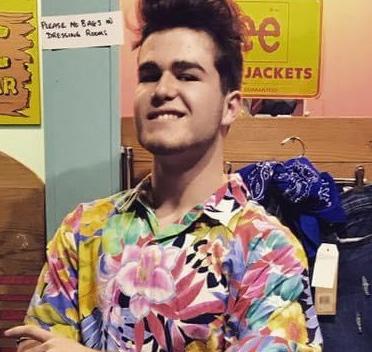
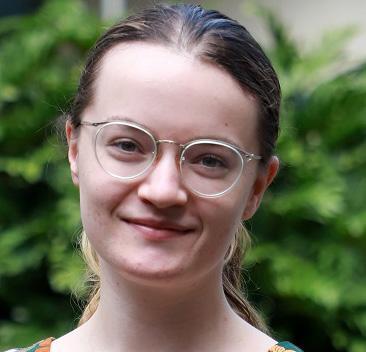
See list statement.

See list statement.
See list statement.
See list statement.
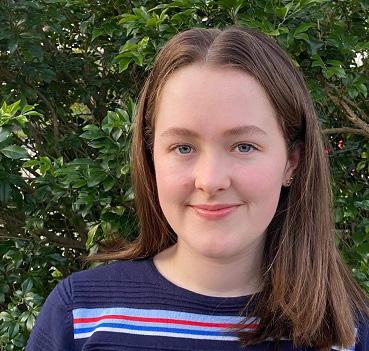
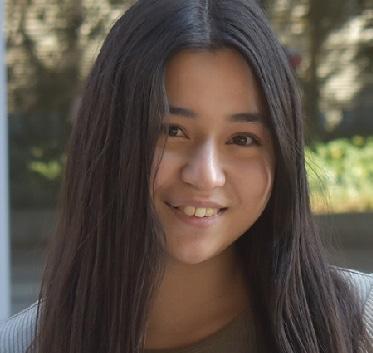



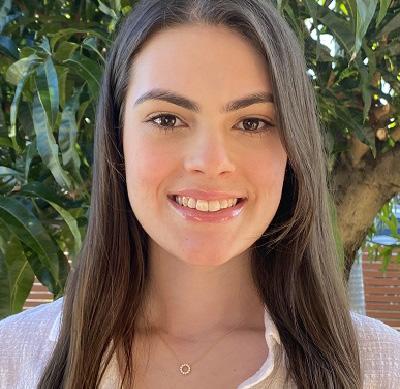

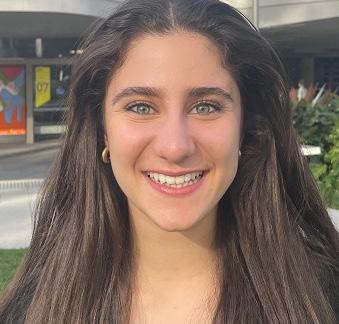

No statement provided.
No statement provided.
No statement provided.
No statement provided.

Hey, I’m Sara (she/they), and I’m running for NUS and UTS Queer Officer.
As a returning candidate for REVIVE, I bring more than a few things to the table: broad and deep experience across UTS activism politics. I’ve spent the last year working as both a General Councillor and Convenor of the Education Action Group (EAG).
As a queer woman of colour, I’ve seen many in student politics accept the outdated, tired approaches to our autonomous collectives – an overwhelming white-centred and non-intersectional approach.
I believe that the right method to empower and motivate students is finding the correct balance between social events and activism. Being involved in autonomous spaces such as the collectives and USYD’s People Of Colour Revue has shown me the value of connection over shared experiences in safe spaces. There is nothing more validating than an affirming hand on the shoulder. We need to start saying “you aren’t alone in your struggles”, through the Queer Officer position, I’ll do exactly that.
Along with this, historically, queer spaces have been colonised by whiteness, leaving little room for queer people of colour to express themselves, without the unfair expectations of western Queerness. It’s time for us to break these cycles, together.
As your representative, I aim to represent you, and your struggles in being recognised by our institutions. I bring an intersectional perspective to all student matters, and with our collective efforts, we’ll ensure that every voice has a place on your student council.
Hi! My name is Georgia Pond (She/Her), and I am a first year Computing Science student planning to transfer into Architecture in the coming year in hopes to tackle inaccessibil ity. I am running with [REVIVE] for an SRC position in the hopes of being elected as Disabilities Officer. During 2022 I have al ready been the convenor of the Disabilities Collective, which has given me the skills and knowledge on the wide range of issues disabled students face every day, particularly at university. I have also been actively involved in other Collectives such as Queer and Enviro. This has given me an intersectional, community mindset on how I’d like to handle issues. If elected onto the SRC, I would use a community, intersectional based approach to advocate for all students, particularly disabled students. Using my firsthand experience as a student with a complex neurological disability that manifests in many ways. If elected I would love to tackle the lack of accessi ble signage around campus. As very few doors even have simple braille depicting the room number. I would also like to implement more accessible signage around campus that directs students to the nearest accessible lifts or points in the direction of accessible routes etc.
Mostly, I would just love to work together as an asso ciation to make UTS an accessible and safe space for all disabled students, while not forgetting that phys ical accessibility is the bare minimum that disabled students deserve. Without radical activism, there is no radical disability justice.
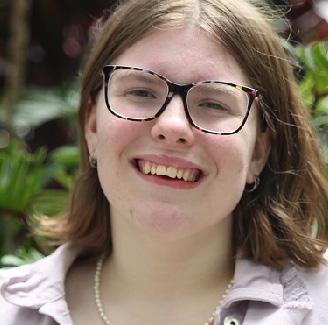
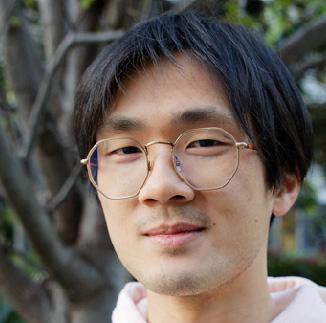
Hi I’m Boris (he/they), a UTS law student honoured to be running for Enviro Officer position with REVIVE for 2023. As an active Enviro Collective member, I believe experience within the Collective along with experience in environmental education makes me most suitable for the role.
We need to speak about the climate crisis. Despite the urgency, we’ve seen empty promises, the avoidance of climate responsibility, and finger pointing from our most powerful organisations. Completing a degree in sustainability only reinforced that people in power aren’t listening to us. So you might be asking, how can students make an impact on such a big issue?
I believe change can come from anywhere and as Enviro Officer, I would empower students to bring about positive impacts in the environmental space. I believe that the university can be a powerful force for climate action. UTS have taken steps to be committed to this issue, from ambitious climate pledges and already achieving net neutrality. Moving forward, UTS will have a plan for climate positivity and has promised to foster sustainable partnerships. As the student representative for environmental issues, I will hold UTS accountable for their climate strategies and ensure partnerships, current and future, are truly ethical.
Students should not feel powerless. I intend to reframe the way we address these issues by providing more opportunities for students to participate. This can be through a community native garden and incorporating intersectional perspectives from educational climate resources to direct communities affected by the crisis.
Goeie more, selamat pagi, molo ngalentseni.
My name is Areejz Slamang and I’m a first generation, coloured, South African immigrant running to be the 2023 Ethnocultural Officer with REVIVE.
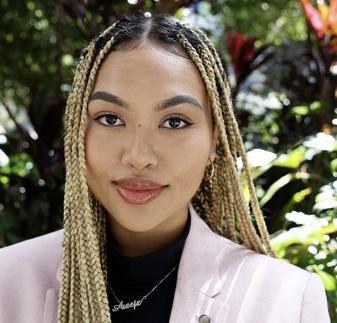
I’m running with REVIVE because I’m confident that on this team we can establish a strong activist council, one which engages the UTS community and runs broad student focused campaigns.
I’m a proud student of UTS, being active in societies and collectives, and currently working on the UTS antiracism campaign with the Centre of Social Justice and Inclusion. My experience of racism as a woman of colour has encouraged me to run for this role, where I can improve the university experience for students of colour and create a safer space for us all.
Activism has always had a place at UTS, student movements are vital in calling for action. I’m very excited to be continuing the work of the Ethnocultural Collective, especially with the safe space campaign, and push for a proper grievance system which students do not currently have. Students of colour deserve a safe space for community. Just as the Women’s and the Queer Collectives have spaces, POC deserve the same.
Being elected as the 2023 UTS Ethnocultural Collective Officer would mean that I would be the first woman who is a part of the African and Asian diaspora to hold this position, a responsibility I take seriously.
I’ll bring my lived experience, and my experience organising with CSJI to the position.
I’m excited to represent you.
I’m Sophie Serafim (she/her) and I’m running for a General Councillor position with the wonderful team behind REVIVE. This is my fourth year of a double degree in Bachelor of Communications (Creative Writing) and Bachelor of Languages and Cultures (Japanese), during which time I’ve learned a lot about the importance of centralising diversity and working to facilitate intercultural dialogue.
I am passionate about a culture of accessibility. I want to make the campus a safer space for disabled and queer students. I also want to work towards elevating the social identities and voices of Aboriginal and Torres Strait Islander students.

If elected to join the SRC, I would contribute to an ongoing dialogue with the university about bringing sidelined communities to the forefront of discussion. As a disabled woman I endeavour to advocate for changes that matter in the realms of consent education, disability justice and a culture of acceptance and exchange of difference rather than passive tolerance. My time as the Secretary of the Disabilities Collective has informed me on this approach.
Furthermore, if elected I would want to contribute to making UTS more accessible for our students. For example, I’m passionate about making our Accessibility Service and online portal (Access) more intuitive, shaping it so it can cater to a wider range of student needs. I am keen to foster ongoing intercollective relations to further inform an intercultural approach. Our community does its best work when we consider various perspectives, and use that to design relevant solutions.


Hi! I’m Lauren (she/they), and I am running with REVIVE for a General Councillor position. I am currently a third-year biomedical engineering student actively involved in the UTS queer collective, women’s collective and environment collective. This has allowed me to work with likeminded, passionate people. I am passionate about UTS being a more inclusive and involved learning environment where students are more than the fees they pay!
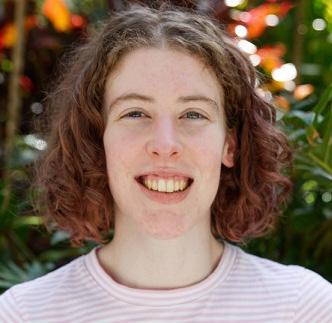
As an engineering student required to do two sixmonth internships during my degree, I found myself frustrated last year when finding one felt almost impossible as UTS provided few support or resources. I was quite privileged to find a paid internship eventually. However, most people I know had to take on unpaid, full-time internships to meet their requirements. Unpaid internships and placements are a theme among multiple faculties, and this is not an option for many students who need to support themselves. I believe UTS needs to provide significantly more support for students to secure paid internships and placements while students complete their degrees.
I am also passionate about strengthening the student community and getting more students involved in the Student Association (as many people are unaware of its existence!). I find this important because student solidarity is how we can make effective change. If elected, I will work on behalf of all students to make positive changes in our university.

My name is Moira-Kelly (she/her), and I’m a 2ndyear Communications and Transdisciplinary Innovation student. I’m running with REVIVE as a General Councillor.
I am very easygoing, and you may have seen me wearing a green shirt around the Student Learning Hub, always helping students around campus. From what I have learnt as a student and staff at UTS, I want to make things as comfortable and accessible as possible for everyone. I want my messages to be socially, culturally and civically active. I have learnt that I am part of a generation aware of the imprint they will leave in this world – my actions can shape the future. I will use that privilege to benefit our university environment, even if that means asking difficult questions and listening to uncomfortable answers as part of the complex process of continuous improvement and dedication to the community.
University is essential for us and should be accessible. There should not be any barriers to anything in university based on race, gender, sexual orientation or disability.
When I’m on council, I want to push for more collaboration between students and management as there is a lack of foundational support. We need more available and accessible help to set up students for success properly. I believe the quality of education begins with ensuring learning environments and learning experiences are up to standards. But to enforce these standards, we must ensure that staff working conditions are optimal – with better hours, workloads, pay and stability.
Hello, everyone! My name is Nikhil Prasad (he/ she) and I’m running for the position of General Councillor with REVIVE 2023. I am currently a 2ndyear nursing student but previously studied UTS biomedical science. I have been participating in student activism since the start of 2021 and this for me, has highlighted deficits in the quality of our educational experience. One of these deficits, which personally affects me and a lot of my peers, are unpaid placements.
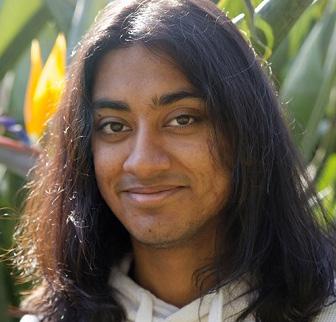
Nursing placements are a full-time commitment for up to a month at a time, adding up to roughly 800 hours of unpaid labour when finally completing the course. If elected General Councillor, I would dedicate my time to fighting for paid placements, to compensate all nursing students for their labour. The degree is also popular for many international students, who often need to work in order to pay for excessive upfront course fees. Additionally, the costs of living and limited access to resources for them only exacerbates the urgency for adequate pay.
We choose our university not just based on the degree, but also to experience good campus life. If students aren’t properly funded for placements, this limits their ability to participate in UTS events. As someone who has been here for 4 years now, participating in societies has an importance on allowing us to make connections, form relationships and further our careers. With REVIVE 2023 we will consistently strive to fight for paid placements, and help cultivate a supportive campus life for all.
Hello! I am Cal McKinley (they/them) and I am a fifth-year environmental science student. I ran for council last year with REVIVE and have spent this year as Disabilities Officer, building up the Disabilities Collective from nothing into a thriving activist community. While we have done a lot this year to fight for the voices of disabled students and to get our needs met, there is still so much that needs to be done to ensure that all students have access to the edu cation they deserve.
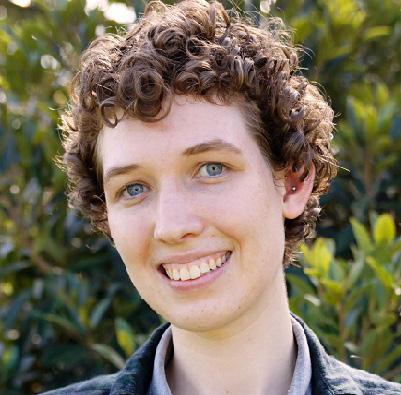
I am running for council with REVIVE again this year because I believe that sustained, consistent action from independent students who truly care about fighting for students is what we need out of a student union. The candidates running for council this year with REVIVE have all been involved in the collec tive system, and have proven themselves to be enthu siastic in their commitment to students, working hard to push back against the university’s poor sexual as sault messaging, to fight for a safe space for students of colour, to establish a free food pantry for struggling students, to fight back against staff cuts and cuts to Student’s Association funding, and to give disabled students a voice on campus.
In order for this vital work to continue, we need our student union to be led by people who have shown time and again that they have the best interests of students at heart, and I believe that only REVIVE can provide this.
We are Students First - a diverse group of students, running for SRC and NUS. We’re like you - we want to enjoy university life, our studies and pursue a career.
As a group, we want to listen to what you have to say and take action on initiatives that will benefit you.
We stand for:
• More internships, better job opportunities and enriching programs. Better relations between the university, employers, and you! For more enriching and rewarding opportunities. We are Pro-Intern ships. Pro-Jobs. Pro-You.
• Transparency + Accountability → Real solutions to hold student politicians and management to account.
• An end to proctored exams.
• Improved mental health services and initiatives on campus.
• Inclusivity - against hate, racism, and all forms of discrimination. Ensuring adequate representa tion of student’s needs.
• Responsible, practical, and results-based di plomacy. Something is better than nothing. Improving student safety, on and off campus.
• Equality for all students.
• Improved accessibility → Physical access on cam pus and to essential services.
• Kindness & wellbeing → Making campus a safe space & de-stigmatising mental health issues.
• End recycled content - you pay for lectures. Modernising MyStudentAdmin and reducing e-request wait times.
• Engaging Education → Modern, inclusive and relevant.
• A fairer process and more help to assist with misconduct allegations.
Vote [1] Students First, to put yourself and the students first. The Students First Action Plan explains our vi sion and how we intend to enact real change that mat ters to you through a new - honest and transparent council.
Here’s what we’ll do to put your needs first:
Students First understands that at the end of the day, you come to uni to find work and pursue a future ca reer. We support greater collaboration and connection between university and business so that you get the most from your money!
1. More Internships and Jobs. Fairer Conditions.
Policy 1: #InternshipOpportunities
A Student First SRC will be the voice that negotiates for the best outcomes for students when it comes to in ternships and jobs. We will advocate for more opportu nities (jobs, internships, scholarships), with fairer and safer conditions to improve your quality of life.
2. Real Feedback on Assessments. End Proctored Ex ams.
Policy 2: #ImprovedAssessments
Proctored exams are overall ineffective at ensuring exam integrity and may raise privacy concerns, despite working towards combating plagiarism. We propose al ternatives such as take home exams with specific se curity requirements or safeguards that maintains in tegrity and is secure for university data.
3. Evolving Education. Keeping Up with Technologi cal Advancement.
Policy 3: #TechSavvy
Now more than ever it has become increasingly import ant for students to be up to date with the technological sector, its intersection with law and other industries. The SRC should focus on advocating for the introduc tion of more courses, programs and initiatives. These will educate students like you about changes and what
they can do to upskill for both personal and profession al avenues, through university information channels.
4. Relevant Information. Current Content. Modern Courses.
Policy 4: #UpskilledEducation
As part of our focus on engaging education, we advo cate for introducing content that will upskill students in additional key areas. This includes transdisciplinary areas like being #techsavvy, updates in legislation that can impact work, studies and personal life (i.e. consent laws), and general innovation.
5. End Recycled Content. Reasonable Lectures.
Policy 5: #KeepItFresh
You should not be forced to watch lectures from years ago, with content that may be irrelevant. Lec tures should be updated regularly and should not be crammed with excessive, irrelevant content.
Our policy is focused on ways to promote anti-discrim ination, whether that be based on gender (including identity), sexuality, ethnicity or socio-economic back ground, and inform students on the recent changes to harassment including sex-based harassment.
1. Racism
Policy 1: #KindnessOnCampus
We believe that change starts with kindness, and to do this it is essential to raise awareness about anti-dis crimination and anti-hate throughout campus. It can be a starting point to take action against racism on campus with active campaigning and education. To do this, we aim to work closely with the ActivateUTS Wellbeing program to make essential services more accessible, including counseling and UTS Accessibility. The purpose of this is to spread awareness of these ser
vices, how they are beneficial and overall de-stigmatise mental health issues. During assignment and exam times, we hope to have additional services available for students, like therapy dogs, yoga and other activities to promote de-stress and wellbeing. As a SRC group pri oritising the needs of diverse students, we will strive to engage existing and potential students through pro moting education, what UTS has to offer and the posi tivity of university life regardless of background.
2. Climate Change Policy 2: #KeepItGreen
The environment around us is central and it is import ant to do our part in sustainability, and align our efforts with the United Nations goal of sustainable cities. As a SRC group, we can work alongside university programs like Green Impact and UTS Sustainability to innovate interactive ways that students can take the initiative on looking after our planet.
3. Rights Policy 3: #Equality
Similar to Policy 1, Students First recognises the impor tance of LGBTQIA+ rights and is firmly against all forms of discrimination including those on basis fo sexuali ty, gender or gender identity. We will focus on ways to fight and end discrimination on campus, whether it be targeted to specific communities, sexuality, religious, ethnic or socio-economic background. To promote this, our group aims to inform students on the recent changes to harassment including sex-based harass ment to ensure campus is safe for all.
Diversity and inclusion underpin our policies, and this includes physical access on campus. Recently, it has become clear that some spaces including library en trances are not entirely accessible for students with different disabilities. As part of our policy, we will work with the university and students together to collabo rate on viable solutions.
Putting Students First, we will do our best to improve your campus experience. Here’s what we’re advocating for:
There are many administrative services for students such as e-requests and documentation requests that have lengthy waiting times and are essential in nature. We propose working with the university to find viable solutions to reducing wait times, support staff and ac commodate students. Supporting staff is a key facet of improving administration that span beyond e-re quests, including financial services.
The Legal Service and Student Advocacy should re ceive more funding from the university, in order to assist more students. We support the introduction of a student advocacy portal, to help students quickly seek help when they face accusations of misconduct or need help. Greater awareness of the student advoca cy service is needed – through advertising and aware ness to help students when they face accusations of misconduct. Students should be informed of these ser vices during orientation day tours/events.
The Bluebird Brekkie, Pantry and Night Owl Noodles have become an integral part of campus life, support ing students by providing free food and essentials. This is why we would work towards increasing student vol unteers and workers to keep up with the need and ex pand the pantry inventory. We propose having the Blue Bird Brekkie and Night Owl Noodles five days a week so more students can benefit, and advocate for additional funding to make this happen.
4. Greater independence and improvements for Vertigo Policy 4: #VertigoImprovements
Vertigo, as an elected publication by the students, should not have its procedures and funding controlled by the SRC. We support editorial independence for stu dent journalists, and student representatives should not interfere with articles or publications that may be critical of them. We support the modernisation of the publication through improvements and a focus on online publications. This will help protect our environ ment and serve the needs of off-campus and interna tional students.
The University and SRC are in desperate need of trans parency and reform. Here’s the Students First plan:
1. Financial Reform Policy 1: #FinancialReform
The UTSSA – the body run by the SRC controls money that you contribute through SSAF. Monthly updates on spending should be made clear through a dedicated section of the website, so you know where your money is going. This will hold student politicians accountable on a regular basis.
2. Mandatory Disclosure of Political Affiliation Policy 2: #KeepThemHonest
In order to achieve accountability for student politi cians and other relevant bodies, we advocate for man datory disclosure of political affiliation. This will pro vide students with transparency and clarity on the rationale of initiatives and objects of groups/leaders.
A democratic student body is one that’s easy to run for and vote for. We support the return of online voting over the period of 5 days, so students can vote regard less of where they live and when/where they work. The “mail-in” ballot option is outdated and does not serve as an effective alternative, compared to online e-voting. Students should be able to nominate for SRC with ease, and if they are running in a group – should be able to do so through one simple form like USYD SRC. We sup port reform to reduce the number of required nomina tors, and excessive identification requirements.
Collectives on campus should have greater autonomy and should be able to elect their own SRC office bear ers. We will advocate that the university frequently advertise opportunities with collectives, so more stu dents get involved. We will work to reduce waste on the budget to free up more funds, so they can be spent on collective programs that have a direct and positive im pact on students.
Students and activists should be able to raise concerns with the university freely – without feeling threatened (through cuts to activism, legal action, misconduct proceedings). You should feel free and safe to air your concerns.
Some student representatives get paid over $20k-$30k for their roles on council. This should be evaluated based on necessity and workload. Paid student repre sentatives should only get a financial reward if they ac tually, sincerely do the work required. Those who do not pull their share should not receive any of your money – remember society presidents do not get paid.
Have you got any questions or ideas? Speak to us when we’re campaigning on campus, and we’d love to hear from you!
The best way to vote for Students First: Find the rele vant ballot and put a [1] in the box for “Students First” above the line for SRC and NUS, and [1] for our candi dates in executive positions.
Vote [1] Students First for SRC Vote [1] Students First for NUS
Vote [1] Keegan Lim for General Secretary Vote [1] Aaryan Ramesh for Assistant General Secretary Vote [1] Zakiah Tahir for Women’s Officer Vote [1] Sai Muthukumar for Welfare Officer

Hey, I’m Adrian Lozancic – a second year law stu dent and I’m running as a candidate with Stu dents First. I’m interested in civil liberties, right to repair and the challenges that we face as tech nology evolves! As a first-year student, I spoke be fore the productivity commission in support of your right to repair your tech – and some of my recommendations made it into their final report to the federal government. Over the past year I have ad vocated for reforms to our student council, and trans parency on campus as a student councillor. But there’s so much to be done, and we need to do it together! As the only existing representative with students first, I am extremely hopeful that our team will bring a bunch of new ideas to council and improve your university ex perience. For change and reform – vote students first!

See
See
See
Hi! I’m Rodman, a third-year Engineering stu dent running for SRC representative, and I’m all about listening to the student community and delivering their ideas to the table. Over these past years, I’ve always wanted to partake and collaborate with all stakeholders relevant to our university. With my leads on active listen ing and observational aspects, I hence decided it would be appropriate to run for this position. I hope to represent our current students and our students within the Faculty of Engineering and In formation Technology, which are often overlooked, de spite being one of the largest faculties at UTS. I believe we should all be given a chance to contribute to the success of our foundations. Cheers.
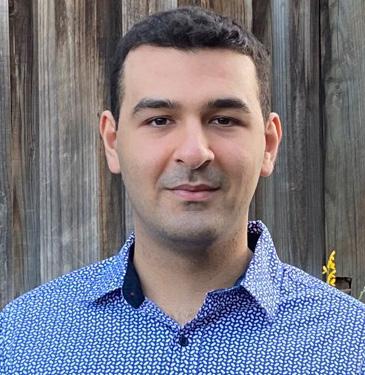
No statement provided.
No statement provided.
Hey, I’m Talha Rahman and I am a Business/ Science in Information Technology stu dent. I’ll keep it short and sweet and tell you why I’m the right person for this role.
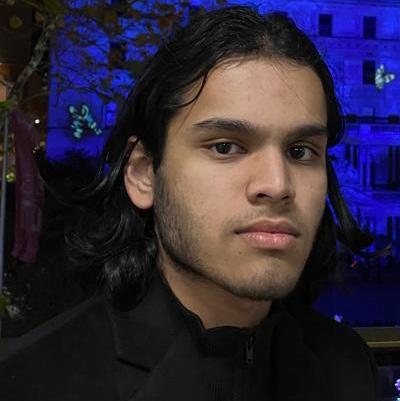
I believe I embody the UTS spirit and will be able to give a platform to all students to have their voices heard. I am incredibly proud to call myself a UTS student and with all the shared ex periences we encounter at university, I would relish the opportunity to represent you.
As a Bachelor of Business Student Advisory Group member, I have extensive experience in committee governance and can convey myself clearly. Additionally, I have honed my leadership and communication skills in prior roles as school captain and on the sporting field. Along with my retail work, these experiences have allowed me to communicate successfully with people from various backgrounds, from academics to peers.
I am confident in my capacity to consult your viewpoints, magnify your voice, and improve the way we study at university, thanks to my passions closely aligning with the ideals and abilities needed for this position.
Hi! My name is Amelia and I wish to be one of your Student Representatives in 2023! Building from my statement pro vided for the role of Wom*n’s Officer, I would consider it a privilege to be vot ed into the role of a Student Representa tive, and I would strive to ensure UTS be comes an inclusive space for everyone.
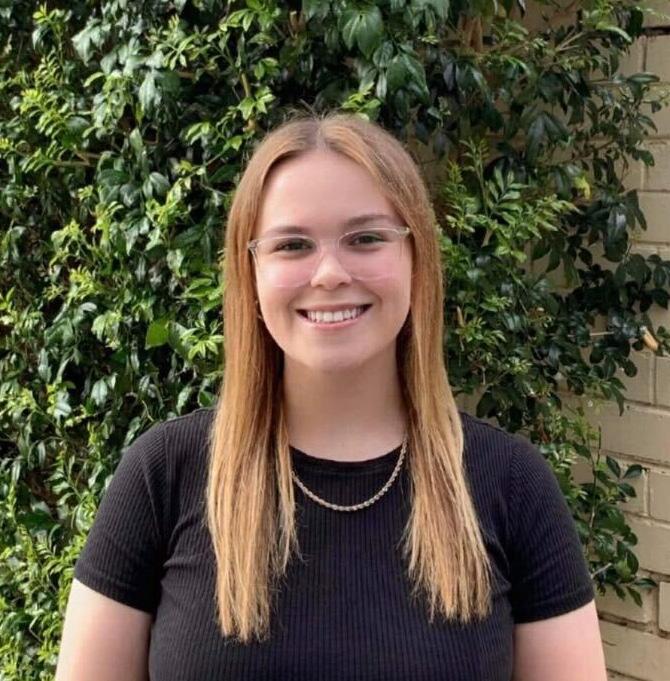
Key focuses during my tenure, if elected, would be on sexual harassment and assault education, prevention and improved services as already out lined, in conjunction with better developed mental health services and awareness generally, within the University.
Student welfare is a conversation which must be maintained, especially post-COVID. The imposi tion of lockdowns and social restrictions, accord
ing to a variety of studies, doubled people’s risk of experiencing mental health symptoms. The ad ditional pressure as a university student, and the rising costs of living is a real stressor for many.
Mental Health professionals are stretched in dealing with the number of sufferers in society today. Being aware of problems facing those with mental illness, especially when under pressure from tertiary studies, I wish to advocate for students so impacted, and fa cilitate broad discussions, and action, within UTS. This could generate, implementation of mental health mod ules, focused on ensuring student welfare. An initiative similar to that of the Batyr organisation’s, ‘batyr@uni’ programs, should be implemented as a compulsory program for completion by continuing and incoming students to destigmatise mental health, and empower those most impacted.
No statement provided.
No statement provided.
Aidan O’Rourke
No statement provided.
No statement provided.
No statement provided.
No statement provided.
No statement provided.
No statement provided.
No statement provided.
Zakiah Tahir
No statement provided.
No statement provided.
No statement provided.
No statement provided.
No statement provided.
No statement provided.
No statement provided.
No statement provided.
Hiiii My names Melissa, I’m in my last year of my en vironmental science degree, and I’m excited to be run ning for the position of NUS delegate. During my time at UTS I’ve been super involved in the Enviro, Womens, and Education Collectives at UTS. I’ve also been on this year’s student council as the Assistant General Secre tary. I’ve participated in campaigns advocating for bet ter learning conditions for students, better working conditions for staff, funding for our student union, and countless UTS campaigns. This experience has given me the activist and organising knowledge I believe will be useful in my position as NUS delegate.

I hope to be able to take student issues to a national body, and for the NUS to run broad reaching campaigns engaging students in their national union. I see a vision of the NUS as a body of students useful in mobilising mass movements, pushing campus campaigns, and functioning as a union should. The NUS has historical ly been vital within the student movement. Running campaigns for queer rights, environmental justice, and education activism. An example being the consistent fight around education activism, from fighting the uni fee hikes, to supporting staff campus strikes through out 2022. I’m keen to take the activism I’ve done around education within the UTS Student Council as Assistant General Secretary, and as a mem ber of the Education Collective to a national level.
I hope to be a part of a NUS where these campaigns are a priority, rather than the union being a stadium for factional fighting.
I’m running for NUS Delegate because we need a nation al student union that will fight to defend our education and take up important social justice issues. Since 2020 students have faced a barrage of attacks from univer sity management and the government, including fee hikes, course cuts, and mass sackings of university staff.
At UTS alone more than 350 full-time equivalent jobs were cut, and countless more casuals have been sacked. We need an NUS that will defend ed ucation and university staff, and oppose the in creasingly corporatised, profit-driven university system in favour of free, quality education for all.
We also need an NUS that will fight the escalating climate crisis. Australia is one of the worst contrib utors to CO2 emissions, occupying 1st place as the single biggest coal exporter and 3rd place for nat ural gas. Around the country dozens of new fossil fuel projects are opening, meanwhile the frequen cy of extreme weather events like devastating floods, droughts and wildfires increases. We need a student union that will fight to shut down the fossil fuel in dustry and demand aid for the poor and working class communities who suffer most from climate disasters.
You should vote for me because I’m an activist all-year-round. For years I’ve helped organise protests across a range of issues from Palestine solidarity to abortion and refugee rights. If elected I’ll fight to make NUS a left-wing activist body that mobilises students and the oppressed to fight for their rights!
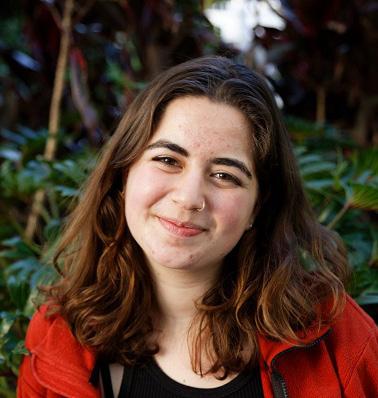

Hi, My name is Anna Thieben (she/her) and I am run ning to be a UTS delegate for the National Union of Students. In the last year I have had the privilege to interact with the NUS through my role as UTSSA Pres ident, attending their Presidents Conference, Educa tion Conference and building for their Climate and Education National Days of Action. I have seen how the NUS can function to support campus student unions and build strong national campaigns. The NUS Edu cation Department campaigned around student fee (SSAF) legislation in 2022 and assisted the UTSSA in negotiating with UTS for greater student funding and transparency in the SSAF allocation for all students.
However, I have also witnessed the pitfalls of the NUS, a union plagued with factionalised infight ing, and political tactics, which can seem far re moved from the interests of students. An awful culture which REVIVE is committed to changing.
I believe in the power of a strong, active and supportive NUS, which builds broad scale campaigns, tackling is sues students face on a national level. We need an NUS that campaigns around the cost of living crisis and fights on the streets to reverse the Job Ready Graduates Package and demand free education. We desperately need an NUS committed to organise a strong, united student movement in re sponse to the cli mate crisis. I will use my delegate position to fight for this vision of NUS.
I’m running to be a delegate to the National Union of Students because I think our union should be an ac tivist body with an orientation towards organising stu dents in the fight for a better world.
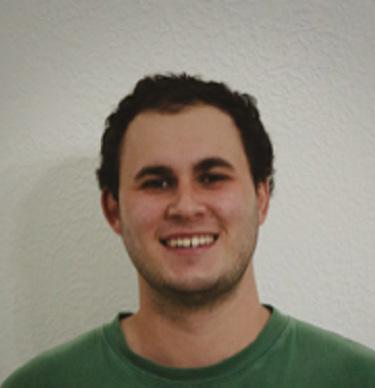
The history of student activism is rich with examples of students being a decisive force for positive change. In today’s world there is so much to fight for, and the NUS can be doing more to weigh in to these fights. Fighting for social justice isn’t just something I pay lip service to, it’s something I do in practice. In recent years I’ve been involved in activism for:
• Climate justice, working within the UTS Enviro Collective to organise climate protests
• Education, working within the UTS Education Action group to fight against the corporatisation of our uni, specifically cuts to courses, jobs, and funding
• LGBTI rights, working in the Community Action for Rainbow rights campaign in the fight against the biggoted Religious Discrimination Bill
• Womens’ rights, helping to build the Sydney rally in solidarity with those affected by the decision to overturn Roe vs. Wade
• Indigenous rights, helping to build Invasion Day protests
• Palestine solidarity
• Refugee rights
• Against the Far-Right, working within the Cam paign Against Racism and Fascism
Students have the potential to challenge the status quo and force positive change. If elected I’ll be better posi tioned to help re alise that poten tial, but I’m going to continue to fight tirelessly either way.
Hi! I’m Eshna, and I’m running with [REVIVE] in hopes of being your delegate at the National Union of Stu dents in 2022! I have organised many actions as the UTS Women’s Officer in 2021 and 2022 and done the work at a university level. By organising campaigns with the Women’s Collective, I have transformed UTS’s sexual assault and harassment policies - UTS is cur rently formulating a streamlined reporting system and creating student steering groups as per the campaigns demands.

I have also headed the creation of sex and consent ed ucation materials to fill the gaps in knowledge created by inadequate syllabuses and teaching. As an individu al, I have helped build for NTEU strikes through poster ing, flyering and speaking at lectures. I also volunteer within the UTSSA Food Pantry, providing free food to students during a pandemic when many of us cannot afford it. While I’m proud of all my work at the univer sity, I also recognise that these deficiencies result from a broken tertiary education system. The unacceptably high rate of sexual assault and harrassment toward CALD and LGBT students indicates broader problems regarding the lack of linguistically and sexually diverse consent materials. Our tutors are casualised underpaid because universities are no longer educational institu tions but businesses.
The increasing unaffordability of universities and lack of financial support are why students cannot afford to buy food. I have seen these problems mani fest on my campus, but we can only fix them on a national platform by trans forming the en tire tertiary sector.

Hey, I’m Sara (she/they), and I’m run ning for NUS and UTS Queer Officer.
As a returning candidate for REVIVE, I bring more than a few things to the table: broad and deep experience across UTS ac tivism politics. I’ve spent the last year work ing as both a General Councillor and Con venor of the Education Action Group (EAG).
As a queer woman of colour, I’ve seen many in stu dent politics accept the outdated, tired approach es to our autonomous collectives – an overwhelm ing white-centred and non-intersectional approach.
I believe that the right method to empower and motivate students is finding the correct balance between social events and activism. Being involved in autonomous spaces such as the collectives and USYD’s People Of Co lour Revue has shown me the value of connection over shared experiences in safe spaces. There is nothing more validating than an affirming hand on the shoulder. We need to start saying “you aren’t alone in your struggles”, through the Queer Officer position, I’ll do exactly that.
Along with this, historically, queer spaces have been colonised by whiteness, leaving little room for queer people of colour to express themselves, without the unfair expectations of western Queer ness. It’s time for us to break these cycles, together.
As your representative, I aim to represent you, and your struggles in being recognised by our institu tions. I bring an intersectional perspective to all student matters, and with our collective efforts, we’ll ensure that every voice has a place on your student council.

The Goldilocks zone is referred to as the habitable zone around a star where it is not too hot and not too cold for life to flourish.



The nostalgia most people feel the warmest is at times of earlier years when colours were brighter and uni assignments were a distant planet away.
Modernity has failed us, but Vertigo is here to save. Submit to our final 2022 issue of the year and reflect on past joys, loves, obsessions and self-discoveries.

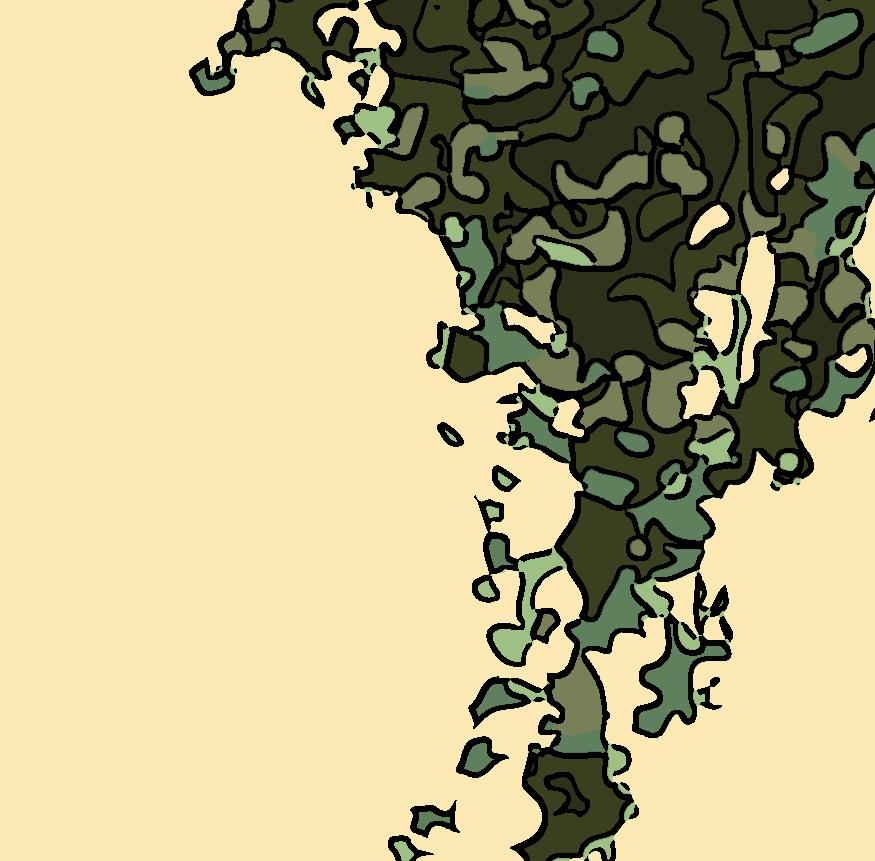


Rant, laugh, mourn lost innocence, draw wildly, discover something new, have fun, and rage at the machine.





Walk in the park: Share the memories that bring you back to a time before trouble.
The ‘Gilded Age’ issue: Should any peri od from history really be romanticised?



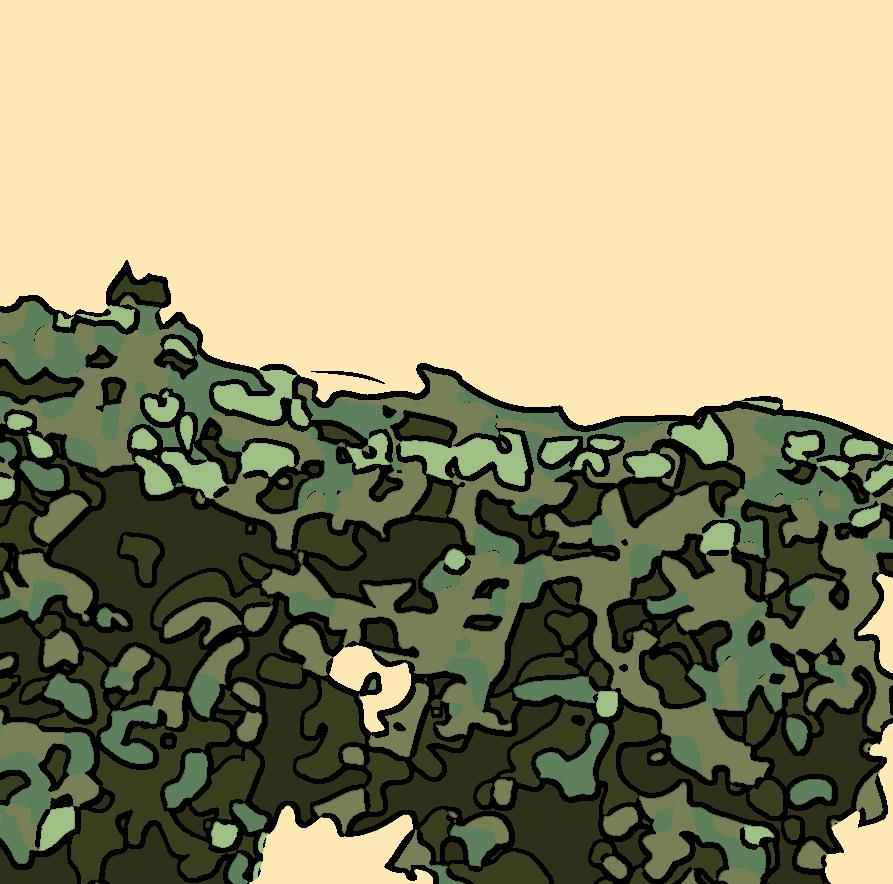
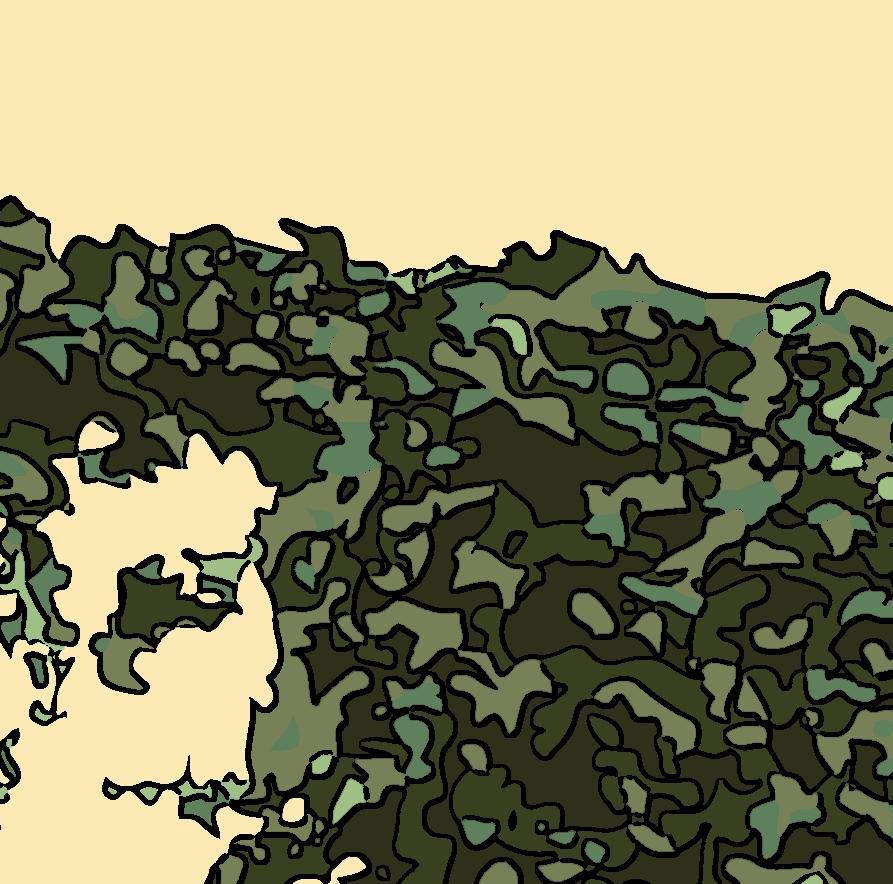
Bittersweet memories: What happy childhood memories have become twist ed over time and why?
(Is it really) too far? The movies and TV shows that would, should, and won’t be getting a reboot in the 2020s + is this a good or bad thing?
Be here, now: Is Western society too obsessed with nostalgia and the quirks of yesterday?
Speaking of remakes: How many re boots are necessary? Is there a benefit to remaking classics that everyone is missing?
Baby Zoomers: What might precious childhood memories look like for the kids of today?
 Art by Siena Zadro
Art by Siena Zadro



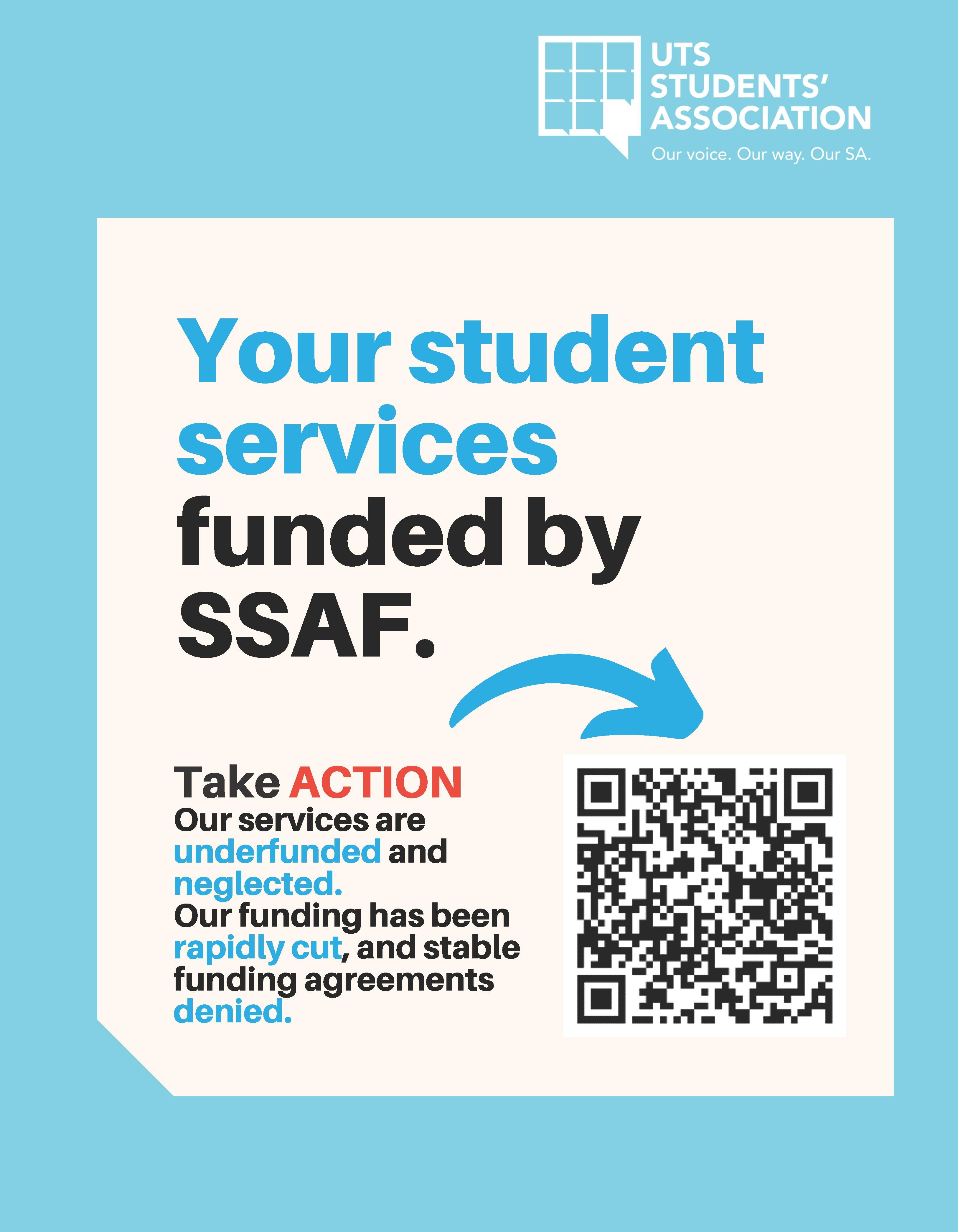
 Cover design by Siena Zadro
Cover design by Siena Zadro